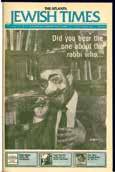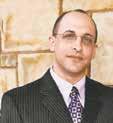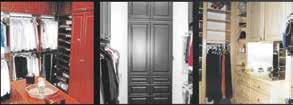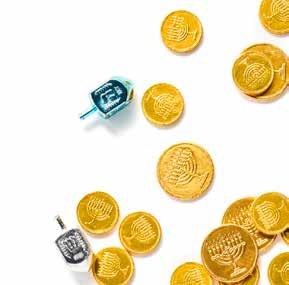










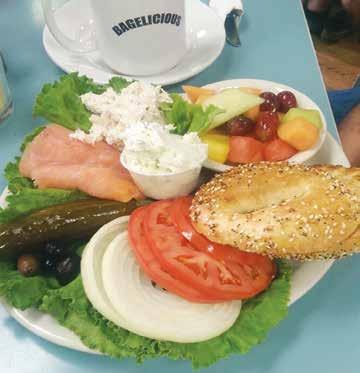

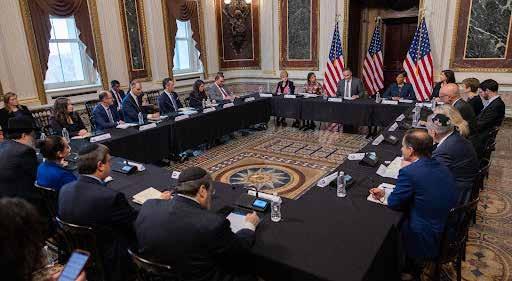 By Nathan Posner
By Nathan Posner
Last year, 2021, saw the most antisemitic incidents on record in the United States since the Anti-Defamation League began recording data in 1979.
Gathered in the Eisenhower Executive Office Building in the White House complex, Jewish leaders met with White House advisors and the Second Gentleman, Doug Emhoff, to discuss the rising scourge of antisemitic hate. Among those gathered were leaders of the American Jewish Committee and Anti-Defamation League and religious leaders from various Jewish sects, including Chabad, the Orthodox Union, and the United Synagogue of Conservative Judaism, as well as representatives of Jews on college campuses through Hillel.
The roundtable represented the continuation of anti-hate summits and policies that the Biden administration has been pursuing since taking office, including the United We Stand summit earlier this year that gathered community leaders to discuss combatting hate in all its forms. Opening up the roundtable, Second Gentleman Emhoff began by discussing his Judaism and his belief in the importance of combatting antisemitism, saying, “I understand the weight of this responsibility…and as Second Gentleman, let me reiterate, I will not remain silent. And I’m proud to be Jewish. I’m proud to live openly as a Jew. And I’m not afraid, we cannot live in fear. We refuse to be afraid.”
The roundtable comes only weeks following a slew of antisemitic remarks by Ye, formerly Kanye West, as he espoused pro-Nazi views and denied the Holocaust shortly after meeting with former President Donald Trump. Although


Ye only represents a public face of today’s rising wave of antisemitism, it comes on the back of years of antisemitic rhetoric as seen in the Charlottesville white supremacist protests in 2017 and the mass shooting of Jews at the Tree of Life Synagogue in 2018.
Speaking to Jewish leaders at the roundtable, the U.S. Special Envoy for Monitoring and Combating Antisemitism, and former Emory University professor, Deborah Lipstadt, said, “I have visited 10 countries, four different continents, to convey the message that the United States government takes antisemitism seriously and expects these other countries to do likewise. However, unlike my predecessors, all very talented
and committed people, I can’t go to these countries and say, ‘you have a problem.’ Now we have to say, ‘we have a serious problem’…My remit is overseas, but we all know, it’s harder and harder to separate between domestic and foreign antisemitism; one nurtures the other.”

Previously, the United States had focused on combatting antisemitism abroad, but the roundtable marked another step in a turn towards combatting domestic antisemitism in the wake of growing hatred towards the Jewish community. Second Gentleman Emhoff, the first Jewish spouse of a president or vice president, condemned antisemitism at the discussion, saying, “Antisemitism is dangerous. We cannot normalize this.
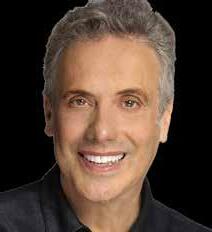
We all have an obligation to condemn these vile acts. All of us cannot stay silent. And there is no ‘either or’ on this one. There is no both sides-ism on this one. There’s only one side, everyone, all of us must be against this must be against antisemitism.”
The roundtable, which was open to the press only for opening remarks, was praised by participants for bringing the urgent mission of combatting antisemitism to the highest levels of the U.S. government. American Jewish Committee CEO Ted Deutch said in a statement, “This roundtable was a resounding statement by the Biden administration of its unwavering commitment to tackling the scourge of antisemitism. It was both in-
spiring and powerful. Second Gentleman Doug Emhoff’s leadership sent a strong signal that this is a conversation that will continue in the White House.”
Although the roundtable marks progress in organizing against the issue through the Federal government, many believe that further efforts are needed. Even as the American Jewish Committee and Anti-Defamation League both praised the discussion, they also called for the White House to support and adopt a
“unified national strategy to monitor and combat antisemitism” which over 120 members of Congress have called for.


Ambassador Lipstadt gave the strongest condemnation of antisemitism, during her remarks, saying, “Antisemitism is Jew hatred. The antisemite doesn’t hate Jews because they did something. They hate Jews because they’re Jews. The antisemite knows that Jews who act badly do so because they are Jews. Antisemitism is a prejudice akin to so many other ha-
treds…but it’s also a conspiracy theory. The antisemite is convinced that Jews are engaged in a concerted effort to control the world and destroy others by any means necessary.”
Lipstadt continued, “Consequentially, the Jews, the antisemite believes, must be stopped by any means necessary. Antisemites come in all political persuasions, they can also be Christians, they can be Muslims, they can be atheists, and they can be Jews. The time to act is now. We want
to hear from you what you need from us. If you care about your fellow Jews, if you care about democracy and human rights in all its manifestations, if you care about the fact that in the lifetime of people still on the face of the Earth, and we wish them to 120 years, that one out of every three Jews in the world was murdered, while the world sat idly by, then the time to express not just outrage, but our commitment to curtailing this surge is now, later will be too late.” ì

 By Jan Jaben-Eilon
By Jan Jaben-Eilon
Just a few weeks before the 23rd Transgender Day of Remembrance on Nov. 20, which honors the memory of transgender people whose lives were lost in acts of anti-transgender violence, several Jewish households in Atlanta received mailers reciting a number of transphobic talking points.
The leaflets alleged that schools were using gender support plans to change students’ identities without parental knowledge, that medical genderaffirming care is harmful and that a growing number of young adults are “de-transitioning,” or reverting to their assigned biological gender.

In response to what they described as “intentionally inflammatory and misleading” language in the mailers sent by the right-wing, anti-trans Independent Women’s Forum, SOJOURN: Southern Jewish Resource Network for Gender & Sexual Diversity, rebutted the “untruths” and provided a Jewish reply.
“The Jewish response, one based on the ideas of pikuach nefesh (saving lives) and b’tzelem Elohim (all people are created in the image of G-d) is one that supports trans people,” the group countered.
November, Congregation Or Hadash held a Gender 101 program, facilitated by SOJOURN, that was initiated originally to discuss gender divisions in programming, such as assuming only men would be interested in a “steak and scotch” program in the sukkah. It was promoted as a “conversation on the changing landscape of gender identity and implications for modern Judaism.”
“It was a great meeting, even though it wasn’t what I envisioned,” said congregant Howard Maziar. “The meeting was filled with people who wanted a better understanding. One person had a trans grandchild she wanted to be able to relate to. But it wasn’t political. I was moved by the genuineness of the conversation.”
The day before, Congregation Bet Haverim, founded in the 1980s by gays and lesbians, held a meeting, also facilitated by SOJOURN. “We didn’t focus our program on one demographic,” explained Rabbi Mike Rothbaum. “We wanted everyone to understand the terms and experiences” of people who identify as trans, or gender diverse.
Jewish community who reflect gender and sexual diversity.
selves. In the past, they didn’t have that choice.”
But she asserts that the Atlanta Jewish community needs a more structured program that includes the entire community. “SOJOURN doesn’t have the financial backing at this point,” to take on such an endeavor. Recently, though, in addition to hiring a full-time communications director, it just hired a development person and it is looking for a fulltime programming director. Stapel-Wax said it would be “useful if the clergy were involved.”
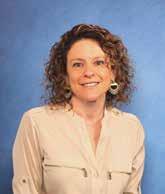
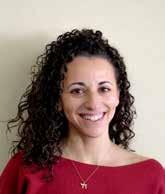
“We
Rothbaum, who said he received anti-Democratic candidate glossy mailers before the November mid-term elections that were “really gross” anti-trans, pointed out that his synagogue also held a Transgender Day of Remembrance. And while Bet Haverim had long used “end of hiding prayers” for gays and lesbians, the synagogue has since updated the prayers to include the trans community.
In fact, according to the president of the Atlanta Rabbinical Association, Rabbi Alexandria ShuvalWeiner of Temple Beth Tikvah, the group has “offered diversity equity inclusion trainings for the rabbinical body as well as opportunities for sharing of queries, plans and teachings to strengthen our ability to better meet the needs of all souls within the community.”
Indeed, Kantorczyk said that as they [Kantorczyk’s pronoun] looked back on their childhood, “I was always a little bit different. I presented myself as androgynous. I had short curly hair and kids asked if I was a boy or girl. In middle school, I wasn’t doing girl ‘right.’ In my early teens, I wanted to fit in. It wasn’t until I graduated college in 2020, during the pandemic when many of us spent time by ourselves, removed from pressures of interacting with people, that I realized how I felt in a vacuum. I learned I had words for it. Young people have a bigger vocabulary to describe themselves.” Kantorczyk uses transmasculine to describe themselves.
Hall said that in the general population, 25 percent of youth under 29 identify as LGBTQ+, and the “Jewish community is the same.”
said
“The Jewish community is realizing that embracing people with diverse gender identity is an important part of keeping the Jewish community in the South thriving,” said Rose Kantorczyk, SOJOURN’s communications associate. “We are seeing Jewish organizations be more conscious of the fact that there are gender- and sexually-diverse people in their midst. The South is not in a place of being hostile to the trans community, but we just don’t know much and have to learn.”
Several Atlanta synagogues are tentatively placing their toes in this distinct pool of vocabulary and culture. In early
Other Atlanta congregations have held Pride Shabbat and Pride Alliance programming, but SOJOURN Executive Director Rebecca StapelWax said she “would love to have the city work together so the programming isn’t piecemeal. It’s easy to go from one event to another. We’ve been doing this for over a dozen years, going to different organizations” to educate about members of the
There’s an awareness that the number of those “souls” has been growing in the American Jewish community. At the Union for Reform Judaism, Rachel Hall is the assistant director for Racial Equity, Diversity and Inclusion Content. She explained that “when the world shut down due to the COVID pandemic, it provided an opportunity for people to be themselves. People are choosing their own definitions of them-
But as individuals are defining or redefining themselves and their genders, their families and the rest of their communities are trying to understand and support their loved ones. It is a challenge.
In autumn 2021, the URJ, along with Keshet, which works for the full equality of all LGBTQ+ Jews and families, partnered with the Jewish Grandparents Network to create a series of virtual programs to help the Jewish community
want to respect everyonebecause we’re all created in G-d’s image,” Tracey Labgold, Florida education and training manager of Keshet, which works for the full equality of all LGBTQ+ Jews and families.
As the


“Children are growing up in a world that is new to many of us. Terms
‘non-dominant identities,’ ‘REDI’ (racial equity, diversity and inclusion), ‘transgender’ and ‘nonbinary’ may feel unfamiliar and even uncomfortable.”
The first of the sessions, not surprisingly, focused on pronouns. Anyone who receives emails might notice an increasing number of people are adding in their signatures at the end of their missives, the pronouns they prefer.
As Tracey Labgold, Florida education and training manager of Keshet, explained, a child’s sex is assigned at birth by a doctor or nurse based on what the baby’s external genitalia suggest. “But gender identity is internal,” she said. Someone who is cisgender identifies with the gender they were assigned at birth. Someone who is transgender means that their assigned gender is not aligned with their gender identity. According to Labgold, children understand their sense of identity at 18 months old. “As a child, I didn’t know that I could be Jewish and gay. I learned that I don’t have to choose.”
Separately, the term bisexual is based on who a person is attracted to, not
what gender he, she or they identify as.
Labgold said that as many as 72 percent of trans youth attempt suicide. “This number is cut in half if the child is raised in a gender-affirming household,” she said, citing studies from The Trevor Project, an organization for suicide prevention in the LGBTQ+ communities.
A group of grandparents approached Keshet, eager to learn more about their transgender grandchildren. “Grandparents are coming to us to help support their grandchildren,” said Labgold. Hall added, “grandparents are wise, generous brave souls. They want to know what sports their grandchildren play, and they want to know what pronouns to use.”
According to Stapel-Wax, “everybody is growing and learning,” not just grandparents. “The older generation is confused because they have not had the experience and exposure to the transgen-
der world, but it is critical for them to explore. It’s like learning a new language.”
But while most of the terms associated with the transgender world seem foreign to many people, it’s notable that gender differences are not new in the Jewish world.
As Rothbaum pointed out, the Talmud, a collection of Jewish legal traditions, mentions eight designations: “Zachar,” which is Hebrew for male; “nekevah,” which is Hebrew for female; "androgynos," having both male and female characteristics; “tumtum,” lacking sexual characteristics; “aylonit hamah,” identified female at birth but later naturally developing male characteristics; “aylonit adam,” identified female at birth but later developing male characteristics through human intervention; “saris hamah,” identified male at birth but later naturally developing female characteristics; and
“saris adam,” identified male at birth and later developing female characteristics through human intervention.


“The texts teach us that Abraham and Sarah were tumtum before they conceived Isaac,” he said.



The important point that these professionals emphasize is that those who identify as transgender should feel more than welcomed in the Jewish community, but actually “celebrated for what they bring, rather than tolerated,” said Kantorczyk.
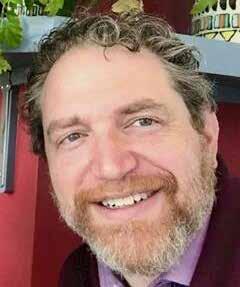
Labgold uses the Hebrew word, “kavod,” or honor. “We want to respect everyone because we’re all created in G-d’s image.”
Stapel-Wax is optimistic that the Jewish community is making progress. “We are partnering with Keshet for a project starting in February,” she said. The Sojourn-Keshet Shivyon [Hebrew, for equality] Southern Cohort is for any Southern Jewish organization that wants to provide “a place where LGBTQ+ Jews feel they truly belong. Jewish sustainability is incredibly important. If people don’t feel welcome, they will go elsewhere.”
For more information, go to www. programs@sojourngsd.org. ì
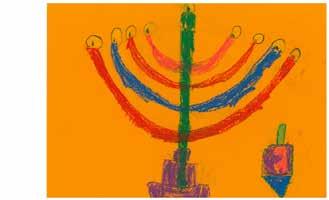

As if acquiring the Coronavirus was not enough, a fast-growing number of post-COVID patients who have recovered from the infection are experiencing a varied list of symptoms. According to these experts’ front-line view, Long COVID is a serious health issue and medical experts are coordinating with specialists needed to effectively treat those patients.
Dr. Alex Truong, MD, MPH, is codirector of the Emory Executive Park Post-COVID Clinic and assistant professor of medicine at Emory University Hospital Midtown. He completed a four-year fellowship at Johns Hopkins Hospital and his research centered on long-term outcomes in survivors of critical illness.
In response to COVID’s aftermath for patients with symptomatic issues, Truong offered some insight. He said, “Long COVID patients have been called ‘long haulers’ and it’s complex because the definition is still in flux.”
The Centers for Disease Control has defined it as "persistent or new symptoms occurring four weeks after COVID infection." The World Health Organization offers a different timeframe occurring at least
two months following the infection, which he shared, stating,: “post-COVID-19 condition occurs in individuals with a history of probable or confirmed SARS CoV-2 infection, usually three months from the onset of COVID-19 with symptoms and that last for at least two months and cannot be explained by an alternative diagnosis. We’re observing that the symptoms patients are experiencing seems to be growing by the day. Patients need to have access to experts who have experience and the knowledge to treat them over time.”
Dr. Truong commented, “One thing we offer at Emory is very important as we validate what someone is going through. Since the pandemic began, we’ve had a lot of experience and seen a very wide range of patients to figure this out. I think the only way we can survive COVID is to do it together. I’m so grateful to many knowledgeable experts in their fields we can learn from to help us with each diagnosis. For example, brain fog is affecting a lot of our patients. Patients forget things, have a memory issue, and we’ve come to understand their brain fog is an attention issue. We are gathering a diverse group of specialists who can investigate patients’ specific issues and provide guidance on best care, including cardiologists, neurologists, psychi-
A specialist with Cleveland Clinic Long COVID Recover Center of Excellence assists a patient
// Photo Courtesy of Cleveland Clinic
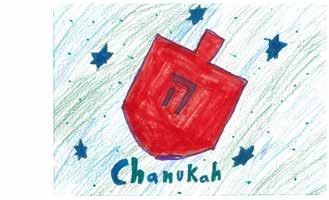
atrists, rheumatologists, otolaryngologists, rehabilitation specialists and many others.
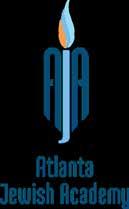
“We are also getting more and more patients and referrals with each wave of infection months after each infection hits.” Truong shared, “We are booked out months ahead and some patients have waited four to six months to see us or traveled here. In general, we need more knowledge out there that this is a real syndrome. We know it’s true and seeing large amounts of patients coming in with the exact same story. From mild to moderate diseases, there’s a long list of postCOVID symptoms, including three of the most widely mentioned: fatigue, shortness of breath, brain fog, along with many other symptoms. More than 60 percent of my patients do not have respiratory problems. What we obviously need is more education for doctors and coordinated support regarding what to do to help these patients.”
Dr. Truong continued about what’s starting to surface.
“Some post-COVID patients continue to experience symptoms regarding specific organs, chronic inflammation, or possibly a breakdown of checks and balances in the immune system. We’re having a lot of suspicion,” he said. “Some of us wonder if there’s an autoimmunity issue after COVID or is it persistent inflammation? However, we are not seeing inflammatory markers. The traditional methods of diagnosing inflammation seem to be not pertinent with post-COVID syndrome.”
When asked what he wants long COVID patients to know, Truong replied, “I want to tell patients to have hope and what you’re going through is real.” He added, “As the days and months and years go by, hopefully, we’ll get to a point that we’ll find more effective treatments, but we must inch towards it. The key is time. Time to better understand this problem and time for patients to get well. The most important thing to keep in mind is that there’s hope, help and people who will listen to them.”
Dr. Kristin Englund, vice chairman of infectious disease and director of Cleveland Clinic Long COVID Recover Center of Excellence, which is a multi-disciplinary clinic, shared her perspective.
“By mid-2020, we were certainly hearing about patients experiencing persistent symptoms for months. Patients started to see us in infectious disease after

COVID, and we were able to quickly realize there was not a persistent infection and instead, other symptoms and syndromes,” she said. “Together, a number of my colleagues and specialists from about 18 other specialties collaborated to develop a group of providers interested in diving into Long COVID and developing an expertise in this area."
Englund continued, “As we pulled a team together, more specialties began to join us. More than 2,000 patients have now gone through our program at Cleveland Clinic. Along with our integrated specialties, we have documented Long COVID symptoms which included fatigue, headaches, sleep disorders, neuro-cognitive disorders, brain fog, smell and taste loss, hair issues, chronic cough, shortness of breath, racing heart, problems with dizziness, tingling in hands and feet, Postural Orchestic Tachycardia Syndrome and other post-viral symptoms. We also have seen headaches, tinnitus, loss of hearing and much more.”
She added, “Long COVID is hard to wrap your head around as it affects every person differently. There is still a lot to learn about the causes of Long COVID and why certain people are affected. In fact, the National Institutes of Health is conducting a study looking at this. I’m certainly optimistic that there are a lot of groups that are looking into the causes of Long COVID from a cellular level. Currently, we are treating symptoms. In the next two years, I’m optimistic that we’ll see more target therapies.”
Dr. Englund shared, “I am still someone who takes precautions to avoid COVID-19. I will wear a mask at the grocery. I err on the side of caution. In addition, we have so many other viruses affecting patients right now, including influenza and Respiratory Syncytial Virus. By wearing my mask in public, I want to also make patients and others feel more comfortable masking. Long COVID is nuanced to each and every person. It’s important that you talk to your primary care doctor if you feel you are affected. Currently, there’s no magic pill to treat Long COVID, but we hope we can help to develop longer term plans and help patients move towards a healthier life.”
Along with Englund, colleague Dr. Robert G. Wilson, a neurologist at Cleveland Clinic’s Long COVID Recover Center of Excellence, explains, “Long COVID is complicated. We are learning how COVID has shocked the system. It does injury to the peripheral nervous
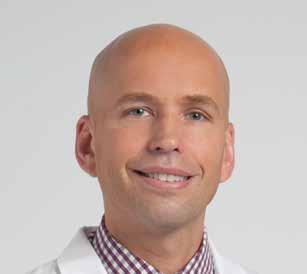
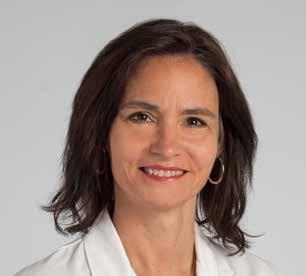
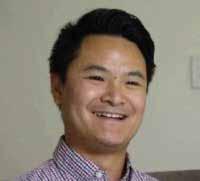
system and with that problem, nerve injury can cause direct injury to the brain. The other things we are seeing is a heightened state of stress and the brain is alerted and a few things happening in a stressed body, the brain is hypervigilant and in a hyper-stressed state.”
To simplify it, he suggests, “Think of it like this. The body is a house. The virus is the fire. And the smoke damage is what happens in Long COVID. You might even look well, but not feel well. We want to recognize that people are going through something
and respect the human experience. Following COVID, patients are coming in with similar stories and symptoms. They say, ‘I’m fatigued. I can’t think. I can’t sleep. I feel tingling. I have headaches.’”
He said, “We are using different treatments: physical therapy, medications, exercise, tai chi, yoga, meditation, mind-body spirituality, health psychology, biofeedback. We’re working together. The bonding force is compassion and trying to really help people. That is the push that will help to move us forward.” ì

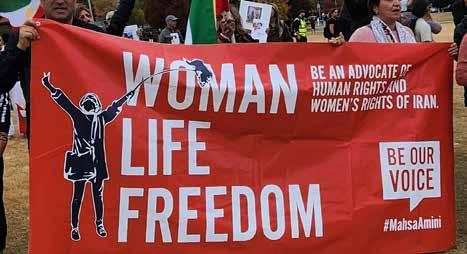 By Marcia Caller Jaffe
By Marcia Caller Jaffe




Some look back on the 2010-11 Arab Spring incidents as examples of the phenomena of demonstrations making international news to draw attention to the plight of repressive Arab regimes. A recent uprising in Iran began this past Sep-
tember following the death of Mahsa Jina Amini, a 22-year-old woman who was arrested in Tehran by the “morality police” that enforces compulsory Hijab laws and has a history of harassing, arresting and beating women.
Amini was reportedly beaten about the head to death while in police custody.
According to Jewish Atlantan Hengameh Pourfakhr, “Although her death was the spark for this recent uprising, there have been many uprisings in Iran against the theocratic dictatorship of mullahs over the past 40 years. Unfortunately, they have all been brutally suppressed. The diaspora Iranians have been holding

rallies across the world to be the voice of protesters in Iran who are censored in Iranian government-run media and are denied access to Internet every time there is an uprising.”




On Nov. 13, a rally was held at City Springs in Sandy Springs with approximately 1,500 people of all ages and in-
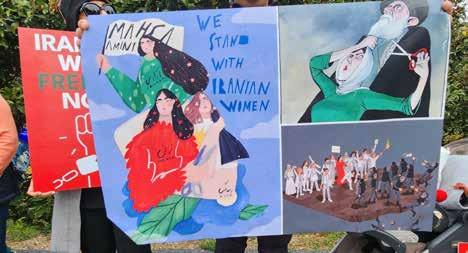
cluded males. Organized through social media, rallies have been held throughout Atlanta almost every weekend since September.
Pourfakhr was born in Shiraz, Iran, and left at age 18. It took her a year and several countries to finally get U.S. refugee status. Here for 30-plus years, she is an innovation program manager for a large energy company. She has not been back to Iran but wore a headscarf during high school.
Referring to her female contacts still there, “Women in Iran drive and work, and some are even entrepreneurs. They make up nearly 60 percent of higher education students, but less than 20 percent of the workforce. Although all Iranians suffer from extreme inflation, rampant unemployment and suppression of basic freedoms, women suffer additional restrictions treated as a second-tier citizens in courts, are banned from singing or dancing in public and have to get permission from a male relative to travel outside of the country. Also, most public areas, from classrooms and college cafeterias to beaches, are segregated.”
She added that Jews are permitted to operate schools and synagogues and are even allowed to drink alcohol in private, while it is banned for the Muslim population. Officially, the Islamic Republic recognizes and respects “people of the book,” both Christians and Jews. However, just like many other countries, antisemitism still raises its ugly head.
At the Sandy Springs rally, Pourfakhr wore jeans and a T-shirt similar to the signs and placards stating “Woman, Life, Freedom.” Some held pictures of arrested or murdered protesters in Iran. They chanted for freedom and de manded that the mullahs leave Iran and end their brutal dictatorship. The chants also called out Amini’s name and those of the many protesters who were recently killed.
In terms of using identifying photos at the rally, some Iranians worried about threats to their families in Iran or trouble when they visit Iran. However, Pourfakhr is not personally aware of any such cases.

Contrasting life in Iran versus the U.S., she concluded, “I am Sephardic, but I go to a reform synagogue here. As a Jewish woman in Iran, I was free to go to the synagogue of my choice or be active in the various Jewish community centers. But I was subject to the same compulsory systematic Hijab oppres sions and violation of my human rights as were my Muslim friends. As a woman in America, I enjoy many freedoms that I didn’t have back in Iran, but I am realizing that the fight for equity and women’s rights is not over, even in America.”

In terms of what it will take to re store equal rights in Iran, she conclud ed, “Overthrowing of the regime by the people of Iran and its replacement with a secular democracy with many checks and balances.”
Easier said than done...but more power to the people. ì
10180 Jones Bridge Road Johns Creek, GA 30022 770-410-9000 www.chabadnf.org


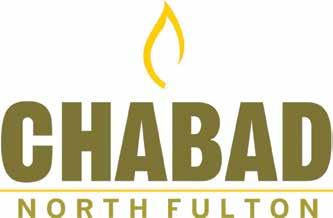
The Adelson family, led by the late Sheldon Adelson’s wife, Miriam, is making deep cuts in support for the Birthright program. The family’s foundation is reportedly cutting its contribution in half this year and will only contribute about $20 million to the program. The organization fully funds 10-day group trips to Israel for Jewish young adults between the ages of 18 and 26. The Adelsons have given the initiative a total of more than $500 million since its creation and has been the single largest contributor.
Because of the drop in funding, the organization, which had a budget of approximately $150 million, is cutting the number of participants it funds by onethird. The organization is expecting to underwrite about 23,500 trips in 2023, which is a sizable drop from the pre-pandemic level of operations in 2019, when 35,000 participants were provided trips to Israel.
Miriam Adelson has generally supported the program with an annual contribution of $35 to $40 million. Next year,
however, the family is only expected to contribute $10 million to the Birthright Israel Foundation. Miriam Adelson pointed out that her family has “invested profoundly” over the years and now it is time for “others to step up.”
“We’re creating space for others to commit, to recommit, or increase their commitment,” she said. “Birthright is not
an Adelson family investment. It is an investment in us all, in our collective, communal future.”
The ambitious Birthright program has generally been credited with building a greater sense of appreciation for the Jewish state, along with building a stronger Jewish identity and creating a stronger commitment to Jewish continuity.
Birthright CEO Israel Tapoohi told the website, eJewishPhilanthropy, that the organization first began discussing the Adelson decision to cut back support six years ago. Tapoohi described it as an effort to broaden the organization base of support.
“We believe Birthright Israel is an endeavor that the whole Jewish commu-

“I love America.” That is the opening sentence of the newly released memoir by Gisèle Huff “Force of Nature: The remarkable true story of one Holocaust survivor’s resilience, tenacity and purpose.” She was four when Hitler invaded her native France and she lost 18 members of her family to the Holocaust. She and her mother survived by going into hiding with false identities. The description of the horrors of that period has eerie echoes to the resurgence of antisemitism we are experiencing now.
If America had not entered the war, Gisèle might not be alive today to tell her story. And what a story it is! Her first memory of our country is viewing the Statue of Liberty in the New York harbor at dawn in 1947, a symbol of not only the freedom but the opportunities that America offered. All their worldly possessions were packed in two suitcases, they had $400 to their name and neither she nor her mother spoke a word of English.
They lived with Gisèle’s paternal grandmother, her aunt and cousin in a one-bedroom tenement in the South Bronx and she attended a dilapidated public school where she was one of three white children in the
class. An outstanding student in France, she realized that her 6th grade black classmates weren’t being educated. When she launched her career as a foundation executive 50 years later, that experience inspired her to work toward making a good education available to every child in America.
Having married when she was 18, education became a major focus for Gisèle when she was 32 and enrolled as a freshman at Hunter College. Nine years later, she earned her Ph.D. in political science at Columbia University. Her family moved to San Francisco in 1977 and there began the second phase of her life, a job as the director of development of a private prep school where she met and worked with some of the city’s most prominent people and learned that they were just as accessible as others she had met over the years.
But Gisèle’s successful, happy life was interrupted by the devastating loss of her husband of 33 years who died of pancreatic cancer at the age of 54. At the age of 60, she decided to run for the CA 6th Congressional seat as a Republican who espoused libertarianism as a philosophy. She was defeated in the primary, but the connections she made lead to a position as the executive director of
the Jaquelin Hume Foundation. It was in that position that she met and engaged with the great minds of politics and education, from liberal New Jersey Sen. Cory Booker to conservative former Florida Gov. Jeb Bush, and blazed a trail for blended learning.
As she was contemplating retirement at the age of 82, she suffered another unimaginable loss, that of her 54-year-old son from the same disease as his father, at the same age. Gerald Huff, principal software engineer on the Tesla Model 3 team, was an ardent supporter of universal basic income because of his concern about technological unemployment. After the economic debacle of 200809, Gisèle made a sharp political turn away from libertarianism when Gerald persuaded her that providing every American with $1000 per month would guarantee a floor under which no one can fall.
With renewed vigor and in her son’s memory, Gisèle launched a non-profit, the Gerald Huff Fund for Humanity, whose mission is to work for the implementation of universal basic income. Telling a story of setbacks and triumphs, grief and joy, the chapters of Gisèle’s life speak to her strength, to her commitment to deep and lasting friend-
ships, and to her determination to challenge and engage the powers that be.
For more information about the book, please visit Amazon or you can go to Gerald Huff Fund for Humanity - https://fundforhumanity.org/force-of-nature/
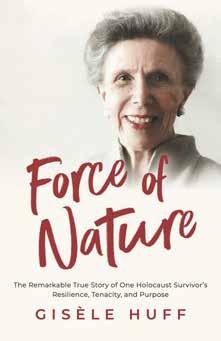
The projected drop in trips was said to have been discussed in a board meeting of the organization on Nov. 29. Not only has Birthright had to deal with the drop in funding, but it has also had to deal with inflation and escalating travel costs.
In addition to rising expenses, the Birthright Foundation has merged its 10-day trips and its longer Birthright Excel Fellowships with a program originally created by the Jewish Agency for Israel. Since January, the Foundation has taken over the longer internship program of Onward Israel, which has provided immersive living and learning internships for 11,000 Jewish young adults from the United States and other countries.
Over the years, Miriam Adelson, who is said to have inherited a personal fortune of more than $40 billion when her husband passed away two years ago, has been joined by several other important Jewish philanthropists. Among them were wealthy investors Michael Steinhardt and Charles Bronfman and the cofounder of Home Depot, Bernie Marcus. Since 1999, they have helped to provide an estimated 800,000 free trips for Jewish young persons.

Marcus has undertaken a new initiative in recent years to provide a program in Israel for tenth-, eleventh-, and twelfth-grade American students. His RootOne program was projected to bring about 7,000 teens to Israel this year for
three-week stays. The work is supported with a $60 million, three-year grant from the Marcus Family Foundation. Unlike the Birthright program, the high school students are expected to pay for part of the trip themselves.

While giving in Israel by Marcus and Adelson has remained high over the years and Jewish support for Israel continues to be robust, recent studies have shown an overall decline in support. In a report online in the Times of Israel in July of this year, Hanna Shaul Bar Nissim, a post-doctoral fellow at Brandeis University, noted research there has shown that Jewish giving to Israel has been on the decline since 2009. She blames the trend on several factors.
“I believe that several factors, including demographic and social changes, a diminished perception of Israel as being in need and concerns over the Palestinian-Israeli conflict have probably been driving the decline for years. More recently,” she continued, “Israel’s increasingly conservative policies on social and religious issues, which are often at odds with what most American Jews support, might also be playing a role.”
At the same time, Israel, which has had strong economic growth in recent years, has stepped up philanthropic giving in the country. According to a study underwritten by the government there and done at Tel Aviv University, charitable giving in Israel increased by 43 percent between 2009 and 2015 and homegrown philanthropy was responsible for one-third of the donations there. ì

ROBIN BLASS, REALTOR® 404-403-6561
Robin.Blass@HarryNorman.com
LAUREN BLASS SOLOMON, REALTOR® 770-789-4464
Lauren.Blass@HarryNorman.com
The Atlanta Perimeter office | 4848 Ashford Dunwoody Road | Atlanta, GA 30338 770-394-2131 Office | HarryNorman.com



Wishing you a most joyous Hannukah, full of love, light and happiness.
Chanukah Wishing you and your family a year of health, happiness and many reasons to smile!
nity benefits from, and everyone needs to contribute to its success.”Miriam Adelson has announced deep cuts in her family’s contributions to the Birthright Israel program. The number of Birthright participants is likely to decline by one-third in the coming year.
The Jewish Educational Loan Fund held its 2022 Annual Meeting on Dec. 7 at Temple Sinai with the one in a million snag when a nearby transformer cut out electricity. Despite cold food, the lack of streaming content, and the inability to share remote videos, the meeting aligned with the upcoming miracle of Chanukah, defeating all odds with oil burning, a smattering of backup lighting that held out just long enough to keep the speakers on point, and guests not tripping over one another.
The focus, of course, was and is still, on the good works of JELF, in tune with its 146th annual meeting. JELF CEO Jenna Shulman soldiered on in the darkness, stating, “So much for putting too much stock in technology.” She emphasized why JELF loans are so much more crucial now since education is the way to fight the rise of antisemitism and to help with the outrageous cost of college. Jennifer Lieberbaum was recognized for her decades of leadership and devotion “like
processing pledge cards in the dark.”
Board chair Rob Rickles, a previous JELF recipient, started by explaining that,
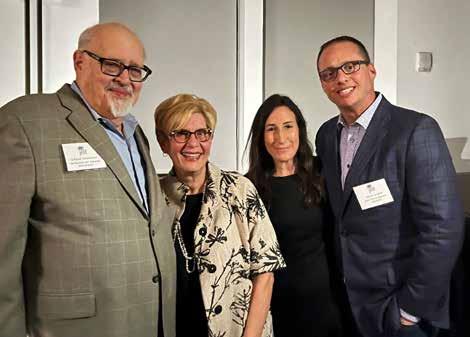
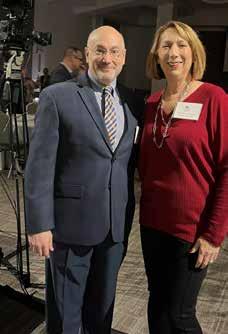
in light of the lack of light, his four-minute speech would instead be 45 seconds. He shared, “This year, 400 students were
helped with the $2 million raised. Also, this is the first year we did a summer session…and come visit our new office in

Sandy Springs in the Northside Tower.”
Past board chair, and previous JELF recipient, Dr. Judy Wolman installed the new board and officers. New board members are Cherie Aviv, Adam Kaye, Ilana Lind, Jane Sandler, Stephanie Gang, Aaron Lipson, and Sheila and Dave Adelman. Outgoing board members are Michael Feldman, Nancy Galanti, Steven Kushner, and Don Sklar.
Because of the power glitch, virtual presentations, introduced by JELF board chair-elect Emily Sautereig for author Ron Lieber, New York Times best-selling author of “The Price You Pay for College,” were postponed for later distribution. “My JELF Story,” by Ukrainian-born Jane Sandler, JELF recipient and whom Shulman befriended in her 20’s, was also unavailable to stream.
Always quick on her feet, Eydie Koonin presented the Steve and Eydie Koonin Service Awards to Brian Banner and Sheila and Dave Adelman. She began with a fun sentimental story about a Passover decades ago with her mother and mother-in-law serving seder in a power outage, where “the wrong matzo ball soup pot got dumped.” Koonin praised Banner for his quiet thoughtfulness. The other award went to the Adelmans, who have served on various JELF committees and “continue to make a difference by their board service.”
Marianne Daniels-Garber then spoke of her initial meeting at General Muir with Jane Aronoff to feel her out. Garber was quick to note Aronoff’s abil-
ity to do “practically everything, especially during the pandemic, and remain unflappable.” Aronoff is known for her quick-witted style and ability to resolve key issues, serving in a variety of JELF positions, including a step back when her daughter, Lara Dorfman, served as JELF’s executive director.
In receiving the Garber Award, Aronoff became emotional, invoking the memory of Stephen Garber’s father, Al (Marianne’s father-in-law), and spoke of his love for study, heart and soul, vis a vis, JELF’s mission. She praised DanielsGarber “because she is the real deal and role model.”
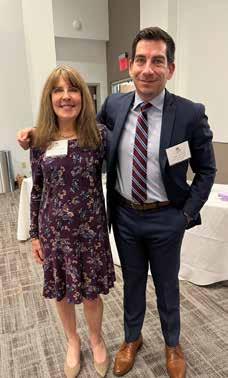
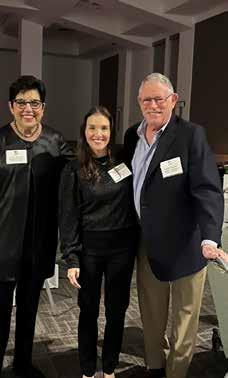
Earlier in the reception, divorce attorney Kevin Rubin, incoming vice president and executive board member, told the AJT that he is motivated in 2023 to engage in strategic planning, and taking a hard look at the future, with emphasis on achieving growth including a specific push in South Florida. Note that JELF includes surrounding states, not just Georgia.
Rickles closed the meeting by saying, “This is like the miracle of Chanukah, that the one overhead light lasted this long.”
The evening ended with “mazel tov” cheers and, as guests exited, the lights came back on. Some opted for a stop at the bar and to head back into the Sinai social hall to watch the videos. Shulman also pledged to distribute the videos later, as others chose to linger and watch on the spot. ì

5565 GLENRIDGE CONN., N.E., SUITE 850, ATLANTA, GA 30342 PHONE 770.379.1450 FAX 770.379.1455 MENDENFREIMAN.COM
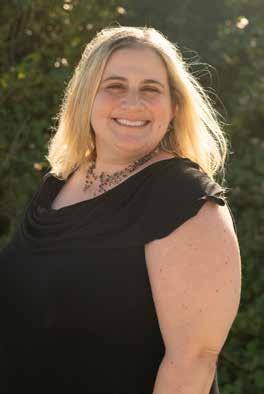
Just when you think New York has poured enough trends on us down south, co-owners Karen Robinovitz and Sara Schiller officially opened Sloomoo Institute on Peachtree Road in Buckhead this past November.
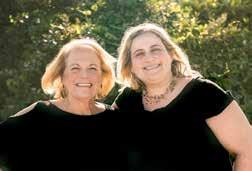
In case it sounds slimy, it is. Pronounced “slew moo,” the institute, so to speak, is a combination of children’s museum and focused play spaces with varying rooms of exhibits that adults will also enjoy. Founded in Soho New York in 2019 with a mission including mental health and inclusion, Sloomoo has since opened in Chicago, along with the new Atlanta facility.
Interestingly, Robinovitz, now residing in New York, spent some impressionable years here to set the stage for valuing Atlanta. She said, “I went to Emory University and loved living in Atlanta. We also see Atlanta as a hub for travel, culture, and growth. It’s the perfect location for us.”
Connecting the dots to bring this concept to fruition, Robinovitz added,
“Sloomoo was born out of a difficult experience. A few years ago, I had gone through a lot of grief and mourning. One day, I was with a friend whose daughter had hand-made slime. I wanted to see it as I grew up with it in the 1970s. The minute I had my hands on it, I was hooked. It brought me so much play and joy. I
started sharing slime with my friend, Sara, and together, we wanted to bring the magic of sensory experiences to the world as that is exactly what slime is.”

For one to two hours, guests can indulge, bond, let loose in a world of sensory play with glitter, wallpaper installations, lava lamp morphing shapes,

and the lab-ability of designing your own slimy concoctions, mixing and matching 56 scents, colors galore, and choice of charms. Dip into the Slime Pond, ask for extra slime (be willing to pay for it), or experience a Slime Sling Shot. Best advice: wear capris, or rollup pants, and slip-on shoes. Personal belongings go in a locker.




Maybe freedom, maybe escape, but definitely stress release and family fun. Tickets are $39 per person and include rooms of fun and a basic slime pour. Another $39 will get an enhanced slime experience. No food or drink is available.
First, you must adjust your name. In 2017, a viral Sloomoo word trend replaced the vowels in a name with “oooo.” Marcia, for example, is MoorShoo. Now try “Peachtree.”
Robinovitz supplied the AJT with some background into her wizardry. Long before social media, she co-authored, “How to Become Famous in Two Weeks or Less,” which is an irreverent marketing “how-to” with a sense of irony and self-depreciation, which she co-wrote with a friend. Career-wise, she started as a journalist and, for 10 years, freelanced for a variety of top-shelf publications, such as the New York Times, Bazaar, Elle, and Marie Claire. She covered fashion, beauty, travel, lifestyle, and
celebrity culture.
Robinovitz elaborated, “The world was so different back then. No digital. Expensive photo shoots. There was a lot of glitz, and it was a great thing to experience in my 20s. But I moved over to the digital side and embraced marketing by the age of 30 as I saw that as the future.”
In addition to Sloomoo’s in New York City and Chicago, and now Atlanta, when asked if Vegas, Los Angeles, or Miami will roll out next, Robinovitz teased, “We will see!”
Robinovitz enjoys yoga and viewing and experiencing contemporary art. This past September, her home was featured in Architectural Digest, “The Slime Queen’s Williamsburg Apartment is Stuffed With Art.”

To be your slimiest self, check their website for entry times for ticket sales. Prices vary for children under 14, veterans and seniors; children under the age of one are free. Sloomoo is located at 3727 Peachtree Road. ì


There are many ways to support Israel and its people this holiday season, but none is more transformative than a gift to Magen David Adom, Israel’s paramedic and Red Cross service. Your gift to MDA isn’t just changing lives — it’s literally saving them.

Donate today at afmda.org/support or call 866.632.2763.
afmda.org/support
Shellie Schmals has been called many things, and she agrees with all of them: film maven, retro vamp, burlesque queen.
To Atlanta’s film community, however, she is considered one of the most sought-after film consultants and producers, and she has strategically partnered with local film and entertainment organizations to empower women filmmakers to pursue and complete their dream projects.
Schmals was born with entertainment in her blood. Her fourth cousin was Edward Small born Schmalheiser, one of the legendary film producers of Hollywood’s Golden Age.
“Growing up, I loved making people laugh. I was a real ham. I loved singing, modeling, and watching movies,” said Schmals. Her love for her Jewish heritage led her to join BBYO (B’nai B’rith Youth Organization) where she was regional n’siah her senior year of high school, as well as the summer programs teen coordinator.
In 1998, she had a hunch that Atlanta would be a great place to move based on her interest, and she was right.
“A few years into my career, I discovered Atlanta’s creative community,” states Schmals.
After working with non-profit Jewish organizations such as the Jewish Federation of Greater Atlanta and the Marcus Jewish Community Center of Atlanta, Schmals found a place to perform improv comedy at Relapse Theatre. For many years, she worked at the Atlanta Jewish Film Festival as a senior programming and industry relations manager, helping filmmakers through the submission process and with distribution deals.
In 2009, through her association with Relapse Theatre, Schmals started producing variety shows and art events around town.
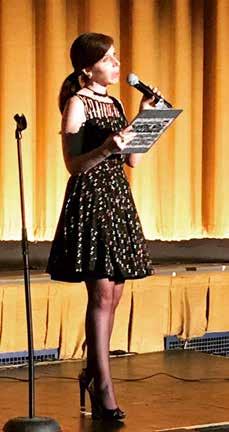
Schmals believes that the glue that bonded all of her talents together was the collaboration skills that she learned at BBYO, along with her education that provided her the business acumen she needed to become a creative entrepreneur, including student association president at Daemen College, master’s degree in education administration from New York University-Buffalo, and an MBA from Brenau University.
In 2016, her talents led her to WIFTA (Women in Film and Television in Atlanta), a highly recognized national and
global organization with more than 12, 000 members. Atlanta is the secondoldest chapter, among the 40-plus chapters throughout America and around the world. WIFTA’s mission is to empower women filmmakers through networking through monthly events, mentorship, scholarships, training, and education.
“As the current vice president of programming at WIFTA, my goal is to help women become confident visionary filmmakers. WIFTA prides itself on being a safe space where women can connect, grow, and find funding for their projects,” states Schmals.
All of WIFTA's annual events are geared to give women filmmakers a platform and voice. There is the annual gala event that celebrates women who have had a positive impact on the film industry. Among last year’s gala honorees was Dulcé Sloan, correspondent on “The Daily Show with
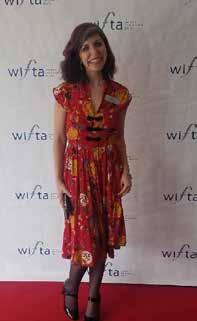
Trevor Noah” and Atlanta comedian. The 48th annual gala event will be held at the Atrium, Fulton County Government Center. The honorees include television and film producer Autumn Bailey-Ford and Melissa Goodman, executive director of SAG-AFTRA local Atlanta.
There is also WIFTA’s annual Short Film Showcase. This year, more than 100 films were submitted and only 10 films were chosen to premiere at the event, which was located at RoleCall Theater. It was a positively charged networking mixer. The winning categories were best actor, best director, best screenplay, and best short film. The winner of best short was given a $500 prize.
At the annual events and throughout the year, women filmmakers are always eager for Schmals’ advice.
“The advice that I give filmmakers is to take advantage of opportunities. You
can create the world you want if you pursue your dreams, and don’t ever give up,” states Schmals.
Additionally, Schmals strongly believes that Atlanta is a great place to start a film career because the community supports each other. It’s small enough that people can network and build strong connections, and large enough that people can build towards a financially viable career, she said.
Also, organizations such as Fulton Films, DeKalb Entertainment Commission, City of Atlanta, and Film Impact Georgia are all organizations that work with WIFTA to help women filmmakers to get their films funded and produced. Also, Stage 32, an organization that recently hired Schmals as the director of community, is an additional resource considered the largest social and educational site for film, television, and theater creatives.
With Schmals doing so much to help others, it’s hard to believe that she has time for herself, but her creativity cannot be contained.
“I am a huge fan of immersive theater with a passion for entertainment that’s unexpected and pushing boundaries. I am a huge fan of old-time burlesque shows. Everything about a burlesque show is what I love, the make-up, cos-

tumes, glitter, and humor. I produce shows each year for the Middle-Age Cabaret Older and Bolder Burlesque,” states Schmals.
On Dec. 22, Schmals has an exciting project that will debut titled, “The Golem: Storms of the South.” She has partnered with the project’s prolific writer and director, Louis Kyper. “The Golem” is a Chanukah celebration that also showcases incredible real-life stories of Jews who escaped persecution in Western Russia. These stories come from Steven Spielberg’s Digital Yiddish Library. Set in 19th century New York, the show is a dark comedy meant to educate and entertain.
“This show is an addition to Atlanta’s artistic landscape for the holidays. Just as “A Christmas Carol” is an annual event, I hope “The Golem” will be, too. And the event will coincide with the last night of Chanukah,” said Schmals. The cast is diverse with people of color and a variety of religious affiliations.
Schmals strongly believes that now is the time for filmmakers to share compelling stories that engage conversation.
“With all the antisemitism, hatred, and violence, now is the time for local filmmakers to write stories that make people critically think about these current situations,” states Schmals.
Schmals wants to remind women of this fact. During the height of her cousin’s Hollywood career, the number of women filmmakers could be counted on a few fingers. Times have changed because women refused to be relegated to the sidelines.

“Take a chance, believe in yourself, and who knows, you may be the next big filmmaker to change the world,” states Schmals. ì
There’s one place where you can plug back into what matters.
Where real experiences connect friends and family to the world’s most remarkable animals. Come see how good it feels.
Get tickets at georgiaaquarium.org

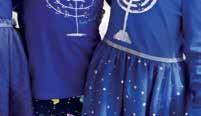

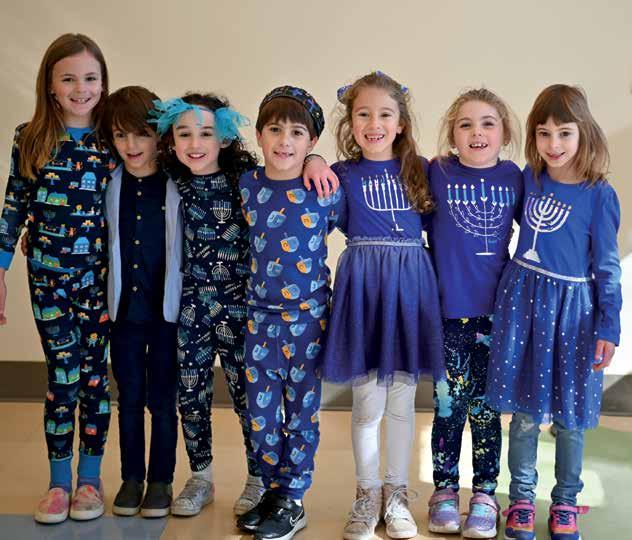 By Dave Schechter
By Dave Schechter
Jeremy Fingerman calls Jewish camps a form of “communal glue.”

“Summer camp provides a real joyous Jewish experience for all the participants and that’s a positive, joyous experience that really sinks into you hard and stays with you,” said Fingerman, CEO of the Foundation for Jewish Camp (FJC). “Camp is Judaism with a smile.”
Studies attest to the staying power of that experience. Children who attend Jewish overnight camps are more likely as adults to light Shabbat candles, attend synagogue, marry a Jewish spouse, visit Israel, donate to Jewish charities, and to demonstrate in other ways the importance of Judaism in their lives.
Maintaining that influence brought more than 825 camp directors, lay leaders, educators, funders and fundraisers, and vendors to Atlanta Dec. 4-6 for FJC’s biennial conference.


FJC initially expected 500 registrants. The larger than expected number demonstrates “the need of people to
come together, the desire to be together, and the resilience and buoyancy of the field,” Fingerman said.
The conference theme — “Imagine What’s Possible” — is meant to look beyond the 2023 season.
“We see that camp is more important than it’s ever been to the campers, to their families, to their counselors,” said Fingerman. “The world needs more camp. Jewish camp, in particular, has
been a real haven for folks” emerging from constraints necessitated by the COVID-19 pandemic.
COVID forced cancellation of the 2020 camp season. Camps that reopened in 2021, juggling state and local COVID rules, with some offering shorter seasons and limited activities. With a complete 2022 season in the books, “There’s enough momentum to say that we’re starting to dream again,” Fingerman said.
Several factors brought FJC to Atlanta. The non-profit, founded in 1998, established its third regional center in Atlanta about a year ago, joining those in Los Angeles and Chicago. The Southeast hub is headed by Bobby Harris, the former long-time director of Camp Coleman in Cleveland, Ga., operated by the Union for Reform Judaism.
Fingerman praised an “outstanding” partnership with the Jewish Federation
of Greater Atlanta, citing JFGA’s “Jewish Camp Initiative,” established a decade ago to make summer camp more affordable. In addition, The Marcus Foundation “has been one of our long-time, most generous donors, funders and one of the leading foundations supporting Jewish camp in a broad sense,” he said.
Jewish camps are being challenged by increased operating expenses and tuition, while also focusing more on the mental, emotional, social, and spiritual health of campers and staff.
COVID-19 took a toll on every segment of the camp community, notably the children. “They lost community. For many campers, they say they live 10 months to get to those two months” at camp, Fingerman said. Camp provides what he termed “an aspirational arc,” in which campers look forward to new experiences each year.
Camp counselors may be the most important age group, Fingerman said. “They’re the heroes, they’re the example of what everybody wants to be like, they’re the cool role models.” The lost 2020 and limited 2021 seasons cost counselors opportunities “to learn how to lead, how to be a role model.”
“The parents also have suffered and are suffering,” Fingerman said. “Parents in 2021 were gracious and relieved that camps had reopened and were very appreciative.” He acknowledged generalizing in his observation that by the summer of 2022 some parents had returned to a “much less accommodating” stance.
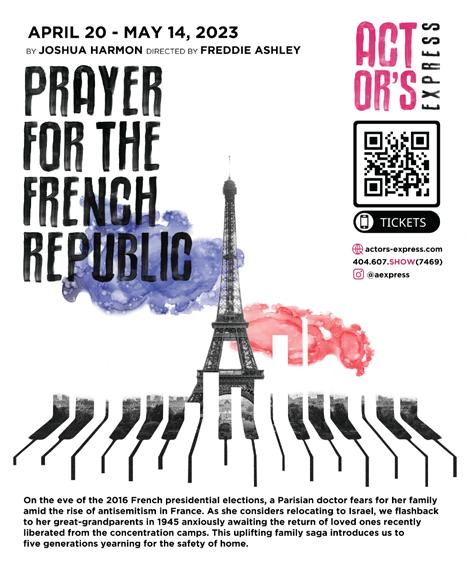
Meanwhile, enrollment continued to rebound. In 2022, FJC listed 153 overnight camps, attended by 72,672 children, and 162 day camps, attended by 72,713 children. Fingerman estimated that 95 percent of children who attend Jewish overnight camps previously attended day camps, Jewish and otherwise.

Fingerman said that, compared with the year before, operating expenses in 2022 ran ahead of revenues. Meanwhile, the price tag to attend camp increased 7 percent in 2022, and an 8 percent increase is projected for 2023.
This is where Atlanta’s “Jewish Camp Initiative” comes into play. JFGA provided $1.04 million in scholarships and grants in fiscal 2022, with 80 percent benefiting campers attending regional overnight camps. Approximately 72 percent of the money went to need-based scholarships and 26 percent supported FJC’s “One Happy Camper” grants for first-time campers. The Federation program assisted 722 children to attend camp this past summer.
Jewish camps employ more than 38,000 full-time and seasonal staff. The
staffing pipeline is being restocked after COVID-19 forced layoffs and some staffers found employment elsewhere. In 2021, the number of full-time professional staff at overnight camps dropped below pre-COVID levels and declined another 10 percent in 2022, Fingerman said.
The need to expand support for the mental and emotional health of campers and staff was cited by 82 percent of the overnight camps and 69 percent of the day camps in a FJC 2021 survey. An important source of aid has come through Yedid Nefesh (“beloved soul”) grants by The Marcus Foundation. Launched in 2019, Yedid Nefesh has made several million dollars available to fund services at 99 summer camps.
The importance of this work was reflected by the registration of 60 mental health professionals at the conference, Fingerman said, as well as numerous sessions focusing on related subjects, as well as issues of inclusion and diversity.
“The profession of camp director has become increasingly complex, because we’re dealing with so many types of things,” Harris said. “Camp is a reflection of our society. What shows up at camp happens the other 10 or 11 months of the year. These issues are really as present in our society in a very pronounced way.”
In five or 10 years, Jewish camp “will be much more developed as a year-round and life-long enterprise,” Fingerman said. “We can no longer rely on only the summer, because the school calendars are extending and actual free time in the summer is condensing.”
That future may include camp retreats for briefer periods, such as weekends or a couple of weeks; in-person camp programming in the Jewish communities themselves, and more online programming. “Year-round experiences only multiply the impact and magnify the impact of camp in the summer,” Fingerman said.
Harris participated in the search for a new director at Camp Barney Medintz, operated by the Marcus Jewish Community Center of Atlanta. Danny Herz, who has been director of the 6 Points Sports Academy, a Jewish camp in North Carolina, now moves to Camp Barney. During that process, Harris said that he was impressed by “the intense love for their camp” of the Camp Barney alumni.
Whatever their other points of Jewish identification, such as a synagogue or communal organization, Fingerman said, “An alumni of camp feels that they belong to their camp community. That’s the brand they belong to.” ì
For the past two years, Robin and Sabi Varon have graciously welcomed a diverse group of Jewish teenage boys to Shabbat dinners and holiday celebrations at their home in Sandy Springs. Drawn from several schools and synagogues throughout metro Atlanta, these young men eagerly await spending a day or night with the Varons, whether for Shabbat or a Jewish holiday.
They know the conversation will be lively, the learning meaningful, the food delicious and the laughs plentiful. And perhaps, most importantly, at a time when Jewish leaders express concern about teen ambivalence toward Judaism, these boys embrace Shabbat and holiday participation with exuberance and commitment.
On a recent Tuesday night this month, seven boys braved the rain and fog to gather at the Varon home for a pre-Chanukah party. Robin had prepared a beautiful appetizer and dessert assortment with a variety of bourekas (savory filled pastries), jelly-filled doughnuts, candy, and chocolate gelt. Around the dining room table, Sabi, Robin and the boys discussed the symbolism of light dispelling darkness, particularly relevant for Chanukah, before the conversation transitioned into lighting the spark in each boy’s soul.
From the esoteric to the practical, Sabi also provided a cautionary tale in the mix of topics, stressing that the young people should stay away from drugs. “Drugs are artificial and temporary. Find G-d and you will be high for life,” he emphasized.
The Varons, their sense of humor, and their words of wisdom have certainly made an impression on these teens. Nate Friedman, a neighbor and one of the regular guests, said, “There is a warm and loving glow at the Varon home. Sabi is really engaging, and he puts on a show that is made for teenagers. He is able to teach us while he entertains us.”
The Varons seem to have found the secret sauce for instilling Jewish pride, knowledge, and observance into this motley group of athletes, musicians, and college-bound seniors. Not officially sponsored by any synagogue or organization, the Varons are inspired by their involvement with Chabad and the rebbe’s teachings. They have taken on this mission in large part because of their concern about Jewish continuity.
The group started gathering when two of the Varon’s teenage neighbors, Zach and Nate Friedman, and a few of their friends were invited to join them for a kiddush one Saturday, followed by dessert on a subsequent Shabbat. Word spread among the boys’ friends, and more teenagers started arriving at the Varon’s home on Friday nights.
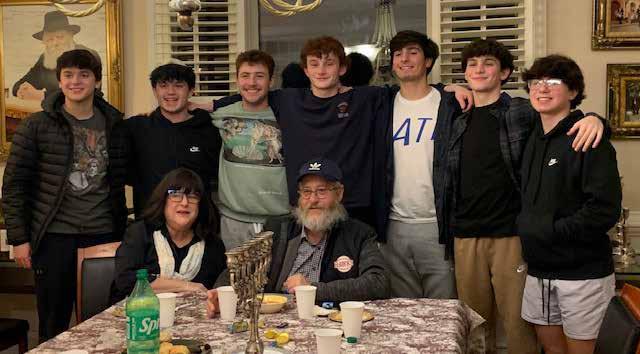
“Each time we get together, I try to introduce a Jewish theme that will get
them to think about their own place in the religion. They know I am their friend. When we see each other, we knock elbows, high five each other and act silly for the first few minutes. It’s not so serious, but we talk about important topics throughout the evening,” said Sabi.
A typical shabbat evening at the Varon’s begins with spirited conversations, followed by singing “Shalom Aleichem” to welcome the Shabbat and “Eshet Chayil,” written by King Solomon. Sabi leads the group through the other prayers, the Kiddush, handwashing and the Hamotzi, before the Friday night dinner begins, lovingly prepared and laid out by Robin, who also caters the Shabbat lunch at her synagogue, Congregation Beth Tefillah.
Several courses are served, beginning with appetizers and colorful salads such as homemade matbucha, babaga-
noush, cabbage salad, and tossed salad. A variety of dips, also made by Robin, include delicious garlic and herb confit, sundried tomato spread, and a mix of tapenades. In winter, there is an added soup course. The main course often includes an array of chicken and meat dishes, rice, and vegetables, followed by dessert, fruit, tea and coffee. With Sabi’s guidance for any newcomers, the boys bench Birkat Hamazon at the end of the meal.
Robin’s delicious meals are described as “feasts” by the boys. Cooper Bernath said that he appreciates the many courses she serves at each
Shabbat and holiday celebration and that “her food leaves a lasting impression on everyone.” Zack Siegel agreed and commented, “Her food is so delicious; it’s like magic.”

“We want to welcome everyone and make each person feel comfortable. My passion is cooking and hosting people,
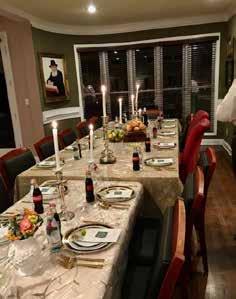
and I do it all with love,” said Robin when asked about the time and hard work she puts into each teen gathering at her home.
The Varon Shabbats and holiday gatherings have become legendary among teenage boys in Sandy Springs, and the crowd has grown organically, simply by word-of-mouth. Each Shabbat that the boys join him, Sabi introduces a new topic or story to encourage their engagement and inspire their thinking. The Parsha (Torah portion) of the week is discussed in an accessible and meaningful manner, and questions are encouraged. Free from judgment, each teen provides his distinct point of view. The young men are refreshingly candid in sharing their opinions and opening up during this time.
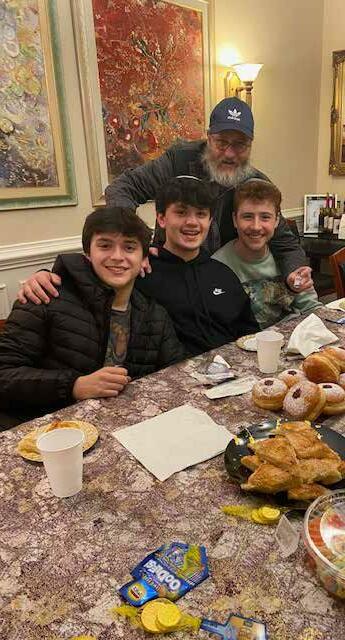
“Sabi and Robin are great, and we can just be ourselves with them,” said frequent participant, Ian Maman. Zach Friedman jumped in to add, “Sabi makes Judaism fun, and we all enjoy his stories and songs.”
In addition to the pre-Chanukah party and ongoing Shabbat dinners, the Varons have hosted other holiday celebrations for the teens this past year, including an outdoor party for Lag B’omer and dinner for Sukkot. During Lag B’omer, Sabi honored kabbalist and author of the Zohar, Rabbi Shimon Bar Yochai, with a blazing bonfire, festive music, a fully decorated outdoor space and a cookout. For Sukkot, the boys ate
dinner in the Varon sukkah and learned more about the holiday.
“When I went outside during Lag B’omer, I saw the whole group of boys jumping up and singing loudly in Hebrew,” said neighbor Beth Friedman. If I didn’t know better, I would have thought I had come upon a group of Yeshiva bokhers dancing around the bonfire. Their spirit was incredible and heartfelt.”
As many of these young men navigate high school and move on to college, the knowledge and inspiration they have gained from evenings spent with the Varons will long be remembered. As the preChanukah party ended, the boys joined Sabi in a lively rendition of a song he sings regularly with the group, “To Love a Fellow Jew,” taken from a Chabad song book:
To love a fellow Jew, just the same as you, is the basis of our holy Torah. He may be far from me, across the widest sea. Still, I’ll always love him just the same. For 70, 80 years, a Neshamah (soul) wears and tears, just to do a favor for another. Love him with all your heart, the heavens spread apart, and have your prayers answered speedily.
If the spirited young voices singing the song that night are an indication of the boys’ devotion to Jewish continuity, the Varons can rest assured they have certainly reached these boys, touching their hearts and minds for years to come. ì
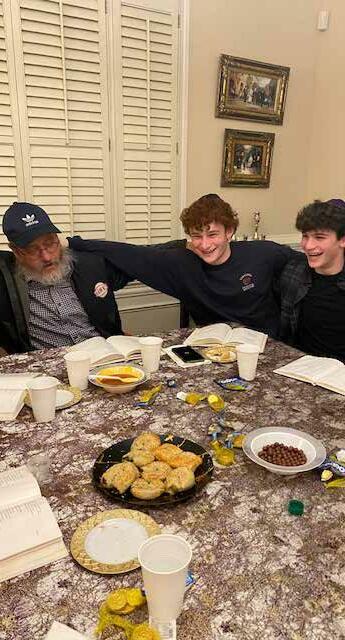
EMORY POINT
1540 Avenue Place Atlanta, GA 30329

DINE IN RESERVATIONS & PREORDER TO-GO AVAILABLE
CITY SPRINGS
6405 Blue Stone Road Sandy Springs, GA 30328
HEAT & EAT PREORDER TO-GO AVAILABLE
Iva Lee Fowke, Rachelle Lipman and Marianne Martin attended a jewelrymaking class at The Cohen Home in March as just an activity. Fowke, who moved into The Cohen Home just a year ago, led the class. Beads were bought and Fowke taught the ladies layout and design, and how to string and tie.


When the class grew from three to 13 ladies, Lipman said, “Let’s sell the jewelry.”
Visitors to The Cohen Home began to purchase the jewelry for their family, their friends, and the staff. The first sales were in May. The bracelets and necklaces were perfect gifts for Mother’s Day.
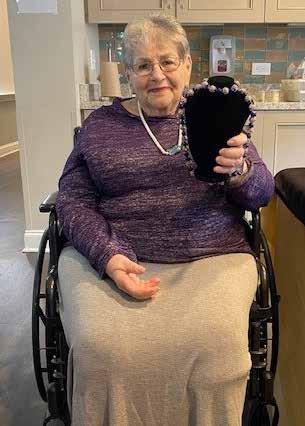
Currently, the creators are looking for avenues for wholesale purchases of cording and beads, and skilled jewelers willing to teach them additional jewelrymaking skills.
Located in Johns Creek, The Cohen Home has been part of the Jewish HomeLife network since 2009 and provides assisted living and memory care support for older adults. The jewelry

The Cohen Home resident Iva Lee Fowke, on jewelry making, said, “It helps me and stimulates my mind, gives me great joy and is entertaining.”
makers and sellers, who became friends after moving into the community, are delighted to present and sell bracelets and necklaces on tables in the lobby.
Rachelle Lipman, speaking about making jewelry, said, “It helps the neuropathy in my hands, and is good exercise. I was a knitter and loved designing.”
Originally founded in 1979 by the National Council of Jewish Women as The Louis Kahn Group Home, in the Morningside area of Atlanta, the com-
Marianne Martin, resident at The Cohen Home, said, “It’s so amazing to make jewelry.”
munity relocated to Johns Creek in 2005. The current building was constructed and furnished through the generosity of the Philip, Kasper and Helen P. Cohen
family and renamed The Cohen Home in their memory.
In 2009, Jewish HomeLife took over ownership and management at the request of the Jewish Federation of Greater Atlanta. At that time, the community was in danger of closing, with very few, very frail residents. With the support of Jewish HomeLife, The Cohen Home was renovated in 2017 and is now a vibrant place for older adults of all abilities to call home.
On The Cohen Home’s Facebook page, residents and their families are effusive with praise for their activities and the loving care they provide residents.
Congregation Gesher L’Torah, on Kimball Bridge Road in Alpharetta, hosted a Holiday Bazaar on Dec. 4, and invited the jewelry ladies at The Cohen Home. Bracelets and necklaces were available for purchase.

The Cohen Home has developed a re-

lationship with nearby synagogue Gesher L’Torah, and LaKeisha Brown, The Cohen Home activity director, felt the Holiday Bazaar would be an opportunity for the residents to share their creations.
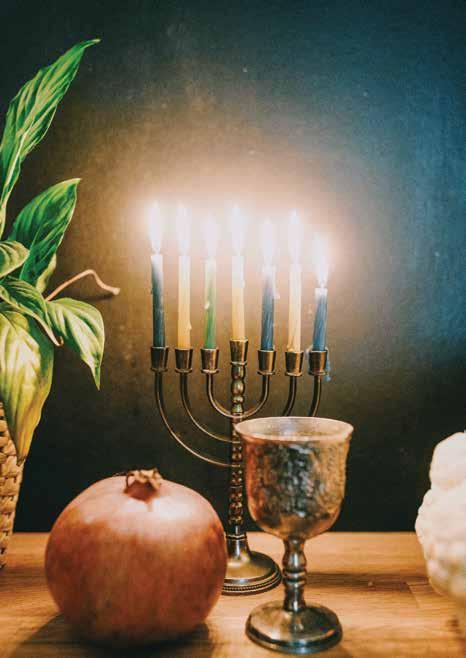
Lisa Winokur, the Holiday Bazaar chair, exclaimed, “We’ll put you in a special spot where there will be room for all of you.”
The Cohen Home’s executive director, Michelle Bradley, also shared her praise for the ladies and their jewelrymaking wares.
“This opportunity to be recognized for their work is a great example of our transformational engagement program, based on the principles of the ‘I’m Still Here’ approach,” she said. “The jewelrymaking gives these ladies purpose, and they’ve bonded as friends. We bring the joy and camaraderie while also supporting their care needs.” ì
Gift giving can be stressful and time consuming. I am a personal and corporate gift coordinator who’s here to take this off your hands. I will curate amazing gifts and all you have to do is accept the “Thank You”.
All Occasions: holidays, birthdays, anniversaries, baby, wedding, friends getaways, college acceptance, corporate

Back after two COVID-imposed virtual years, Hannah’s November Bake sale returned on Nov. 13 under an expansive tent, wafting with the glorious fragrances of cakes and cupcakes. Established as an annual community event, this is particularly special because 11-year-old Hannah Alexander, who has cerebral palsy, raised thousands of dollars over six years from bake sale proceeds to donate to the Cerebral Palsy Foundation.
Hannah Alexander has cerebral palsy because of a bifrontal brain malformation, which is also the cause of her epilepsy and unilateral hearing loss. Her parents had a normal pregnancy with no complications at birth. They were not aware of Hannah’s condition until they noticed some delays in her development.
At five months old, during a weeklong stay at the hospital for Respiratory Syncytial Virus and grand mal seizures, they were given Hannah’s diagnosis. While CP affects everyone differently, Hannah experiences global delays, from walking, manipulating objects, speaking
to feeding. Hannah is extremely bright, happy, and loved. She uses a powered wheelchair and gait trainer to navigate her surroundings and a communication device to speak. Her days are filled with therapies and preventative measures to avoid getting sick as she is extremely vulnerable to viruses.
Mom, Haley Posner Alexander, said, “Hannah works hard for everything she
does, and we couldn’t be prouder of her. She has a magnificent smile and spreads light and joy to all.”
Now in the fourth grade, after being virtual for the past two years, Hannah is back in-person at Mimosa Elementary School, which has an orthopedic impaired program. Hannah loves being with her peers and thrives in the school environment.

For fun, Hannah loves to watch Disney movies, especially “Lilo and Stitch,” listen to music and play with her dog, Charlie. Hannah and her 13-year-old brother, Reid, have a deep love and bond.
The idea for the fundraiser materialized when Reid, who was eight at the time, was inspired to have a bake sale when he heard of possible changes to healthcare and stumbled upon his mom
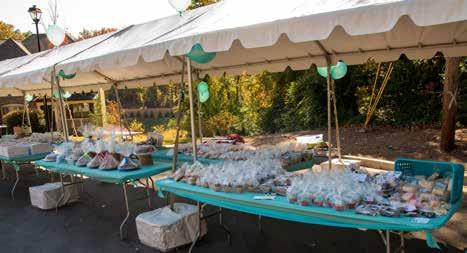

writing a letter to senators. He became concerned that Hannah and anyone else needing medical care, might lose some of their services. Reid wanted to cure it and find more resources.

Hannah’s Bake Sale was born with all proceeds benefiting the Cerebral Palsy Foundation. Haley baked to help her son’s dream become a reality.
Haley continued, “Reid’s incredible friends and family helped, and the community rallied. Progressively, Hannah’s Bake Sale has grown and become a community event.”
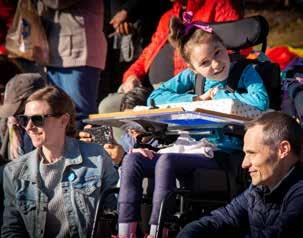

Haley bakes for several months, while simultaneously caring for Hannah, in preparation for the November event which fills an entire stand-up freezer. Volunteers help during the event and bring even more baked goods. Steven Eisenstein’s Classic Tents and Events donates the tents and tables, and families mingle during the three hours. This year, the local elementary school chorus performed, and activities included face painting and a cookie decorating station.
The bill of fare includes cookies, brownies, cupcakes, chocolate-covered pretzels, and full-sized cakes. Gluten-free items are offered as well as beverages, including lemonade and hot apple cider. Smaller-priced items sell for $1, $2, and $3, and the cakes go for $25$40. The most popular items are the “Hannah Banana Bread,” carrot cake, flourless chocolate cake, and red velvet pound cake with cream cheese frosting.
During the past two virtual years, Reid created a website for Hannah’s Bake Sale. This year, at the in-person fundraiser, the family welcomed several hundred customers and a record-breaking $37,000 was raised. The family sends the donation to the Cerebral Palsy Foundation on Giving Tuesday.”
Hannah helps her mom bake a few items and said, “I have fun at the bake sale!” Her favorite sweet is the unicorn cupcake filled with sprinkles and topped with colorful icing. Reid has a sweet tooth and gravitates to the cake batter fudge.
Hannah and Reid’s parents are Ben and Haley Alexander. Ben is vice president of product at PMG, a software company, and Haley is a full-time caregiver for Hannah and a stay-at-home mom. The family is a member of Temple Sinai. When speaking at an abilities awareness event at her temple, Hannah told the audience she wishes to be a rabbi when she grows up.
Donations can be sent to the Cerebral Palsy Foundation or can wait until next November’s Hannah’s Bake Sale. ì
 By Marcia Caller Jaffe
By Marcia Caller Jaffe
Nicole Flom joined Jewish National Fund-USA in October as the senior campaign executive out of the Atlanta office. Originally from Los Angeles, Flom comes to Jewish National Fund-USA from The ALEF Fund where she raised tax credit dollars to be distributed as scholarships for Jewish day schools in Georgia.
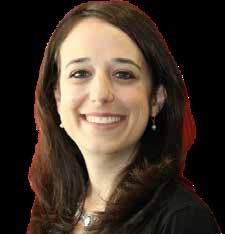
Her previous experience includes Jewish education positions at synagogues and Jewish community centers and assisting with Americans making aliyah at The Jewish Agency. Flom studied at the California State University of Long Beach and University of the Arts where she majored in art history and museum education. She moved to Atlanta nearly six years ago and now lives in Marietta with her husband and two children.
Flom has visited Israel many times and lived there for two years non-consecutively. Flom’s passion for Israel, coupled with her professional experience, makes her proud to join the Jewish National Fund-USA team as they continue to grow their presence in the greater Atlanta area.
She hopes to empower more Atlantans to make a difference for the land and people of Israel.
JNF recently published its “Beautiful Future” magazine about its efforts in housing development, water solutions for the planet, important work in the Negev, valuing special needs, farming, heritage sites, tourism in the Galilee, and much more.
 By Marcia Caller Jaffe
By Marcia Caller Jaffe
Bagel and deli entrepreneur Robert Miller, who stated previously that his goal was to “circle the Atlanta ‘burbs,” is ending 2022 with the addition of a 101 Bagel Cafe prime location in Dunwoody.
Miller‘s formula is to produce New York-style bagels, boiled and baked daily, along with sweets, juices, sandwiches, omelets, and wraps in all sorts of “make your own” combinations.
The first 101 Bagel Cafe took over the Brooklyn Bagel location in Akers Mill in 2018. Dunwoody’s opening hails Miller’s mounting strength as he continues his pledge to be a good community citizen by donating unused bagels and offering the restaurant space for meetings after hours. Miller is constantly searching for franchise owners. All food is prepared
fresh at each location.
Miller said, “While operating stores in Smyrna, East Cobb, and Duluth, we identified Dunwoody as the next real estate venture based on demographics, proximity to the Marcus Jewish Community Center of Atlanta, schools, and a fantastic community. We plan to be good DeKalb County citizens and have hired eight employees and still search for great talent from all areas. We also lend out our common area for meetings and events after hours. On our catering arm, we are situated close to office parks, medical facilities, and schools. We look forward to catering baby namings, mitzvahs, meetings, weddings, etc. 101 Bagel Cafe is proud to add Dunwoody to our family and looking forward to meeting yours.”
The new Dunwoody location is at 4780 Ashford Dunwoody Road.



Georgia’s 2022 election season has ended with the re-election of incumbent Democratic Sen. Raphael Warnock.

With all of the state’s 159 counties and 2,652 precincts having reported, the secretary of state’s office on Wed., Dec. 7, listed Warnock with 1,814,827 votes (51.35 percent) and Republican challenger Herschel Walker with 1,719,376 (48.65 percent).
Walker, a star running back on University of Georgia football teams in the early 1980s, delivered his concession speech at 11 p.m., Tuesday, to supporters at the College Football Hall of Fame. “There’s no excuses in life,” he said. “I’m not going to make any excuses now because we put up one heck of a fight.”

Warnock, who has continued serving as senior pastor of Ebenezer Baptist Church in downtown Atlanta, addressed jubilant supporters at a downtown Atlanta hotel about 15 minutes later. “I’m about to utter the four most powerful words you can speak in a democracy: the people have spoken,” he said.
Michael Rosenzweig, an Atlantan and a vice chair of the Jewish Democratic Council of Atlanta, told the AJT: “This is a great victory for the people of Georgia and for the Jewish community that so strongly supported Sen. Warnock. He embraces the values that were most important to our community in this election— values such as protecting our democracy and reproductive rights—which is why
the Jewish community worked so hard to re-elect him.”
Chuck Berk, co-chair of the Atlanta chapter of the Republican Jewish Coalition, told the AJT: “Rev. Warnock concentrated almost his entire campaign on personal ‘character,’ not the important policies facing our citizens. I hope, now that he’s elected, he will focus on things that will help Georgians.” Berk cited “reckless” government spending and “suffocating” inflation, ensuring energy independence, border security, fentanyl trafficking linked to 100,000 deaths, actions that support law enforcement, and responding to threats posed by China.
The runoff results remain unofficial until they are certified by the counties and the secretary of state's office.
Warnock’s victory gives Democrats a 51-seat majority in the Senate. Democrats currently hold nominal control of the Senate with 50 seats and Vice President Kamala Harris holding a tie-breaking vote.
The Associated Press and several television networks called the race for Warnock at about 10.30 p.m.
In the metro Atlanta core counties, Warnock received 87 percent of the vote in DeKalb County, 77 percent in Fulton County, 62 percent in Gwinnett County, and 60 percent in Cobb County. Statewide, Warnock’s general election margin of 35,000 more votes than Walker grew to 95,000 in the runoff.
The runoff was required because Georgia requires an election winner to
receive a majority of the votes cast. Georgia is one of only two states (Louisiana, the other) that has this requirement for general elections, as well. In the Nov. 8 general election, Warnock received 49.4 percent, Walker 48.5 percent, and Libertarian Chase Oliver 2.1 percent.

Warnock was seeking a full six-year term, after winning a Jan. 5, 2021, runoff to serve the two years remaining in the term of Republican Sen. Johnny Isakson, who resigned his seat in December 2020 due to ill health. Warnock defeated appointed Republican Sen. Kelly Loeffler to become the first African American elected by Georgia to the Senate and only the 11th in U.S. history.
Democrat Jon Ossoff unseated incumbent Republican Sen. David Perdue in another Jan. 5, 2021 runoff, making Ossoff the first Jewish senator elected from Georgia. In a statement Tuesday night, Ossoff said, “It is an honor to work every day for the people of Georgia with Rev. Raphael Warnock, and I congratulate my dear friend on his victory tonight. Rev. Warnock has won universal respect in the Senate for his moral clarity and dedication to public service, and I look forward to continue working sideby-side with Sen. Rev. Warnock for our
great state.”
Walker was recruited to run for the Senate by former Republican President Donald Trump, who owned the New Jersey Generals, the United States Football League team that Walker signed with following his 1982 Heisman trophy-winning junior year at the University of Georgia.
The secretary of state’s office reported that 3.53 million Georgians voted in the runoff, 50.4 percent of the state’s more than 7 million active registered voters. More than 1.88 million Georgians, nearly one-quarter of active registered voters, took advantage of early in-person voting.
When Warnock won in the January 2021 runoff, the interval between the general election and the runoff was nine weeks. The overhaul of the state’s voting rules and procedures by the Republican-controlled legislature following the 2020 cycle reduced the runoff period to four weeks.
Warnock raised more money than any other federal candidate this election cycle, $150.5 million (as of Nov. 16), compared with $58.3 million for Walker. Including spending by outside groups, more than $380 million was spent on the Senate race. ì
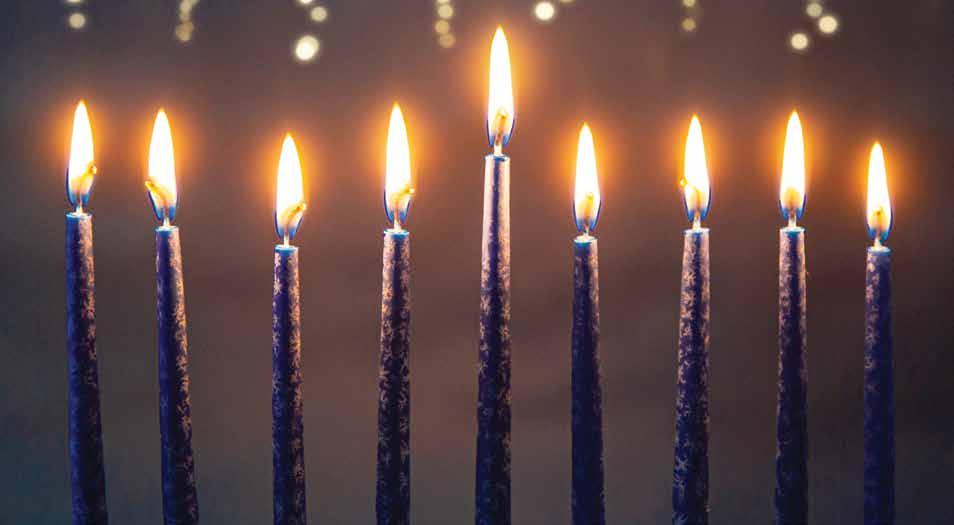



Yad Hanadiv, a Rothschild Family Foundation, and the National Library of Israel (NLI) announced the winners of TARBOOT, the international technological innovation competition for expanding digital use of heritage and culture content
// Photo Credit: Yonthan Boger
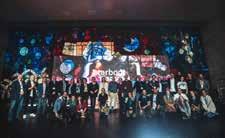
Yad Hanadiv, a Rothschild Family Foundation, and the National Library of Israel (NLI) are proud to announce the winners of TARBOOT, the international technological innovation competition for expanding digital use of heritage and culture content. The winners were announced at a ceremony held at the National Library of Israel in Jerusalem in the presence of Hannah Rothschild CBE, chair of Yad Hanadiv, and Sallai Meridor, chairman of the
Dec. 15, 1999: San Francisco-based venture fund Aqua International Partners buys a 25% stake in Israeli bottled water company Mayanot Eden (Eden Springs) for $47.5 million, financing the company’s expansion into Europe.
Dec. 16, 1922: Eliezer Ben-Yehuda, often seen as the father of modern Hebrew, dies of tuberculosis at 64 in Jerusalem. He founded the Va’ad ha-Lashon, the forerunner of the Academy of Hebrew Language, in 1890.
Dec. 17, 1975: U.S. Secretary of State Henry Kissinger tells Iraqi Foreign Minister Saddun Hammadi in Paris that the United States is willing to see Israel “reduce its size to historical proportions” but not cease to exist.
National Library of Israel.
Almost one year ago, a call went out to innovators, asking for groundbreaking ideas to expand the use of digital heritage and cultural content, based on NLI collections.
The top three selected proposals were awarded a cash prize of $50,000 each. Of these projects, up to $3 million may be allocated for their realization and implementation.
General Track Winner: The Time Machine – A technology to ingest information from NLI, Wikipedia and other archives, and present it in a unique "timeline" format, making it easier to see these materials in their historical context.
Start-up Track Winner: ASAT (As Simple As That) – ASAT natural language processing (NLP) and text processing technology reduces the complexity of content (video, audio, websites) automatically, while preserving its meaning and information content so as to make all content clear to all people.
Student Track Winner: Billions of Words – Developing NLI's image search by applying AI technology to create a smart, easy way to search the rich visual archives (photos, posters, maps) to improve archive accessibility.
Dec. 19, 1903: Max Nordau, who cofounded the World Zionist Organization, escapes unharmed when a would-be assassin, angry over the Uganda Plan, fires two shots at close range during a Chanukah party in Paris.
Dec. 20, 1936: New York Philharmonic conductor Arturo Toscanini arrives at the airport in Lod to conduct the opening performance of the Palestine Philharmonic six days later before a sold-out crowd of 3,000 people.
Dec. 21, 1973: A Middle East peace conference opens in Geneva under the auspices of the United States and the Soviet Union. Syria skips the event because Israel refuses to recognize the PLO. The conference ends Dec. 29.
A Kupat Holim Clalit pharmacy operates at Kfar Saba in 1938.

Dec. 18, 1911: A special convention of Jewish agricultural workers in Ottoman Palestine approves a proposal to create Kupat Holim Clalit (General Sick Fund) to pay for the health care of immigrants to the Land of Israel.
British Foreign Secretary Ernest Bevin in late 1948 expressed the fear that Israel would become a Communist state.

Dec. 22, 1948: A cable to the State Department from a U.S. envoy recounts British Foreign Secretary Ernest Bevin’s concerns about the likelihood of Israel becoming a Communist state and threatening the Suez Canal.

An international team of astrophysicists, including Prof. Rennan Barkana from the Sackler School of Physics and Astronomy (SARAS) at Tel Aviv University, has managed for the first time to statistically characterize the first galaxies in the universe, which formed only 200 million years after the Big Bang. According to the groundbreaking results, the earliest galaxies were relatively small and dim. They were fainter than present-day galaxies, and likely processed only 5 percent or less of their gas into stars. Furthermore, the first galaxies did not emit radio waves at an intensity that was much higher than that of modern galaxies.
Dec. 23, 1907: Avraham Stern, one of the most wanted members of the Jewish underground in Palestine, is born in Suwalki, Poland. He forms Lehi, known as the Stern Gang, to keep up anti-British violence in 1940.
Dec. 24, 1969: Israel uses a fake shipping company as a front to purchase five military boats and sneaks them out of Cherbourg, France, defeating an embargo that canceled the original purchase after the June 1967 war.

Dec. 25, 1918: Anwar Sadat, the president who leads Egypt into the 1973 Yom Kippur War and signs a peace treaty with Israel in 1979, is born in Mit Abu al-Kum, Egypt. He is assassinated during a military parade in 1981.
An engine on El Al Flight 253 is damaged after a terrorist attack at the Athens airport Dec. 26, 1968. // El Al

Dec. 26, 1968: The Popular Front for the Liberation of Palestine attacks an El Al flight during a layover in Athens en route from Tel Aviv to New York. One passenger is killed.
Dec. 27, 2008: Israel launches Operation Cast Lead after Hamas breaks a six-month cease-fire. The 22-day operation aims to stop rocket fire at civilians, stop Hamas terrorism and stop weapons smuggling into Gaza.
This new study, carried out together with the SARAS observation team, was led by the research group of Dr. Anastasia Fialkov from the University of Cambridge, England, a former PhD student of Prof. Barkana. The results of this innovative study were published in the prestigious journal Nature Astronomy.
“This is a very new field and a first-of-itskind study,” explains Prof. Barkana. “We are trying to understand the epoch of the first stars in the universe, known as the 'cosmic dawn', about 200 million years after the Big Bang. The James Webb Space Telescope, for example, can’t really see these stars. It might only detect a few particularly bright galaxies from a somewhat later period. Our goal is to probe the entire population of the first stars.”
Prof. Barkana continued about the process the team used to study the galaxies.
“Hydrogen atoms naturally emit light at a wavelength of 21cm, which falls within the spectrum of radio waves,” says Prof. Barkana. “Since stellar radiation affects the light emitted by hydrogen atoms, we use hydrogen as a detector in our search for the first stars: if we can detect the effect of stars on hydrogen, we will know when they were born, and in what types of galaxies.”
by AJT StaffDec. 28, 1917: Gen. Edmund Allenby names Ronald Storrs the military governor of recently captured Jerusalem. An advocate for Arab interests, Storrs remains the governor of Jerusalem and Judaea until 1926.

Dec. 29, 1946: Angry that the British government administered 18 lashes to an Irgun member for his role in a bank robbery, the underground movement abducts British soldiers in several cities and flogs them 18 times each.
Dec. 30, 1990: Prime Minister Yitzhak Shamir drops Science Minister Ezer Weizman from the Cabinet after accusing him of meeting with a senior PLO official in 1989 and corresponding with PLO head Yasser Arafat.
Items are provided by the Center for Israel Education (israeled.org), where you can find more details.

As former and designated Prime Minister Benjamin Netanyahu struggles to complete the negotiations that will form his next coalition government, the Israel Democracy Institute released its latest survey results indicating that the country’s citizens are not liking what they expect to see from the next government.
This was the first survey produced by the Jerusalem-based thinktank, cofounded, and still chaired by Bernie Marcus of Atlanta, since the Nov. 1 election which gave Netanyahu’s Likud Party and his right-wing and ultra-religious party allies a majority in the next 120seat legislature, or Knesset.
Summarized by IDI’s Tamar Hermann and Or Anabi, the survey indicated that only 43 percent of the respondents are satisfied with the election results, compared to 52 percent who are dissatisfied. Among Jewish respondents, the two groups are not strikingly different, while a large majority of Israeli Arabs are dissatisfied with the results.
Netanyahu was handed the mandate to cobble together a new coalition by President Isaac Herzog. The initial time frame concluded at midnight on Dec. 10, but Herzog granted the former prime minister 10 more days to accomplish his negotiations. The IDI survey showed that about half of the respondents were interested in those talks, compared with 43 percent who are uninterested. Interest among Jewish Israelis was higher, at 57 percent than among Israeli Arabs at 40.5 percent.
There have been several stumbling
blocks that Netanyahu has needed to bridge to conclude his coalition negotiations. Israeli media reports that he has agreed to appoint right-wing Otzma Yehudit leader Itamar Ben-Gvir in a new post called national security minister, Religious Zionism leader Bezalel Smotrich as finance minister, and ultraOrthodox Shas Party leader Aryeh Deri initially as both interior and health minister but switching to the finance ministry after two years.
Other challenging and controversial obstacles for Netanyahu include several legislative proposals. In its survey, the IDI assessed the level of public support for each of the following proposals: allowing ministers to appoint their own ministerial legal advisors; amending the law so that men and women could be separated at public events, in education, and in public services; increasing benefit payments to “Kollel” students; awarding legal status to illegal settlements in the Occupied Territories, known as “young settlements”; canceling the reform to privatize kashrut services; canceling the “grandchild clause” in the Law of Return, and placing restrictions on the eligibility of Jews and their children to immigrate to Israel; and canceling the recognition of Reform conversions for the purposes of the Law of Return.
As in previous surveys, the IDI again found that a majority of Israelis believe that the Supreme Court should retain the authority to strike down laws passed by the Knesset if they conflict with Israel’s basic laws, which basically serve as the country’s constitution. According to reports on the coalition negotiations, that would change under the
new government.
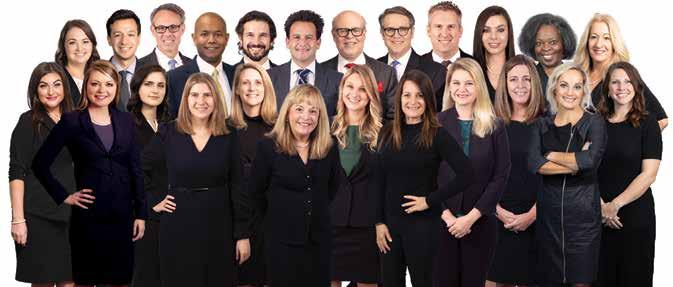
While the Israeli public appears against many of these proposed changes, it is not alone. The American Association of Jewish Lawyers and Jurists, a non-governmental organization that represents more than 500 AmericanJewish lawyers, issued a strong statement warning that attempts to limit judicial independence and enabling Knesset overrides, particularly in relation to human rights, “may endanger public trust in both Israel’s legal system and its democracy.”
In an editorial, Israeli newspaper Haaretz warned that the override clause would leave almost no checks and balances against the power of the majority and would turn Israel into an empty
Former and future Prime Minister Benjamin Netanyahu requested an extension for his coalition negotiations.
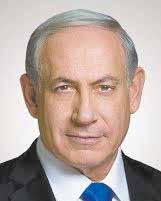
democracy in which the majority could squash minority rights.
The organization’s criticism of the coalition’s proposals follows an opinion piece written by long-time pro-Israel American lawyer, Alan Dershowitz. Calling the override proposal a “terrible mistake,” Dershowitz noted that “democracy requires equality and the Supreme Court of Israel has been an important guarantor of equality and other basic rights essential to a democracy... The override proposal would be a disaster for Israel and should be strongly opposed by all who care about justice.”
Unless Netanyahu requests another extension on his coalition building and receives it, his new government must be completed by Dec. 20. ì
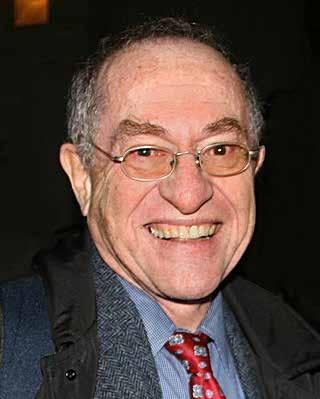
In its fiveyear existence, Mercedes-Benz Stadium has hosted its fair share of marquee events: the 2018 College Football Playoff National Championship, Super Bowl LIII, concerts headlined by megastars like Jay-Z, Ed Sheeran, Taylor Swift, Kenny Chesney, and Billy Joel.
Had it not been for the pandemic, the 2020 Men’s Final Four would have joined the list. And looking ahead, the CFP National Championship returns in January 2025 while the World Cup will come to town in summer 2026.
Now, the stadium can lay claim to another function: serving as a recognizable filming location for a major motion picture.
“Fantasy Football,” the new familyfriendly sports comedy currently available for streaming on Paramount+,
includes many pivotal, action-packed scenes shot onsite at Mercedes-Benz Stadium as the protagonist, Bobby Coleman, is the fictitious Falcons star running back trying to revive his once-promising NFL career.
Contrary to its title, the film, starring Omari Hardwick, Kelly Rowland, and precocious 18-year-old actress/film producer Marsai Martin (“black-ish”; “PAW Patrol: The Movie”) has nothing to do with fantasy football (i.e., DraftKings or FanDuel). It is, however, a sports fantasy film as Hardwick’s character Coleman,

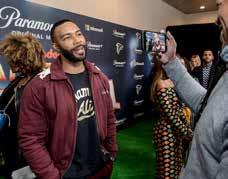


a fumble-prone journeyman tailback who barely cracks the Falcons’ practice squad, sees his career rejuvenated when his daughter, Callie, played by Martin, magically learns she can manipulate his moves on the gridiron via playing him in EA SPORTS “Madden NFL 23.”
It’s a heartwarming tale—a teenage girl coming into her own on her high school’s robotics club team is simultaneously able to channel her tech savviness toward transforming her former Heisman Trophy-winning father, now seemingly at the tail end of his career, into the next big thing in the NFL.
It’s also one of the more Atlanta-centric flicks in recent memory.
Undoubtedly, the city’s influence runs deep in Fantasy Football—and not just because of the backdrop of MercedesBenz Stadium, including its marvelous exterior, massive halo display, and actual conference rooms. The Falcons’ head coach is played by former longtime tight end Tony Gonzalez, whose Hall of Fame career wrapped up in the ATL last decade.
A classic Ludacris song blasts in the background during a feel-good scene in which Callie’s robotics team scores big during an interscholastic competition. Of course, Rowland, formerly of Destiny’s Child, hails from Atlanta. Perhaps lesser known is that Hardwick (best known for playing James “Ghost” St. Patrick on the hit Starz show “Power”) grew up in Decatur and, later, played as a defensive back at the University of Georgia before trying out for the San Diego Chargers as an undrafted free agent. After a knee injury truncated his pro football career, Hardwick embarked on a now decades-long career in Hollywood.
And with “Fantasy Football,” he returned to his Atlanta roots. As the actor
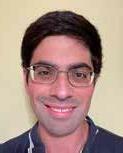
told CNN in the days leading up to the film’s release, “It feels incredible to be right back here at home. This is obviously my hometown team…but I never got to play for the Falcons. With this film, I got to do my thing.”
The film’s other star is indeed the Mercedes-Benz Stadium setting, which is unmistakably visible throughout the comedy. Although two other film productions have shot scenes at the stadium, one of which was for “The Tomorrow War,” both merely utilized the facility’s industrial-looking areas to their advantage without showcasing its identity. “Fantasy Football,” however, was different.
The recently-released movie, one that is tailor-made for the holiday season, showcases the Falcons’ home throughout its 98-minute runtime. But the authenticity came at a price as the venue’s leadership team had to carve out time for the production crew to have exclusive access (they were on-site for 11 days total at MSB with each session beginning in the wee hours of the morning and lasting 12 hours) while ensuring availability for the approximately 200 other events—everything from business conventions to NFL games— that Mercedes-Benz Stadium hosts.
But Natalee Anderson, Mercedes-Benz Stadium’s vice president of private events, and the rest of her diligent staff, were able to deftly navigate the conundrum while reaping the benefits of a football stadium that was designed to accommodate film productions with, for example, its suites being able to double as green rooms and loading dock serving as setup area for craft food services.
There will surely be other films shot on location at MSB, but it may be a while before another one makes it abundantly clear that the building is home to the Falcons.
“Fantasy Football” is directed by Anton Cropper and produced in partnership with The SpringHill Company’s Emmy Award-winning studio team founded by LeBron James and Maverick Carter and Genius Entertainment, spearheaded by Marsai Martin, Joshua Martin and Carol Martin. Although the film is currently only available on Paramount+ in the United States, Canada, United Kingdom, and Australia, next year it will broaden its reach to additional global territories where Paramount+ is available. ì










Give more flavor, more celebration, and more exceptional experiences. And when you give the Ultimate Dining Card this season, you’ll give 20% more of everything Atlanta diners crave.






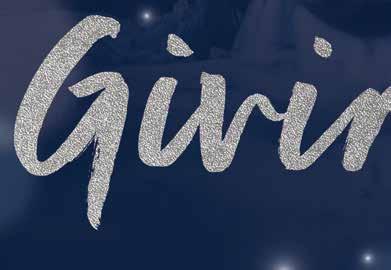


Four years ago, as a senior at Mountain Brook High School in Alabama, Lior Berman, while visiting the Auburn University campus on his basketball recruiting tour, was sitting with men’s basketball coach Bruce Pearl in his office. Berman knew all about the famed head coach’s trademark histrionics and penchant for nonstop screaming. And he wasn’t the least bit intimidated. If anything, Pearl’s fiery nature was a selling point for matriculating at Alabama’s second largest university.
“What appealed to me was really his [Pearl’s] coaching style and passion,” said Berman, who ultimately chose to enroll at Auburn the following summer as a preferred walk-on, an arrangement whereby he was guaranteed a roster spot, instead of accepting one of the many offers from Division II and III schools to play meaningful minutes right away as a freshman. “Passion’s really the thing that led me to go there. Watching him coach these games, he’s sweating through his suits and that’s something I wanted to be a part of. When I came here to Auburn before I committed here, I just kind of felt that passion, not only with Coach Pearl but through the whole staff. I just knew it was where I wanted to be.
“It just seemed like the right fit.”
On more than one level, as it would turn out.
On the court, Pearl certainly came as advertised
with his high blood pressure sideline demeanor evincing heartfelt passion for his team’s fortunes. But off the court, as Berman’s freshman season at Auburn, one in which he played sparingly as a reserve, unfolded amidst the onset of the pandemic, it became rather apparent to the slick-shooting, 6-foot-4 guard that he and his new coach shared more than just a lifelong obsession with basketball.

“Coach Pearl is very strong in his faith,” said Berman, now a senior for Auburn who aspires to play professionally in Israel next year. “Personally, he will have me over sometimes for a seder for Passover. It’s really cool to have a relationship outside of coaching that has to do with Judaism.”
Pearl, whose son Steven is an assistant on the staff, has long used his considerable platform as a legacy college hoops coach to celebrate and raise awareness of Judaic culture. He became the first president of the Jewish Coaches Association, an organization which hosts a breakfast for Jewish college basketball coaches at the tournament’s Final Four weekend each April, and, in 2009, coached the U.S. men’s team at the Maccabiah Games.
Since 2014, when he came over to Auburn, where Jewish undergrads make up less than one percent of the student body, Pearl has organized events through the school’s Hillel and invited Jewish students to his home for an annual Hanukkah party—in addition to hosting Berman for other holidays such as Passover and Rosh
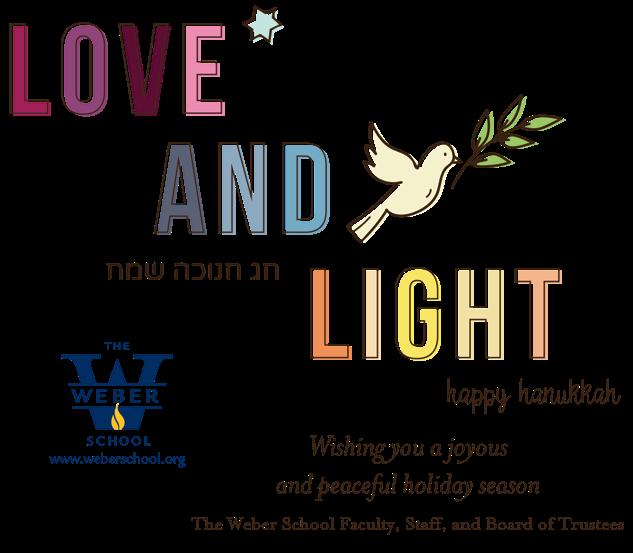
Hashanah.
More recently, this past summer, the longtime SEC hoops coach (he previously coached at the University of Tennessee) took his team to Israel for a 10-day “Birthright for College Basketball Trip” where his players, with the exception of Berman who has Israeli grandparents, visited the Holy Land for the first time. Over a week and a half, the Tigers, coming off an SEC title last spring and ranked in the AP Top 25 this fall, toured the Western Wall, Dead Sea, and Yad Vashem among other historical sites.
Berman, himself, is no stranger to Israel. He has been multiple times, not just to visit relatives but also to play in the World Maccabiah Games on two separate occasions. In 2017, he was on the gold medal-winning, under-16 U.S. team and this past July, days before his teammates would join him in Israel, he helped lead the U.S. men’s team to its fourth consecutive gold medal—a streak that began in 2009 when the Pearl-coached men’s squad beat Israel—with his 11-point, 4-rebound performance against France in the championship game.
A decade ago, at Mountain Brook High School, where he was twice selected to the state finals all-tournament team, all-region team, and all-area team, such stat lines were commonplace for Berman. But at Auburn, a perennial college basketball powerhouse whose stud player last winter was No.3 overall NBA draft pick Jabari Smith and is undefeated at this hour, playing time has been hard to come by. Still, he doesn’t regret forgoing potentially significant playing time for the sake of joining an elite collegiate program.
“Transitioning to a D-I SEC program, I knew it was going to be a challenge,” admitted Berman. “Freshman year I didn’t play very much, but something that Coach Pearl spoke of that I kind of took to heart was staying ready. You basically never know when you’re going to get the opportunity, but if you do get the opportunity, you better be ready.
“I’m playing against some of the best players in the country every single day. Being an underdog was great for me because I could continue to get better and be motivated to be able to eventually help the team on the court.” ì





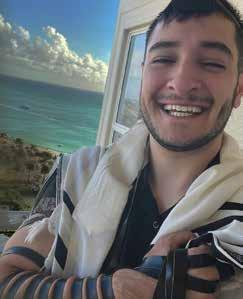
When Estelle Walovsky was turned down for a secretarial job at a magazine, she wondered if her Jewish-sounding name was a handicap. So she applied as Elaine Wales — and was hired.
“chosen people” (38 percent), and Jews have too much wealth (35 percent).
• 26 percent make assumptions about whether a candidate is Jewish based on appearance.
• 23 percent said they want fewer Jews in their industry.

• 17 percent said leadership has told them to not hire Jews.
 Schechter From Where I Sit
Schechter From Where I Sit
When John Minify realized that the magazine he published discriminated in hiring, he felt ashamed and ordered that job ads state clearly: "Religion is a matter of indifference to this office."
As he researched an expose about antisemitism, Phil Green came to understand the pain felt by "every man or woman . . . who'd been told the job was filled when it wasn't."

In post-World War II America newspaper help-wanted ads could still include "gentile" or "gentile-preferred." Jewish lawyers hung out their own shingles because doors at white-shoe firms were closed to them. Medical school restrictions caused aspiring Jewish doctors to change their career plans — or their names. According to a 1955 report, studies "consistently show a high proportion of orders from employers specifying that Jews are not wanted."
I did not want to write a column about antisemitism. But here I am.
Let's put aside the anti-Jewish rants by a rapper who changed his name, a former president's questionable choice of dinner partners, and the hate spiking anew on a social media platform owned by a multibillionaire whose business interests include automobiles and space travel. Anything I might say already has been said.
I considered other topics for this column, until I came across a report posted at ResumeBuilder.com, a website that helps job seekers craft appealing resumes. The headline read: "1 in 4 hiring managers say they are less likely to move forward with Jewish applicants."
That's right, one in four.
Below that headline were results from a survey conducted online in November with 1,131 hiring managers and recruiters, identified "via employment status demographic criteria and a screening question."

According to ResumeBuilder.com: • 26 percent said they are less likely to move forward with Jewish applicants. Among their reasons: Jews have too much power and control (38 percent), Jews claim to be the


• 33 percent said antisemitism is common in their workplace.

• 29 percent said antisemitism is acceptable in their company.



Title VII of the Civil Rights Act of 1964 states: "It shall be an unlawful employment practice for an employer to fail or refuse to hire or to discharge any individual, or otherwise to discriminate against any individual with respect to his compensation, terms, conditions, or privileges of employment, because of such individual's . . . religion," along with their race, color, religion, sex, or national origin.
More from the survey:
Though more than half (56 percent) said that some Jewish applicants state their religious identification, many make assumptions based on an applicant's educational background (35 percent), last name (33 percent), or past or current experiences with Jewish organizations (28 percent). Respondents also mentioned identifying an individual as Jewish by their “voice” or “mannerisms,” and that Jews “are very frugal.”

Eighteen percent believe that Jews are an inferior race and 18 percent believe that Jews killed Jesus. Nine percent have a less favorable attitude toward Jews now than five years ago, 31 percent think more favorably of Jews, and 60 percent said their attitude is unchanged.
ResumeBuilder.com advised: "The survey uses a convenience sampling method, and therefore, is not necessarily generalizable to the general population of U.S. hiring managers and recruiters."
But what if the results do reflect the "generalizable" attitudes?
Some of you may have recognized the names Wales, Minify, and Green as characters from "Gentleman's Agreement," the bestselling 1947 novel by Laura Z. Hobson, which was adapted that year into a movie of the same name, starring Gregory Peck.
"Gentleman's Agreement" was fiction, albeit grounded in reality. The survey of hiring managers is where antisemitic rubber meets the road, where bigotry and discrimination can have real-life consequences.
I did not want to write a column about antisemitism. But here I am. And here we are. ì
At Renaissance on Peachtree, we specialize in retirement living, because you deserve the very best. That’s why your beautiful apartment home is spacious and well-appointed – making it the ideal place to relax or to entertain.

Housekeeping, maintenance and delicious dining? They’re included for your comfort and convenience.
Add in the easy access to wonderful services, amenities and programs right outside your door, and you can live worry-free, confident in the community of friends you build among residents and team members.
It’s luxurious community living, done right.
Call 404-737-7411. Join us for a personal tour. Your ideal apartment is waiting for you!
The AJT welcomes your letters. If you would like your letter to be published, please write 200 words or less, include your name, phone number and email, and send it to editor@atljewishtimes.com.

I prepared my breakfast and placed it on the table. In front of me, the latest copy of the Atlanta Jewish Times Nov. 30, 2022, issue. The issue is titled “40 Under 40” but it is open on page 12 – “JSCREEN Saves Mother and Daughter” article. My wife, Karen Grinzaid, who’s been living, breathing, “driving” Emory’s JSCREEN for almost 10 years, now laid the article out for me to read. I knew that this would not be my regular breakfast reading, which usually consists of the latest news, interesting bits, and catch-ups on overnight emails.
We always share our achievements to each other: I bore my wife with electricity, data centers, and various other engineering “nonsense” and she enlightens me with her successes and worries trying to save children from being born with devastating genetic diseases and now JSCREEN’s newest endeavor trying to save women’s (and men’s) lives from the devastating cancers.
This time, trying to eat my breakfast and read Marcia Caller Jaffe’s article about this incredible life-saving story (one of a few which have been happening at the amazing JSCREEN) – I got very emotional. Tears welled-up in my eyes, unable to eat, choked-up with a flurry of visions. Visions of my wife, Karen, sitting late nights in our at-home, make-shift office, trying to do it all for this non-profit business, pouring her heart into trying to test as many Jewish people for these devastating conditions, trying to keep the flow of funding to sustain the company’s operations, running her small group of dedicated and, also amazing, employees spread out across a few states, spending 10-12 hour days covering most of the bases in JSCREEN’s game of life.
Articles like this one “feed two birds with one scone,” as the modified old saying goes. Jewish people of Atlanta and all other cities across the nation can see how being proactive can possibly save their lives; plus, it creates awareness with Jewish philanthropy, possibly creating a mental note to consider supporting such an amazing, lifesaving, family-saving organization.
JSCREEN does not rest on their laurels. Prenatal and cancer testing is constantly getting expanded to cover more Jewish (and non-Jewish) genetic conditions picked-up by the ever-expanding saliva-based test panels, trying to enter many (if not all) states in the country with this program’s visibility (people can already request a test kit from JScreen.org from any state in the United States), approaching potential donors and organizations with powerful new support and growth opportunities.
Thank you so much, Atlanta Jewish Times, for such wonderful mitzvah stories, a true testament how powerful can paper and ink be in improving, enlightening, and saving people’s lives…one page at a time.
Jimmy Grinzaid, AtlantaDisclamer to our readers:
This section of the newspaper is a forum for our community to share thoughts, concerns and opinions as open letters to the community or directly to the newspaper.
As a letter to the editor, we proof for spelling and grammatical errors only. We do not edit nor vet the information the letter contains. The individual signing the letter is accountable for what they share.
Letter to the editor, Paul Root Wolpe says he supports brokering dialogue and providing a safe place for exchanging ideas. But he then proceeds to tell us that the fundamental issue in the Israel-Palestinian conflict is providing justice for the Palestinians and “truly equal treatment” of Israel’s Arab citizens. He concludes by saying that Israel has a long way to go. As I read his words, I was reminded of Benjamin Netanyahu’s explanation of why all of Israel’s peace proposals had been rejected by Palestinian leaders. Netanyahu said that, in the minds of the Palestinian leaders, “give and take” means that Israel gives, and the Palestinians take.
Urging Israel to make more concessions is not going to solve the conflict. It is long past time for the Palestinian leaders to begin living up to their responsibilities as outlined in the Oslo Accords, which envisioned the completion of Final Status negotiations by the year 2000. The goal: the establishment of a Palestinian state co-existing with the world’s only Jewish state, with each having recognized and secure borders set by mutual agreement.
Not only have Palestinian leaders rejected several offers that should have led to the establishment of the state they claim to want, but the leaders have also taught the people living under their administration to hate Jews and have incited them to kill Israelis, honoring and rewarding those who answer the call. The leaders have condemned and punished those Palestinians who have dared to seek peace with Israel.
This behavior has also had an effect on Arabs living in Israel who feared that, if Israel’s enemies would ever succeed in winning a war against Israel (or forcing Israel to take in the “Palestine refugees”), Arabs who had taken citizenship or even permanent residency status in Israel would be treated as “collaborators,” subject to imprisonment or even death.
Toby F. Block, Atlanta
Bob Bahr quotes Prof. Wolpe asserting that Israel is lacking in equal treatment of Palestinians. A proposed peace center at Emory aims to address that and encourage peace. Elsewhere, in the same edition, Jan Jaben-Eilon quotes visiting Prof. Nachman Shai on Israel needing to separate itself from Palestinians in Gaza and the West Bank.
Both professors seem to place all onus on Israel while ignoring that the core Palestinian goal (supported by several regional powers) is to destroy Israel. If the Palestinians were content with a state in the West Bank, they could have had it in 1948, 1967, 2001, and 2008. Israel has already withdrawn from Gaza and got rockets in return. Palestinian leaders have rejected every peace process that would have given them a state in the West Bank, lest they have to accept a permanent Israel in some form. They have also made clear that such a state will be used for further hostilities. No number of Israeli concessions can bring peace when their foes will only accept Israel’s disappearance.
Israel remains the freest country in the Middle East. Moreover, in recent years, Israeli Arabs have made substantial economic progress within Israeli society. At the same time, their majority rejection of Israel has remained, and there have been periods of increased violence, not least during the last Gaza war when a dozen synagogues were torched. Economic and societal advancement is not going to change identity in the Middle East. That does not mean that Israel should not try to improve its society. Nor does it excuse racism from a few Israeli politicians, which, apart from being wrong, is always exploited by Israel’s enemies.
Support for Israel‘s mere existence faces evermore challenges in the US. Many university courses demonize Israel. The propaganda is steadily moving down the curriculum into high schools. People inherently hostile to Israel are being elected in greater numbers to Congress and more State Houses, including in Georgia. If Jews abroad want Israel to survive, they should not target Israel with double standards and a hostile microscope, while ignoring the real abuses in every one of its neighbors and the unwavering hostility of its foes.
Doron Lubinsky, Atlanta






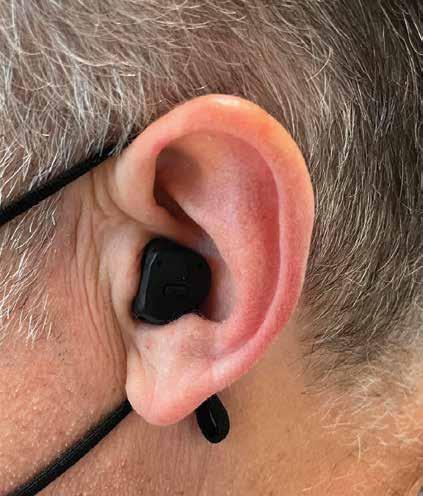
Happy Chanukah!
For me, it’s one of my fa vorite times of the year. Why you may ask? Because I get to spend time with my family, I slow down from normal duties and responsibilities and focus on what is really important in life. One has to wonder why we all don’t do that more often.
Michael A. Morris Publisher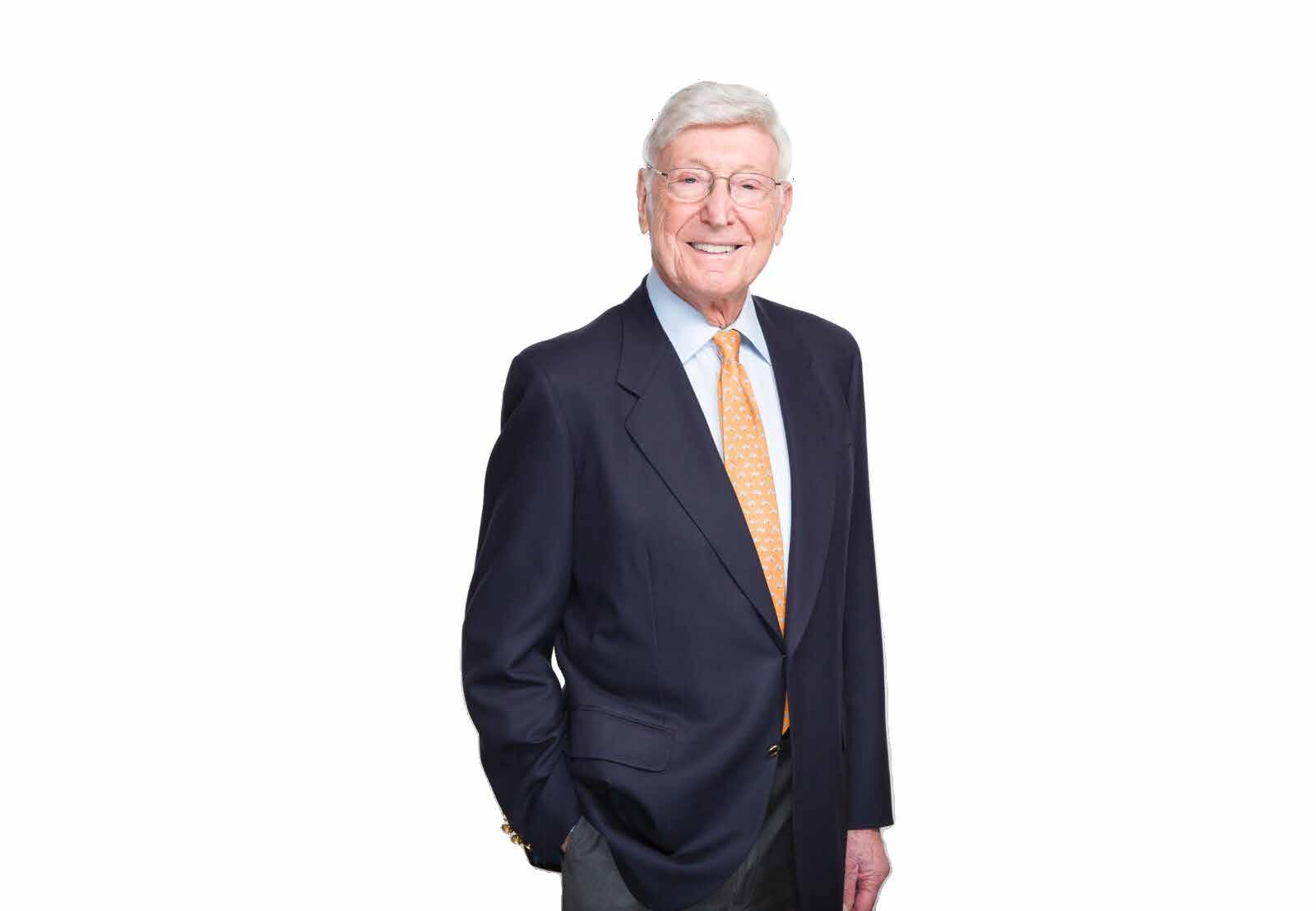

It is almost like Shabbat for the year. As the secular year comes to a close, I wind down, take stock of how the year went, focus on personal issues, and contemplate how next year will be new and different. Add in a few gifts, latkes and the kids, and the time is per fect. Like Shabbat, you cannot stay in this mode forever, but it is very ground ing, it fills my “neshama,” and it is a re

Atlanta is chocked full of interesting “movers and shakers” -- some bent-on creativity, empire building, activism and/or just plain having fun and living the good life. Lean in to hear some of the “off the cuff” remarks as to what makes Atlanta legend, Bernie Marcus, tick.
After being fired at the age of 49, Marcus teamed up with Arthur Blank and Ken Langone to build a better hardware store, The Home Depot. The company went public in 1981, and today it employs 500,000 associates at 2,300 stores.

The same energy that made Home Depot successful propelled Marcus to give away more than $2 billion. There is no single, winning formula for success, but Marcus freely shares that the skills needed to build a Fortune 500 company are the same ones that can help cure cancer, treat veterans with post-traumatic stress disorder, and transform autism, just to name a few of the recipients of his magnanimity.
Marcus is known as a philanthropist and public servant, making a wide and lasting impact in Atlanta, and way beyond. He channels his generosity through The Marcus Foundation, which focuses on Jewish causes, children, medical research, free enterprise, and the community.
Among The Marcus Foundation’s key grants are: Grady Health System’s Marcus Stroke & Neuroscience Center and The Marcus Trauma Center; The Piedmont Heart Institute; American Friends of Magen David Adom (related to building a new underground national blood center in Israel); The Shepherd Center; Thomas Jefferson University and Hospital; and The Israel Democracy Institute in Jerusalem, a non-partisan and non-political think tank dealing with the complex issues facing the Israeli democratic society.
Marcus created the Georgia Aquarium, the largest in the northern hemisphere; and he was among the first to sign The Giving Pledge, a commitment made by the world’s wealthiest people to commit more than half of their wealth to philanthropy and charitable causes during their lifetime or in their will.
You may think you know everything about Marcus; but, here, get a rare glimpse of his casual, yet introspective, remarks on a path heretofore not taken.
If they made a movie of my life, I would chose ------------ to play the lead.
Jimmy Stewart
If I could have another talent... I originally wanted to be a surgeon, now I think I could have been psychiatrist.
I was star struck meeting...
George Shultz, who played a major role in shaping policy as secretary of state for the Reagan administration. Actually, he held four cabinet positions under three presidents.
My guilty pleasure?
Pastrami sandwich on rye, deli mustard, full sour pickles.
My favorite aquarium display? The whale shark...my wife, Billi, loves the belugas.
Favorite cocktail? A single malt Scotch, Macallan 18, on the rocks.
What I’m reading?

Just finished “So Help Me God” by former Vice President Mike Pence.
If I could go back and change one thing about my life, it would be... Nothing.
The best advice my mother gave me?
If you work hard and focus, you can have anything you want.
My very first job was...
At 12, I worked in a grocery store cleaning bathrooms and doing odd jobs.
If I could tell a 21-year-old Bernie one thing... Stay 21!
What was your best DIY project? Most readers don’t know that I am the one who originally coined that phrase: “Do It Yourself!”
For our annual Chanukah issue, we asked members of our community to share why they think it is so important for our Jewish community to, "Shine Our Light Bold and Bright."
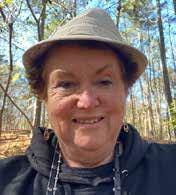
I believe the ingredients for a meaningful life include having goals, accepting where you are, and being grateful for the life you are living. As a Jewish woman, when it comes to celebrating the holidays on our calendar, one of the customs I love is to place my menorah near a window that can be seen from the street. The first time I ever saw that was the first Chanukah I was in Israel. Walking down the streets of Rehavia, in Jerusalem, as I walked down the street and looked up into the windows of people’s homes, I had a sense of joy knowing we are united and together, acknowledging a shared identity. I felt good knowing I was part of a group with a shared history and customs.
The diversity within the Jewish community is striking. The questions “who is a Jew,” and “what do Jewish people do” have different answers. As someone who has experienced the gamut from living a secular life with little Yiddishkeit, to being part of a thriving Orthodox community, I know all about the variations and nuances that exist among Jews.
We Jews are commanded to love all Jews, from those who keep all the mitzvot and laws and understand the history of our people to those who never had an opportunity to learn what being Jewish is all about.
Most Jews celebrate Chanukah by lighting menorahs for eight days. It’s a fun time for families, enhanced by the giving of gifts. The customs of eating latkes and donuts happens in Jewish homes no matter how Judaism is celebrated.
I believe all Jews should feel proud of our heritage during Chanukah. It is a time of acknowledging all we have in common and being grateful for where we are. Chanukah is a time to recognize we are one!
The Maccabees fought for their religious freedom and won a stunning victory —- victory of the few over the many, the weak over the strong, believing that a few dedicated people can change the world. We always tried to teach our kids to be persistent. If you believe in something, fight to achieve it. Chanukah prompts us to reflect on our people’s quest over thousands of years for freedom and human dignity and it reminds us of our values and what our responsibilities are to our friends, family, and fellow men. This is a perfect time for us to step back, especially in these contentious political times, and think about re-dedicating ourselves to higher aspirations.
As Jews, we have an obligation to be a light unto the world by stressing the teachings, or “light,” of the Torah and we have a duty to bring light to others.

Chuck Berk is local co-chair of the Republican Jewish Coalition with his wife, Bonnie.
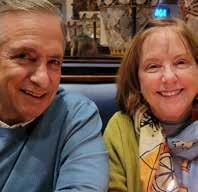
The daughter of Rabbi Chanina, Ben Dosa, once went to her father in tears. She had accidentally filled her vessels with vinegar instead of oil and, now that it was time to light the candles, it was too late to find anything else to kindle. Rabbi Chaninah looked at her and told her not to worry, “The one who causes the oil to burn will kindle the vinegar as well."
This story certainly reminds us of Chanukah, sharing the elements of oil, candles, and a miracle. Unlike the Macabees, however, Rabbi Chanina Ben Dosa didn’t have a single drop of oil with which to begin. A Chasidic commentary drives home the lesson: Rabbi Chanina knew that we take for granted that oil will light, but that the ability to transform oil to light reveals G-d’s presence even if burning oil does not get our attention like a miraculous event like vinegar bursting into flames or the more famous extra week of light that came from just one day’s worth.
This year, in particular, it may seem like there is more vinegar than olive oil around us. As much as we would like to put aside any sourness during the holiday time, ugly rumblings and jarring shouts of antisemitism are both impossible and unwise to ignore. We have long turned to the Maccabees to help us find faith that the light won’t go out. The story of Chanina Ben Dosa can teach us that we can find our light anywhere and, at the same time, we should not take for granted the light of the everyday. The light of community, loved ones, joy and the blessings of our Jewish heritage.
Rabbi Michael Bernstein is the spiritual leader of Gesher L’ Torah in Alpharetta. He was ordained at the Jewish Theological Seminary in 1999 and served congregations in Massachusetts and Philadelphia before coming to Atlanta with wife, Tracie, and their three children, Ayelet, Yaron, and Liana.
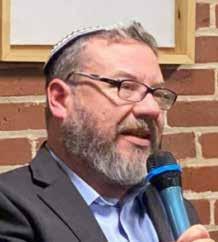
When I think of Chanukah, I am reminded of the song by Peter, Paul, and Mary: “Light one candle for the Maccabee children, with thanks that their light didn’t die…Don’t let the light go out! It’s lasted for so many years! Don’t let the light go out! Let it shine through our love and our tears.”
Studies show that antisemitism is on the rise. We see it in the news, and this can cast a dark shadow over us. Yet we can’t let fear win. We as a people have persevered.
I remember going to synagogue, after the Tree of Life shooting, at Etz Chaim, which means “Tree of Life,” and there were faith leaders from many communities to show their care and support. It was a full synagogue and I thought to myself, they did not win. We are here, showing up and I felt the magic and power of community.
The miracle of Chanukah is Judaism’s survival against all odds. I encourage you to get involved with Atlanta’s amazing Jewish organizations. There is something for everyone from social action, culture, Jewish learning, rituals, etc. By showing up and connecting with others, we show that the Jewish community is not going anywhere as it offers richness and meaning to our lives. Our Atlanta Jewish organizations are offering you the chance to light the flame if you will accept the candle.
Another darkness affecting the Jewish community is mental health exasperated by the COVID-19 pandemic. Unfortunately, there is still a stigma around mental health that people are often embarrassed or ashamed to ask for help. People also do not always know where to begin to get help or getting help is cost prohibitive. Recognize if you or a loved one is in a dark place and seek out resources. Mental struggles can make it feel as if there is endless darkness, yet there is a light at the end of the tunnel. Reach out to others and show you care. We all have the power to make a positive difference; an act of kindness can brighten someone’s day. Be the light shining a way through the darkness. As the menorah shines bright, I hope that all of you know the inner light that you bring into this world.
To learn more about Jewish organizations in Atlanta, visit the AJT 2022 Guide to Jewish Atlanta. To learn about Jewish mental health resources, go to thebluedovefoundation.org.
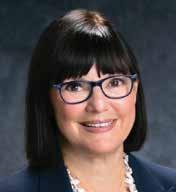
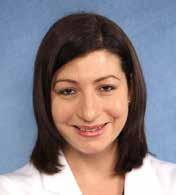
Jewish Family & Career Services recently convened a community conversation
Marc Codron shared their breakthrough innovative work on aging with leaders from the community. Their
seniors living with joy and dignity to age 100. They have established a public-private partnership
is to create communities
a data-driven best practices approach called Muni 100.

the
We brought together elected officials from the cities of Atlanta, Sandy Springs, and Dunwoody, as well as officials from the Atlanta Regional Commission and the Israeli Consulate. This gathering inspired leaders to engage in meaningful conversation about how the learnings and expertise shared by our Israeli guests could enrich the quality of life for seniors in our community. We, as Jews, guided by Jewish values, are called to use the gifts we have been given to improve the lives of those around us. As antisemitism rages, it is more important than ever that we courageously and publicly link arms and step forward as community leaders to share wisdom, empathy, and a profound commitment to positively impact the quality of life for all. This year, we adopted a new Strategic Plan with Jewish values as the guiding light. Compassion, (rachamim) acts of healing, repair the world, (tikkun olam), kindness, (g’milut chasadim) collaboration, (kehillah) and the uniqueness of every human, (adam yaheed) are values reflected in our mission, and, more importantly, in the actions we take to empower lives and strengthen our community.
Convening the conversation on aging is directly connected to these core values of JF&CS as is our work addressing mental health and well-being with a spotlight on children, teens and families, providing services for the intellectual and developmental disabilities community, operating the only free dental clinic in Georgia thanks to incredible volunteer staff and generous donors, and responding with compassion to emergencies such as supporting refugees from Ukraine. I feel an incredible sense of strong Jewish pride and gratitude for our Atlanta community that continues to shine bold and bright.
On Chanukah, we celebrate the victory of the Maccabees over the leader of the Syrian empire, Antiochus Epiphanes IV, and we commemorate the miracle of a flask of oil lasting eight days instead of the one day it was expected to last when the menorah was lit at the Temple rededication.
But did you know that there is another important tale of a brave woman named Yehudit who is associated with Chanukah and whose story was recounted in detail throughout the Middle Ages at this time of year?
Yehudit’s incredible journey began at a time of religious intolerance in a city called Bethulia in ancient Judea. Nebuchadnezzer sent one of his generals, Holofernes, to conquer Judea and the Jews who lived there. His troops camped outside Bethulia, blocking off water, food, and other supplies necessary for survival. Though the Jews fought back, their situation was becoming dire, and they were ready to surrender. Yehudit, however, had other plans.
Late at night, under the cover of darkness, Yehudit and her handmaid left Bethulia to make their way to the enemy encampment. They carried a basket filled with rolls and the most expensive cheeses and wine with them. Described as beautiful, charming, and graceful, Yehudit approached the guards, asking to speak with Holofernes. Granted entry, she introduced herself as a Jewish lady from the city of Bethulia who was concerned about her people’s survival. She told him she had confidential information for him on how to conquer the city and that she hoped he would show mercy to its inhabitants.
Invited into the general’s tent, Yehudit served him the cheese and strong wine she had brought with her. Shortly afterwards, Holofernes passed out drunk on the floor. Whispering a prayer to G-d, she took the general’s sword and killed him, taking off his head. Then, she and her handmaiden quietly left the encampment with his head wrapped in rags, concealed under her shawl.
Back to Bethulia the two headed. Once back, she admonished the Jewish commander to prepare his troops for a surprise attack at dawn. She was certain the army of Holofernes would be in a state of confusion and likely flee when they saw his headless body in his tent. Yehudit was correct, and her act of courage saved the Jewish people of Bethulia from oppression by their invaders.
At Chanukah this year, I will ask my daughter to retell the story of Yehudit, the woman she chose to speak about at her bat mitzvah, and recognize her heroism despite difficult, potentially deadly circumstances. Though I am left to wonder how and why her tale disappeared from the Chanukah stories at this time of year, I can only hope other families will share her story so her legacy will live on for generations to come. From strength to strength…Happy Chanukah!
Lately, it can feel as if we’re experiencing darker days. Antisemitism is on the rise again and has been directed towards our community simply because we are Jewish. Yet, the world’s oldest hatred is not the only thing which casts a shadow upon us; division amongst ourselves also threatens to dim the light.
When light reflects off objects, it enables us to know where we are. Light makes sense of shape and form. Therefore, light helps us to assess the threats or safety, of our environment. Light is crucial to our survival. No matter how small a flicker of light is, it is seen first and foremost before any darkness surrounding it.
The people of Israel were commissioned to be a light to the nations, for our own sake and for the sake of others. Let us resolve to be that light. Let us engage in random and senseless acts of kindness. Let us come together in unity. By attending a community event (that we don’t feel like going to), or hosting a Shabbat (when we are tired), or by extending friendship to someone who is alone (even if we don’t have time), we are drawn together and our light shines brighter.
May we all have a meaningful Festival of Lights!
Chanukah Sameach!
Cheryl Dorchinsky is the executive director of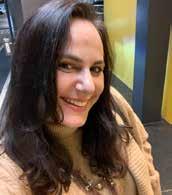
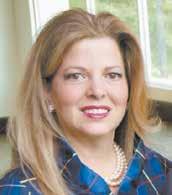


I have spent the better part of my last six years living in Georgia seeing what can happen when synagogues, schools, and Jewish community organizations work together for the betterment of ourselves and our city.
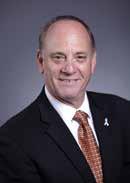
When a congregant is having a more extensive mental health challenge, I don’t tackle it alone: I connect with Jewish Family & Career Services, knowing I will get a friendly schmooze on the other side of the line.

Rabbis from across the denominational spectrum come together at the Atlanta Rabbinical Association to discuss wider issues affecting our greater community. My children play their sports at the Marcus Jewish Community Center of Atlanta, where they encounter children of all Jewish backgrounds. North of 285, several East Cobb/ Roswell synagogues come together and throw an amazing Chanukah party with the help of the Jewish Federation of Greater Atlanta.
For this article, we’re supposed to talk about why it’s important that the Jewish community shines. I could find countless other examples on top of the ones I’ve listed above.
But in reality–warmth, love, and community–are things that you need to experience rather than read about to fully appreciate.
There’s so much great Jewish community taking place in our city that will light up your life. You can read about it cover to cover in the Atlanta Jewish Times.
Only don’t take my word for it. This Chanukah, you’ll know why it’s important that our community shines when you go out and experience it for yourself.
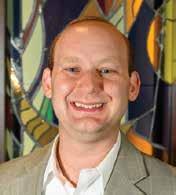
As we display our chanukiyot on our windowsills this year, and as the smell of latkes and sufganiyot fills our homes, we celebrate the strength and triumph of our community. The Maccabees achieved what seemed to be impossible in rising up against oppression and liberating their people and holy place of worship. And against all odds, as legend has it, the Maccabees witnessed a miracle when oil for a menorah, meant to last one night, lit the Temple for eight.
In my work at the Jewish Fertility Foundation, I am fortunate to witness such miracles for hopeful parents in our community every day. Against all odds, individuals and couples are growing their families through fertility treatments, surrogacy, adoption, and more. The journey to parenthood may be long and excruciating, but the stories I hear from clients remind me to never give up hope.
This Chanukah season, I am hopeful for births and pregnancies for all those who yearn to have children. I am hopeful that our organization and community will be able to grow and thrive and become more inclusive in the coming year. Personally, and professionally, I am going to keep reminding myself that what seems impossible may not be so impossible after all, especially with the support of our community and a little faith. I hope that the light burning in each of our windows will remind us of the strength we find when we stand together as Jewish people and never give up on hoping for a miracle. Chag urim sameach!
Elana Frank is the CEO and founder of the Jewish Fertility Foundation.

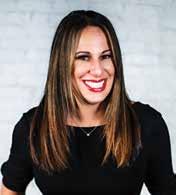
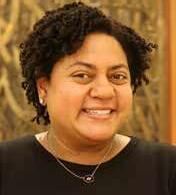
Where’s The Jewish Parking Lot?
Chanukah is a favorite holiday of children, especially the ones I know. I am the person who also loves Chanukah as much as the kids.
Recently, when Poppy’s mommy, Ali, and I were looking for something fun to do with her, I was reminded of the true meaning of Chanukah. As we parked the car, we pointed out the “live” reindeers parked with Santa’s sled in front of a popular children’s store. I explained how we all celebrate different holidays. This was a first for this adorable Jewish day school preschooler. She found these large-horned animals quite curious standing in the middle of a shopping center. As I continued about Christmas and Chanukah, I gave this teachable moment my best shot.
Without hesitation, Poppy inquisitively asked me, “Ro Ro....where’s the Jewish parking lot?”
Time stood still. I gave immediate thought to how we celebrate the holiday. And where do we go, especially during the miraculous season of Chanukah and other Jewish holidays, to find the Jewish parking lot? My daughter pointed out, the message was also about inclusion and equality. What’s a parent to do?
This experience reminded me to explore activities for Chanukah, books, and creative ideas. I’ll pull out the pretend wooden menorah and we’ll play “Chanukah” and sing Chanukah songs. I will display my treasured musical wind-up silver menorah from my parents, “Honey and Grandma Phyllis” of blessed memory, which plays Ma’oz Tzor – Rock of Ages. We will do our best to share the traditions of our family and importance of brightening each other’s lives, which is the best gift of all.
I will never forget Poppy’s message. How meaningful it is for us to imprint the holiday traditions in our families lives and hearts. To stay mindful and thankful for our miraculous blessings and to kindle our love of family and Chanukah traditions.
Robyn Spizman Gerson is an award-winning New York Times Bestselling author and media personality. www.robynspizman.com.
There is a story told in the Talmud that shortly after creation, Adam realized the days were becoming shorter and shorter. He did not realize that this was a natural phenomenon, and therefore said: “Woe is me; perhaps because I sinned the world is becoming dark around me and will ultimately return to the primordial state of chaos and disorder.” He thought to himself that this must be his ‘death sentence.’ However, Adam overcame his depression. He arose and spent eight days fasting and praying. Indeed, the days began to lengthen, and Adam created an annual celebration that lasted for eight days.
While we don’t usually connect Chanukah to Adam, this Talmudic story reminds us that we have the capacity to effect change…to do something. Adam, as the text points out, overcame his fear just as our heroic Maccabees did. Instead of giving in to despair and sadness, they increased the light in the world and provided us with a reason to celebrate! While our instinct might be to give up and complain about the circumstances around us, there is no benefit to that solution. As the proverb teaches, “It is better to light a candle than curse the darkness.”
During the festival of Chanukah, let us remember that others are warmed and inspired by our flame, especially during moments of physical and social darkness. May our light increase as we bring light to the world around us.
Happy Chanukah to everyone. May this festival bring happiness, blessing, and good health to you and your loved ones!
Rabbi Brian Glusman serves the Marcus Jewish Community Center of Atlanta and is rabbi of Shearith Israel Synagogue, Columbus, Ga..
This has been a year of increasing antisemitic attacks, and it is more important than ever for our community to stand up and be present. As it states in Isiah 49:6, “...and I shall submit you as a light unto the nations.” Our Jewish community should shine as an example of the spirit of the Maccabees. To paraphrase one of my favorite Chanukah songs, “Banu Choshech Legaresh” (To Drive Away the Darkness) ...

We came to drive away the darkness In our hands is light and fire Everyone’s a small light And all of us are a firm light!

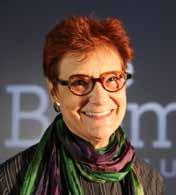
Chanukah is known as the Festival of Lights, and every year, I think of this holiday not just for the candles that illuminate our pretty menorahs but for the way the Jewish community shines a light for loved ones and even for ones we don’t know. We are a giving people who look out for our own but also for the greater good in our communities.
I see the evidence of that light shining throughout our 25th anniversary exhibition, “History with Chutzpah.” One of the exhibit’s six sections, “Benevolence and Community,” explores the Jewish concept of tikkun olam, defined as acts of kindness performed to repair our world. “History with Chutzpah” also shines a light on the love of family that is such a connecting tissue in our culture.
A great example of familial love is in the “Patriotism and Perseverance” section. An unusual artifact, nearly 125 years old, helps tell the story of Sam Greenblatt, who lied about his age (16) and, in 1898, enlisted with the 4th Tennessee Volunteer Infantry to fight in the Spanish-American War. No doubt concerned that her son would become homesick, Sam’s mother, Beile, stuffed his knapsack with homemade bagels before he shipped off to Cuba. One bagel, however, became buried in the bag and wasn’t discovered until his return. Sam eventually settled in Atlanta where he became a successful businessman. And his bagel? It has been handed down through six generations of his family.
On view in “History with Chutzpah,” it no longer looks very appetizing. But I think it illustrates the bold and bright light that connects Jews through the generations, that makes us care for loved ones, friends, even strangers. In a world increasingly beset with conflict, disinformation and threats, our light is more important than ever.
The days are short, and as such, we are quickly approaching the Jewish Festival of Lights known as Chanukah. I cannot help but think of the main mitzvah of Chanukah, to publicize the miracle, and its role this year. We are to light the Hanukiyah near our windows as close to dark as possible to assure the world will see us celebrating and commemorating the miracle that is Hanukkah.
But this year feels a bit different because some of us are feeling a bit more aware about being Jewish in public. With antisemitism growing and becoming more and more a real threat, it’s natural for more Jewish people to question what it means to outwardly demonstrate our commitments to Judaism.
The Hanukiyah is lit at the darkest time of the year, in part to demonstrate Jews do not do “dark…” but rather we bring “light” into the world. We seek to bring enlightened ideas and to lighten the loads on the afflicted in our midst. Chanukah is called “Chanukah” because it’s all about being dedicated to our Judaism and to the traditions of our people. It was on Chanukah when our ancestors rededicated the Temple after it had been desecrated.
So, what can we do this year? Antisemitism is not something we should ever allow to alter ourselves. When the world shows us ugliness and darkness, we must respond with beauty and light. When the world wants us to feel denigrated because of our faith and our people, we must lift ourselves up and hold our heads up with pride in our people.
In fact, the singular greatest responses to the bigots of the world are to rededicate ourselves to our Judaism. Imagine if we didn’t just merely light our menorot in our windows but chose to begin to light Shabbat candles as well. Imagine if we didn’t just choose to spin dreidels, but also chose to dedicate ourselves to Jewish learning as we move forward. Imagine if we didn’t just eat latkes, sufganiyot and burmuellos during Chanukah, but chose to keep kosher in some way to deepen our connectedness to G-d and our people. Imagine if this hatred could push us to love ourselves more than we did before.

If this Chanukah we could each begin to find ways to become more dedicated to the Jewish people and Judaism, then we can really find a reason to celebrate the light in the darkness of the world at this time of the year. Let’s all join together as we light and display our Hanukiyot this Chanukah and find ways to grow as Jews to show that no matter what they say or do, we’ll always be who we are and that’s the greatest light of all.
Rabbi Josh Hearshen is the rabbi at Congregation Or VeShalom.
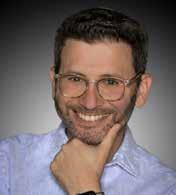
There are many ways to spell it, but only one way to say it.

Chanukah comes at the darkest time of the year. Without the moon in the sky, we rely on the lights of our candles. Each night, we bring in lighter than the previous night. The lights of the candles not only fill our windowsills, but they fill out hearts and our world. In a world where we are surrounded by darkness, we need to light our lights brighter and with more pride. On Chanukah, we are each a Shamash, a helper, helping light not only our own lights, but the lights of others.
A disciple once asked their rabbi: “Rabbi, what is a Jew’s task in this world?"
The rebbe answered: “The Jew is a lamp lighter. In olden days, some person in every town would go around igniting the gas streetlights with a flame on the end of a long pole. The lamps were always waiting to be lit! This is the sacred task of the Jew; our purpose is to ignite fire in the holy human spirit.”
The hasid asked: “What if the lamp is in a deserted wasteland, or at sea?"
The rebbe replied: “There, too, it must be lit.”
“Rebbe,” cried the hasid. “But here I see no lamps at all!”
“That is because you are not yet a lamp-lighter,” said the rabbi. “First, you must start with yourself, becoming refined in character; then, you will begin to see others as sources of light just waiting to be ignited.”
As we celebrate the holiday of Chanukah this year, let us each find a way to shine our own light bolder and brighter than we have in the past. It is our light that will drown out the darkness of the world and shine the way for growth, community building and living in a world of love.
Hanukkah is unique among Jewish holidays in that it must be observed in public view. Rosh Hashanah and Yom Kippur can take place behind closed doors. The Passover seder must all be eaten within the same home, even if we open the door for Elijah. Even on Sukkot, the sukkah itself can be out of sight. In contrast, the essential commandment of Chanukah is called Pirsuma D’nisa, publicizing the miracle. In order to fully observe the holiday, we must place our lights where they can be seen by passers-by.
For much of our Jewish history, we have not been able to choose whether our faith was public or private. Sometimes, we were forced to live in the ghetto or wear a badge. Other times, we sought security in camouflage, blending in and hiding our heritage, or we were forbidden from letting our light shine. The story of Chanukah is a story of Jews who chose to stand up and stand out.
In some ways, it has never been easier to be a proud Jew than it is in America today. We are welcome contributors in every level of leadership, creativity, business, and culture. When we light our lights, many of our neighbors see us as an inspiration and offer encouragement. However, foes of all stripes are also more emboldened than in recent memory, saying hateful things that were previously only whispered and threatening violence.
This year, when we proudly display our Chanukah lights in the window, we are sending a message to our neighbors, friend and foe alike, that we are not in hiding. We stand up and stand out. We are here, and we have a light to bring to the world. Let’s make sure we internalize that message as well.
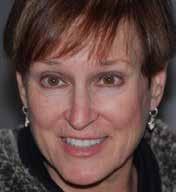
I’m on the fence about bright light shining. With the advent of social media and the vacuum made by today’s heroes, a.k.a. villains and questionable values, I’d like to lower the temperature of seeing the likes of Kayne West and Nick Fuentes, Nick Cannon and other antisemites who are getting “mega-enhanced” name recognition and building followers for their misdeeds.
Before Fuentes had his infamous dinner, most didn’t even know who he was. Now, he’s a household name, building followers, being quoted about “Jews being cookies in ovens.” Weigh that image in the mind of one who is already mentally unbalanced. Fuentes is probably shopping publishers to get a seven-figure deposit on a “tell us more” book.
“Cool” Dave Chappelle crossed the line and got away with it. “Fall in line to cross the line” makes it much easier for the next person to do the same. Did “Saturday Night Live” apologize?
Does anyone doubt that school shooters are a result of the copy cat ideas started by the Columbine and early press stories? Have you ever looked around at your friends, your employees, of all races and creeds, and hypothetically asked,” If “they” (whoever “they” are as in Nazi Germany), come after Jews, would he/she participate or stand up for me?”
With Atlanta being “the city too busy to hate,” I’d like to see more bright light come from our local government officials and non-Jewish business owners speaking out more loudly and frequently. Let their tweets dominate social media. Maybe then we won’t need the disingenuous apologies like, “If anyone was offended, I sorta don’t care. But someone told me to apologize.”
On Dec. 4, “CBS Sunday Morning” featured Rabbi Steve Leder, of the Wilshire Boulevard Temple in Los Angeles, who queried why other marginalized communities often get on the Jew hatred bandwagon. He ended with “All roads do not lead to Auschwitz, but we are on the wrong road heading in the wrong direction.”
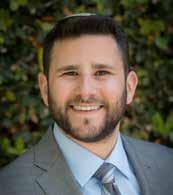
I’m still putting my menorah in the window as colorful, unusual and bright as the aurora borealis, but…

Marcia Caller Jaffe is a contributor for the Atlanta Jewish Times.

Each night, the candle brings wisdom to my mind and to my memories. In high school and in college days, I learned to focus on social justice, partnering with, and respecting, the various communities of color and ways of living.
Another light focuses on the state of Israel and the state of Jewish life around the world. Inperson experiences keep that history close.
Each day starts with a purpose, I am reminded, as we light the next candle. And that purpose begins as we wake up and focus on the purpose of that day.
Kabbalah and a modern vision help us to approach learning text through a new lens.
Lighting menorahs in public places and partnering with other communities as we learn brings our communities together with an awareness and mutual respect.
Last weekend’s Chanukah bazaars were fun ways to share the festivities with our community.
Classes bring learning together with a respect for each other.
In a lifetime, we create memories of Jewish life in our time. With thanks to the rabbis and teachers, with each night and each light.
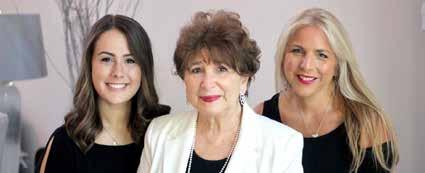
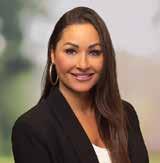
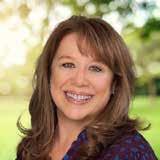

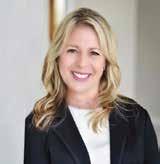
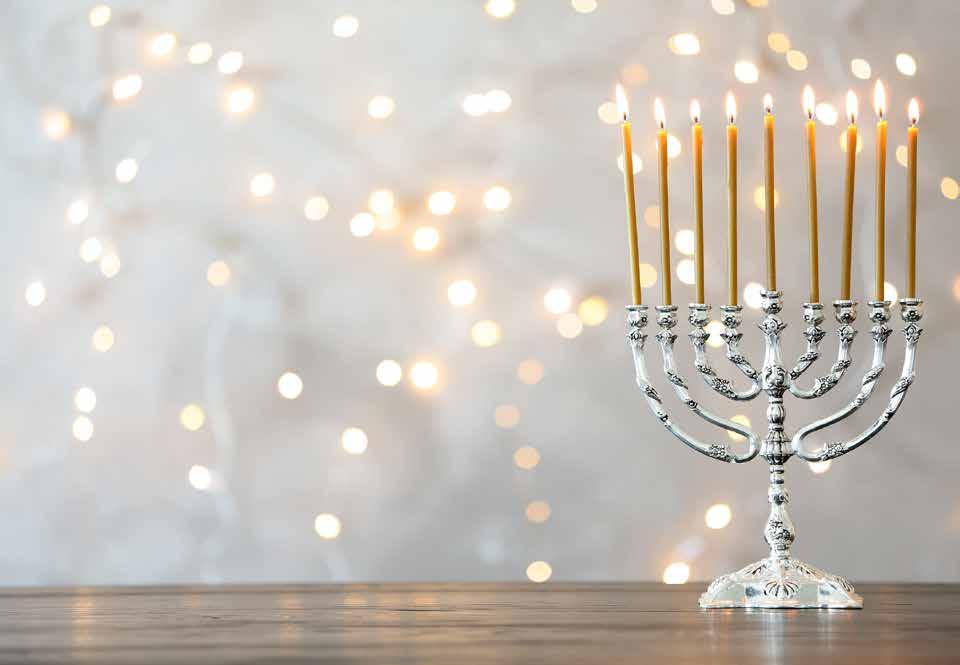
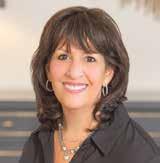
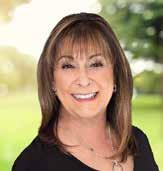
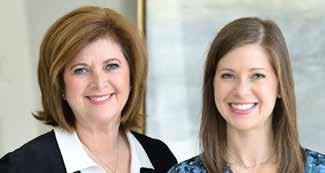
The eternal message of Chanukah is that light can dispel darkness. Chanukah means rededication, as the Second Temple was rededicated with the kindling of the menorah. Chanukah also shares a linguistic root with chinuch (education). The obvious link is that we must rededicate ourselves to Jewish education and our Jewish identities.
One lesson that seems especially relevant today is that the answer to antisemitism is not assimilation. Attempts to assimilate in hopes of avoiding being targeted as a Jew didn’t work during the Spanish Inquisition towards Maranos, nor to those with even only one Jewish grandparent in Nazi Germany. It has not worked at any time in history. The answer to antisemitism is to be more knowledgeable in, and proud of, our Judaism. We are blessed to live in the United States with constitutionally protected freedom of religion. Public menorah lightings reaffirm this right and the victory of light over darkness.

Another lesson is that we cannot and should not rely on others to protect us, physically or spiritually. Considered a major victory for religious freedom, the story of Chanukah was championed by a small group of freedom fighters, known as the Maccabees, who defeated the larger and more powerful wicked Greek Hellenists. Many righteous gentiles have helped the Jewish people over the years, and we should be grateful; however, to ultimately survive and thrive, we must protect ourselves.
Antisemitism and violence against Jews have skyrocketed over the past few years. FBI Director Christopher Wray acknowledged a few weeks ago that the Jewish community is under threat from all sides: “Not only have they long been a target of foreign terrorist organizations…but then, in addition to that, they’re of course the target of domestic violent extremists.”
More than 2,100 years ago, the Maccabees fought these same battles. As we prepare for this year’s Chanukah, we are reminded that we must remain ever vigilant and be proactive in having the will and means to protect ourselves in our homes, businesses, schools, clubs and houses of worship.
In this year of Hakhel, which occurs once every seven years, and especially in the recent post-COVID environment, we should redouble our efforts to gather together with old friends and new in the spirit of brotherhood and in promoting Jewish unity.
Chanukah sameach!
Mitchell Kaye is serving his second tour in the Georgia House of Representatives, representing East Cobb and parts of Sandy Springs, after finishing five terms almost 20 years ago. Together, with his wife, Amy, they have three children and three grandchildren.
I’m sure you’ve heard Chanukah referred to as a minor holiday—that the reason it’s become so popular is because of its proximity to Christmas...and that in our desire to match the glitter of Christmas with a holiday of our own, we’ve over-stated the importance and the observance of Chanukah. We exchange gifts like Christians do. We send Chanukah cards like Christians send Christmas cards. And we have lavish Chanukah parties—well, we used to pre-Covid—to match our neighbors’ Christmas parties. Chanukah is no big deal. We’ve made it a big deal just because of Christmas. WRONG! It’s a mistake to conclude that Chanukah is just a minor holiday. Maimonides wrote that lighting the Chanukah menorah is an “extremely beloved mitzvah...even if a person has nothing to eat…he should sell some of his clothing, if necessary,” to observe it.
Chanukah speaks to the Jewish soul in a way that no other holiday does. All the surveys of the American Jewish community tell us that lighting the Chanukah menorah is the one ritual more Jews do every year than any other. What is it about Chanukah that draws in every Jewish soul? It’s not the gifts nor the cards nor the parties—not even the latkes. It’s the light!
Jews don’t celebrate the miracle of the military victory of the Maccabees over the mightier Syrian Greeks that terrorized them. No, they celebrate the miracle of light they brought into G-d’s house by lighting the menorah right away and not waiting till sufficient pure oil could be found. We celebrate the miracle of that Godly light from so little oil lasting eight days.
Kabbalah teaches that the lighting of the Chanukah lights is a re-enactment of the first moment of creation, when G-d said, “Let there be light.” Even though we may not understand it in our heads, we get it in our kishkas (our guts) that it is this light, representing the light of G-d, that draws us all to Chanukah.
Let me share a story that demonstrates the strong pull of the Chanukah lights on the Jewish soul. It’s about a 12-year-old boy in Auschwitz whose bar mitzvah was supposed to be during Chanukah:
Since it was impossible to be called to the Torah for his bar mitzvah, he decided to commemorate it by fulfilling the mitzvah of the Chanukah lights instead. So, a few weeks before Chanukah, he began to save potato peels and crumbs and fashion them into makeshift candles. When Chanukah arrived, he lit his little candles with great pride, but also with great fear. As fate would have it, during one night of Chanukah, however, there was a surprise inspection. Before he knew it, a German officer ordered him to explain the candles. Defiantly, he announced that it was the Festival of Lights. The officer ordered him to put out the lights. Then, in a quiet voice, with a courage he didn’t know he had, looked up and said, “Sir, Jews don’t extinguish light, we bring light into the world.” And for some unfathomable reason, the officer —instead of shooting the boy right then and there—turned around and walked away.
How could this young boy defy the German military machine? And with what? Potato peels and crumbs? From where did he get that Maccabean courage? He probably couldn’t explain it, but I’m sure he felt deep within him that when one is with the light, when one is with G-d, one can weather any storm. As that bar mitzvah boy of Auschwitz said to the German officer, “Jews don’t extinguish light, we bring light into the world!”
Yes, there’s light hidden in everything. King Solomon taught (Proverbs 20:27): “Neyr Hashem nismat adam” (G-d’s candle, G-d’s light, is the soul of a person). Being G-d’s candles, helping to bring out the light hidden in the world is our job as Jews. A Parisian artist once complained to the renowned sculptor Jacques Lipchitz that he was unhappy with the quality of the light he was painting. He had even gone to Morocco in search of a better light, but to no avail. “An artist’s light,” Lipchitz told him, “comes not from without, but from within.”
And so, my friends, it is for us. When we gaze at the lights of the menorah this Chanukah, may it help draw out that unique light hidden within us all to remember, “Jews don’t extinguish light, we bring light into the world!”
Rabbi Mark Kunis is the rabbi of Congregation Shaarei Shamayim and author of “Dancing With God: How to Connect With God Every Time You Pray.”
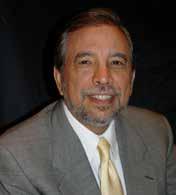
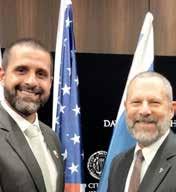
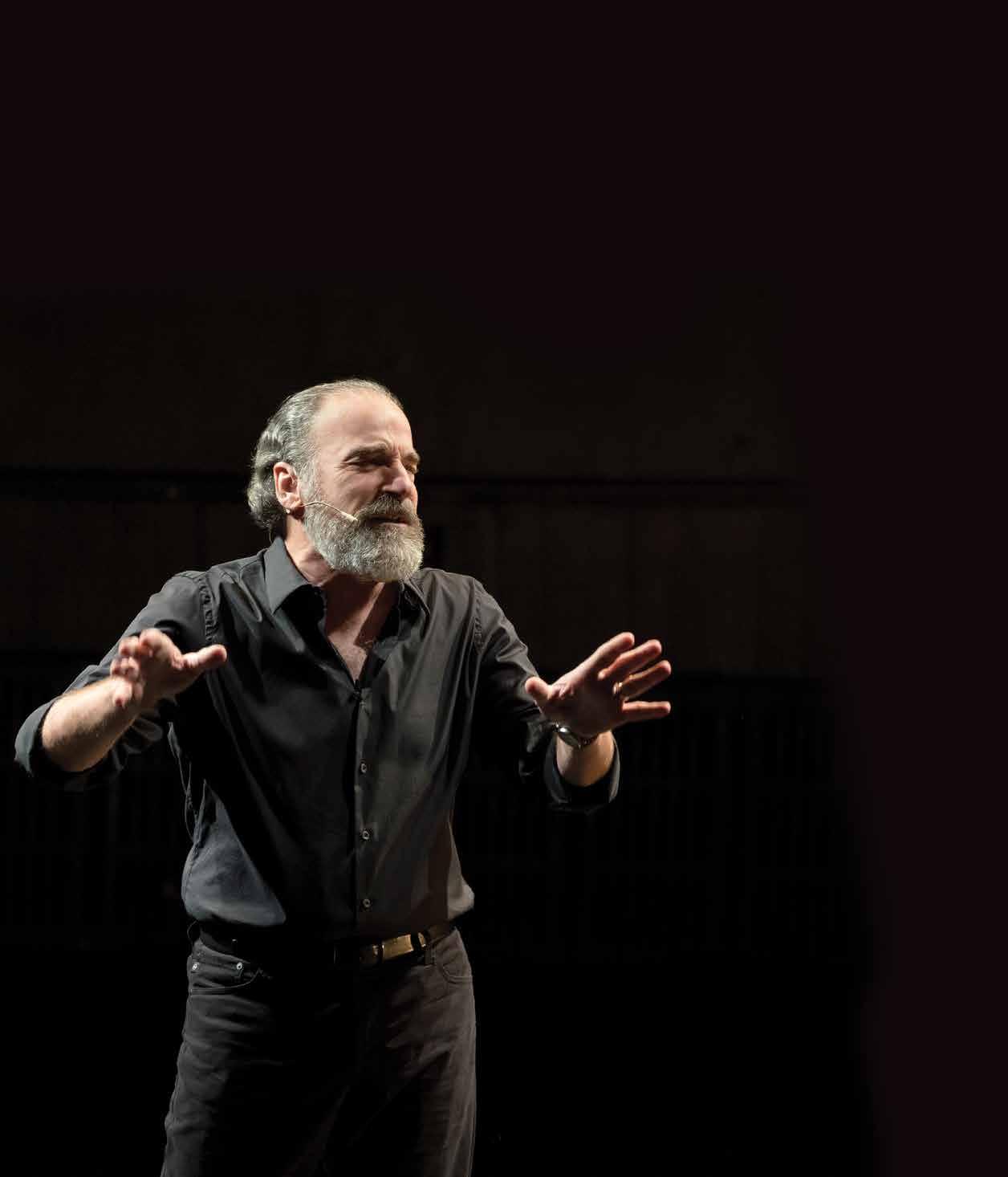
And There Was Light. This is the name of Jon Meacham’s new book on Abraham Lincoln. The title, of course, comes from the Biblical beginning of the world – Genesis 1:3; light was created on the first day of the universe. Lincoln’s life is an example of a life exemplifying light; in numerous ways, Lincoln created his own light to save the Union.
We light eight candles at Chanukah and show the world the concept of light as a triumph over darkness. The Hillel version of the lighting of the menorah is to add a candle each night to add to the light and to the brightness that shines in our homes and in the world. Each light should represent a Jewish value and by adding a light each night, we add to the values that guide us.
One value is working towards justice: “Justice, justice shalt you pursue.” Another Jewish value is “the saving of one life is saving the whole world.” Each Jew should designate each light with a Jewish value that you cherish; light the candle and talk about each light and the value that it represents. Talk about each value with your children, with your relatives, with your neighbors, with friends, or with strangers. Creating a list of Jewish values with each candle lighting will add its own greater light to the holiday. Celebrate the Jewish values that guide us and our people and all peoples.
Then imbue each day of the year with these values, having them guide our thoughts and actions. May everyone have a healthy, meaningful Chanukah!

2022…WOW! Just think of all the things we have seen or been through.
Look at it from this point of view, if you can see this, then you’re truly blessed. I have lost so MANY individuals that were near and dear over the last few years.

As a former athlete, I feel some of those pains today physically, and, even worse, I see so many of those former athletes that just say to me…keep on living!
So “What I’m thankful for is… YOU”, each of you!
I respect all people of this earth, ALL people. Understand that each and every person that has touched this life of mine, I love you in a special way and that’s from my HEART.
Happy Chanukah!
LaVon
For me, personally, Chanukah 2022 takes on a very special meaning as it is the first year that we celebrate the holiday as a family of four. My wife, Lauren, and daughter, Colby, and I are blessed to welcome into our family our son, Camden, who was born last February. Next week, we will introduce Camden to the rituals of Chanukah: lighting the menorah, eating latkes, opening gifts. It is our hope that as Camden gets older, he, too, will find Chanukah to be a very meaningful holiday that he looks forward to every December.
On another level, this year’s Chanukah promises to be particularly important because it will provide our immediate family with the opportunity to celebrate with our extended ones. As COVID has prevented us from getting together for larger gatherings over the past few years (even recently as this past Thanksgiving), we are very hopeful that we can celebrate Chanukah with relatives who we haven’t seen in a long time. For that, we would be most grateful.
On behalf of our family to you and yours, we wish everyone a most joyous Chanukah.
We have so much to be proud of, so much to celebrate, and so much to offer the world. We must shine our light bold and bright because our light helps create a more just, peaceful, diverse, and sacred world. It’s just that simple.
Rabbi Lapidus is the Director of Jewish and Hebrew Studies and School Rabbi at The Davis Academy.
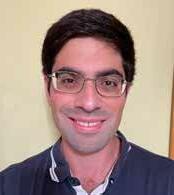

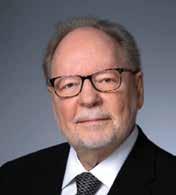
Happy Chanukah to our readership and my fellow writers! As dedicated writers, we illuminate the lives of our readers throughout the year by making them laugh at our stories, by making them think, ponder, analyze, and discover. May we always shine our light no matter how unstable the atmosphere is around us. Get ready for even better stories in the new year.
Tiffany Parks is an English instructor and a contributor to the Atlanta Jewish Times.

Out of the darkness comes the light. A bright future or an oncoming train? Or maybe a combination of the two? We need fire for light, to stay warm, cook food, and reach our goals. How often are we caught up in our morass (yes, one word and not two), and wonder why the world is passing us by? Has our fire gone out or have we forgotten how to stoke it? We all, at times, need a fire lit under our tuchuses to get off of them and make something happen with our lives. It is only then that the fire in our hearts will shine through and light up our world.
The holiday of Chanukah reminds us of those whose internal fire did not go out and fought to ensure that the literal fire would once again burn brightly and light the path for generations to come. While the intent of the holiday is often lost amongst the tumult of its concurrence with other festivities, let us not forget the courage of those who stood up against injustice for their rights to practice their customs, believe what they felt was true, express their thoughts and refuse to be canceled by the masses of the mainstream “culture” that sought to control them.
Today, we unfortunately find ourselves once again surrounded by a world that makes it difficult to truly express our thoughts and opinions for fear of the mainstream “culture” cancelling us for thinking differently, seeing the emperor’s clothes for what they are, and speaking it out loud.
Let us not give up hope. Rest assured that the spirit of the Maccabees lives in us all and we will find the courage to speak up, shine a light on hypocrisy, false outrage, and groupthink. Then, we can let our internal fire light the path for the world to become a more welcoming place to live, worship, study, play and bask in the joy of our families, friends, and latkes.
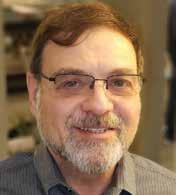
Chanukah may not be the most “important” Jewish holiday, but, in my opinion, it might be the most beautiful. There’s something so peaceful about candles flickering against the darkness, growing in intensity each night. And in a world that seems to move faster with each passing day, I relish a reason to spend time with my family eight nights in a row.
I’m always proud to be a Jew, and always proud to showcase our menorah in the window, but this year it will mean just a bit more to me than usual. The past couple months have been sobering for Jewish Americans; I truly never imagined I would see celebrities and athletes in the U.S. spewing such hatred and ignorance. Antisemitism may be on the rise, but I believe another force is growing just as quickly: Jewish pride.
This Chanukah, my family will “shine our light bold and bright.” We won’t let fear silence us or diminish our celebrations. We will light the candles, say the blessings, and revel in the warmth provided by the flames and by our community. Chanukah sameach.
Eric M. Robbins is the President and CEO of Jewish Federation of Greater Atlanta.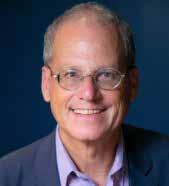

In my mom’s career, she worked as a secretary for three rabbis, two well-known clergy in Miami and one in Westchester County, N.Y., when we moved there. Working for rabbis was no doubt challenging in many ways, but I’m sure she also found the work rewarding. I’ve always joked with her that we both ended up as Jewish community professionals.
Personally, I’ve loved my years of working and living in the Atlanta Jewish community. It is a beautifully diverse community, religiously and demographically, and we’re supported by deeply committed, and often innovative, institutions and resources. We are at our best communally when we come together for joyous occasions and work together to solve problems.
On this holiday of Chanukah, the festival of lights and hope, I wish all Jewish Atlantans renewed inspiration to live their lives Jewishly, whatever that means for each person, and for our organizations to continue to be energized to create meaningful connections through their missions.
Chag sameach, may your Chanukah lights burn brightly!
Fran Putney has been a (Jewish) journalist in Atlanta for more than 20 years.

My family, friends, and I wait eagerly each year to celebrate Chanukah. In our journey through life, the meaning of Chanukah expands with the passing of our days. For the little ones, it means toys and treats. As we grow older, its meaning grows deeper.
As I anticipate holding the shamash to light the first candle, I am reminded of the wonder that Chanukah brought to me as a child.
With the second candle, I think about my parents, the values they imparted to me, the support they gave, and the sacrifices they made to afford me the opportunities I have enjoyed.
With the third candle, I contemplate the saying, l’dor v’dor, as I experience the joy that Chanukah brings to my own children and to me, and the transmission of the bond of Jewish values, rituals, traditions, and history from generation to generation.
With the fourth candle, I consider how blessed my family, friends, and I are to live in the vibrant Jewish community that is Atlanta and feel grateful for the commitment and generosity of those who have helped make it so.
With the fifth candle, I focus on the midpoint of my personal journey from youth to old age and wonder how I may manifest my wide range of blessings to support a better life for one and all.
With the sixth candle, I give thanks to my forefathers and foremothers who came to this country and unfolded through their efforts the unparalleled opportunities I have enjoyed.
With the seventh candle, I ask G-d to bless the United States, its leaders, and our solid democratic institutions that promise life, liberty, and happiness for all.
And with the eighth candle, I thank G-d for the miracle of Israel that our ancestors longed for, and I pray for lasting and eternal peace through the four corners of the Earth.
Ray Alyssa Rothman is a commercial real estate veteran who also helps raise equity for investments. Her side business is Kibbitz & Konnect, a premier in-person social network for Atlanta’s Jewish singles community (www.kibbitzkonnect.org).

I always understood that the story of Chanukah was the Miracle of Light and the symbolic beauty was the tiny amount of oil found after the destruction of the Temple, just enough to light the menorah for eight days. I believe that this wonderful story is handed down through generations of Jews, to teach our values to the next generation of our young Jewish children.
As I was growing up, the tradition was to give Chanukah gelt (money), chocolate coins and dreidels. My Yiddish bobba (grandmother) made us dreidels out of wooden cotton reels and cooked latkes, served them with cinnamon, sugar, apple sauce and whipped sour cream. For me, raised in South Africa and with my bobba, Chanukah WAS the festival of miracles. I remember the wonderful smell of hot cooking latkes in her tiny house in Johannesburg and how she showed us, to always give Tzedakah, especially during the Jewish holidays. She told us horror stories about her upbringing in Birz, Lithuania, and how they ran away from the pogroms and hid, but always celebrated shabbat and all the holidays.
Today, I am the bobba or yaya to my 10 grandchildren. I see how technology and trends and COVID has impacted them, and how different it is to be growing up in today’s world. They are influenced by their environment. They are glued to their devices, and so many are isolated, even bullied online. Mental health is a thing and as parents and grandparents, we must be supportive of children transitioning and identifying differently. The world is different now, so we are their shamash to hold their hands and light the way forward. If we do this, we will ensure a miracle: that our children, and their children, will light the world.
Gayle Rubenstein is a wife, mom, grandmother of 10 + 2 + 1 dog, businesswoman and friend.
 Rabbi Neil Sandler
Rabbi Neil Sandler

Susan and I recently went to a performance of Kurios, the latest traveling Cirque du Soleil show in Atlanta. What a delight, one that we have missed during its absence in recent years. Most of the performers were entertaining and caused me to shake my head in disbelief at what they were able to do. But the times I was most struck occurred amidst darkness that quickly dissipated. The music began, the artist came onto the stage (at least I think the artist did so, I couldn’t see anything) and, finally, the spotlight came up to illuminate the performer and members of the audience as it followed the performer around the space. The light pierced the darkness. It illuminated that which otherwise would not have been seen.
That is precisely what the chanukiah that we light each evening of Chanukah does. Of course, the menorah has significant symbolic meaning. But functionally, it serves to pierce the darkness, to dispel it with light.
At times, and in some places, the world can be quite dark and foreboding. As we light the chanukiah each evening let us be reminded of our responsibilities as Jews and as human beings to seek to bring light to places that are now dark. Volunteer opportunities in our community that will enable you to bring light to dark places abound. That is not just a theoretical statement. Since I retired, I have spent a good deal of time considering different volunteer activities and settled on a couple of things. If you have time to volunteer, especially in places and for those people who may feel life is rather “dark,” as you engage in this sacred activity, I pray you will recognize that you are a blessing as you “shine a light bold and bright.”
Susan joins me in wishing you and your loved ones Chag Urim V’sameach – May this holiday of lights bring happiness to you and to others.


What does it mean to shine our light in America? It means to strengthen one another in our Jewish identities and illuminate the rights and freedoms this democracy promises us.
In the times of the Chanukah story, under the rule of Greek-Syrian oppressors, ancient Jews changed their names, hid bris milah ceremonies and many other integral Jewish practices — or were forced to abandon them entirely. It took a military rebellion in order to be openly Jewish again. We faced a similar threat in medieval Spain and countless other diasporic homes: Hide, abandon our Jewishness, or be killed. Many continued to preserve their Jewish identity in some way in the darkest and most secret corners of their homes.
Increasingly, Jews are turning toward markers of Judaism and grasping them proudly. When visible Jews are beaten in broad daylight in the streets of New York and New Jersey, more people are donning kippas and chai necklaces. Shabbat dinner is cool again, even on a Thursday. This time, being Jewish is our rebellion — uniting with each other and with our storied heritage. What a meaningful way to continue the legacy of those who came before us and truly shine their light and ours.
At night in New York, the operators of the Statue of Liberty flip on her 16 floodlights, and her torch, a symbol of enlightenment, illuminates the dark. What sort of enlightenment does Lady Liberty’s torch portend? None, unless we make it so. Let us lift our lamps, our menorahs, next to hers, and show them who we are.
Maayan Schoen graduated from Torah Day School and Atlanta Jewish Academy and studied in the Migdal Oz Beit Midrash for Women in Israel. She is a senior at Yale University.
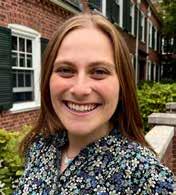
This prompt conjures images of Jews putting multiple menorahs in the windows to combat the darkness of rising antisemitism. With more stores carrying Chanukahthemed merchandise, some will boldly decorate their homes and post on social media the message that we’re here and unafraid.
But there are those who are fearful, keeping menorahs out of their windows, diminishing traditions, and even allowing their children to participate in mainstream Christmas celebrations to “fit in and not call attention” to themselves.

The fear is real. According to the Anti-Defamation League, which tracks antisemitic behavior nationwide, “there were 2,717 incidents in 2021, a 34 percent rise from the year before. Jews are less than 2 percent of the U.S. population, but 60 percent of the faith-oriented hate crimes target Jewish communities across the country.”
Fear, loss of hope, and feelings of powerlessness can lead to depression, the decrease in our Jewish population, and the snuffing out of the internal flame. Action, conversely, can re-ignite that flame and be used to light it in others, Jews, and non-Jews alike.
Jonathan Greenblatt, ADL CEO, states, “The demonization of Jews, of Israel, of Zionism is not a Jewish problem. It’s an American problem.” He believes we all need to call out antisemitism when we see it, and take action against the big platforms, such as Amazon, for profiting from it.
When you type in “Hebrew,” on the Amazon search bar, antisemitic products such as “Hebrews to Negroes: Wake Up Black America” appear at the top, as well as “vicious, hateful propaganda” promoting “antisemitism and Holocaust-denying,” according to Greenblatt.
Let’s continue to celebrate our traditions and become bold enough to write letters and unite with people who seek greater peace and unity to educate and illuminate our world.
Dr. Terry Segal is a licensed psychotherapist, Ph.D. in Energy Medicine, author, and mixed-media artist.
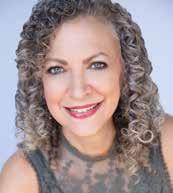
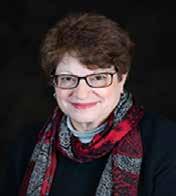
This year, as Chanukah approaches, I am thinking of Ukraine. I am especially reminded of the power of Chanukah to inspire hope where freedom is under attack or in danger. It is a shining (pun intended) example of spiritual resistance; just as Jews in ancient times lit candles to remind them of the heroism of the Maccabees under the unsuspecting noses of their Roman occupiers, so our lighting candles in our own time can inspire us to support the people of Ukraine, and elsewhere, who are oppressed.
We, whose history includes persecution and exclusion, are challenged once again to stand up for ourselves, but not only for ourselves. May the lights of Chanukah bring us joy, hope, and courage. Chag Ha-urim sameach!
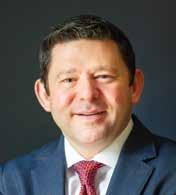
Over the years, I have always found the lights of the Chanukah menorah mesmerizing. On many occasions, I have caught myself just staring into them as they swayed from side to side, and the sounds of the blessings filled the air. Surrounded by family and friends, celebrating the miracle of Chanukah always gave me hope about the future. No matter how big the challenges of the world, our country, our community, or my own happen to be, the light provided me moments of peace and tranquility.
Soon after, the sacred and powerful moment releases its grip on me and my consciousness of the world around me returns, including my family’s excitement to bite into the delicious latkes sitting on the dinner table. But the connection to the Jewish story remains, inspiring me to remember that there has always been, in every generation, challenges that we would have to confront. As the words of Zechariah, chapter 4, teach us, “Not by might and not by power, but by spirit alone, shall we all live in peace.”
In Talmud Shabbat 21b, we are taught that, “It is a mitzvah to place the Chanukah lamp at the entrance to one’s house on the outside, so that all can see it. If one lived upstairs, they place it at the window adjacent to the public domain. And, in a time of danger, one may place it on the table and that is sufficient to fulfill their obligation.”
One of the mitzvot of Chanukah is to place the Chanukah menorah in the window for all to see. Why? It is to let the world know, and perhaps even more so for us in the Jewish community to know, that the Jewish spirit is strong and that no matter what happens, including this new wave of antisemitism, that we will survive. The way to combat antisemitism is to take pride in our story and know that we are proud inheritors of a tradition that has brought light, and continues to do so, into the darkest places of our world.
Chag Chanukah Sameach! Happy Chanukah and find some time this season, and in the new secular year, to reconnect with your Jewish roots. You might just rekindle a spark within that changes your world for the better.
This year, the themes of the Chanukah story seem especially timely for the Jewish community. The main message that I always emphasized was the fight for religious freedom initiated by the Maccabees against the tyrannical edicts of King Antiochus. His decrees included altering the way that our ancestors prayed and observed temple-based rituals. Without an armed revolt, Judaism might not have survived. In many ways, the current prevalence of antisemitism seems to be as serious a challenge to our faith.
While I am not advocating any rebellions, I am in favor of a much more focused and aggressive response to antisemitism. As the founder of an organization solely devoted to reducing this prejudice, I have some recommendations. First, we need to be stronger advocates for our faith. Most of our neighbors don’t have any appreciation for how we pray and what values we espouse. There is a real thirst among our nonJewish neighbors to learn more about our faith. There is a great deal of ignorance about Judaism that, if left unaddressed, can easily become prejudice and hate.

Secondly, I believe that the time has come to say to the rest of the world: Enough. I think that 2,000 years of having the same discussions about Jews, Jesus, Judas, and the traditional prejudices against Jews and Judaism must end. I believe that future conversations should be about points of connections between the faiths. I emphasize to my Christian friends the many historical linkages that Jews and Christians have. The main one, of course, is the Jewishness of Jesus. Him, his parents, his family, and his followers were believing, practicing, learned Jews. I conclude this point by suggesting that Jews and Christians are spiritual siblings linked together by powerful Biblical and religious histories. People begin to realize that it’s harder to be prejudiced against a relative.
There is a custom to place one’s Chanukah menorah in one’s window or in a weatherproof spot outside of one’s home, either one which can be seen from the street. This is a public declaration that Jewish people reside within.
It’s easy to believe that, amidst the growing antisemitism all around us, Jews might be better off keeping a low profile by not proclaiming their Judaism quite so openly. I disagree. The public display of Jewish identity, that we connect with our heritage, that we are all one people, regardless of our differences or denomination, is to be celebrated, and the Chanukah menorah shining in one’s window is a non-confrontational way to exhibit Jewish connection and pride.
What more powerful message can there be than “inside this home dwells a proud Jewish family?” Yes, there is the mezuzah on your doorpost, but is it visible to passersby? The Chanukah lights are! We witness powerful examples of gay pride and Black pride. Let’s show our Jewish pride.
Chana Shapiro is an Atlanta educator, author, and illustrator.
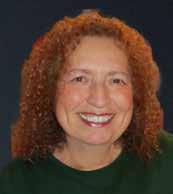
In addition to speaking about these religious bonds, I recommend that we open our synagogues and temples to our Christian friends. We need more community outreach and engagement with our neighbors. They need real-life experiences and conversations about Jews and Judaism. I have had the experience of studying the prophecies of Isaiah with Christian groups and have seen their amazement when they hear our interpretations of the texts. I have led model seders where Christians begin to internalize the powerful symbolism of the matzah and their communion ritual. One of the most delightful memories was when I was able to show a professor friend a Torah scroll that happened to be opened to the book of Deuteronomy, Chapter 6, from which the Shema and V’ah’havta comes. He never knew that much of early Christianity is taken from the Torah. He was literally awestruck when I showed him these prayers. He said to me, “I’ve attended churches all my life and no one had every taught about the Torah and early Christianity. Thank you for showing me!”
The miracle of Chanukah is that we are still here after so many millennia. We offer our Maccabee ancestors much thanks for putting their lives on the line for us almost 2,200 years ago. Now, it’s our turn to be strong, be knowledgeable and be “lovingly assertive” in our conversations with our neighbors. Let us teach them about the richness of Judaism, show them what goes on in a synagogue, educate them about all our faith connections, take our conversations in a new direction and finally say: Enough.
Albert I. Slomovitz is the Founder of the Jewish Christian Discovery Center.
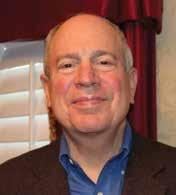
Light can be bold and bright. It can illuminate or do harm. Some sun is okay, too much causes pain. Same with words. With antisemitic comments flowing all too frequently in the recent past, without ready data to prove it, our assumption is that antisemitic acts, here and elsewhere, are correspondingly increasing with an uptick in harsh words against Jews. Words can burn; Hitler proved that as he engulfed an entire nation.
On the other hand, words from informed sources can be highly informative. Words can enlighten and undermine polemics.
At the Center for Israel Education, we shine our light on the history of Zionism and Israel, on content and context. We educate about Israel’s centrality in Jewish identity.
We believe that when one takes a minimal amount of time to educate oneself, enlightenment ensues. In the process, prejudices dissolve, intellectual muscle is built and shaped.
With April-May 2023 approaching as we celebrate Israel’s 75th year of existence, we continue to provide community programs in-person and online. More than 100 Atlanta-area Jewish teachers and, from them, more than 100,000 of Atlanta Jewish students have learned with us. Virtually every Jewish organization, congregation, and day school in the city has asked for more, and over 5 million users world-wide have visited our website. At CIE, content is king, not hurtful thoughts or polemical phrases. We are not passive about our objective to educate about Israel. We aggressively focus on Israel enrichment. We invite you to journey with us as we shed light on Israel’s origins and accomplishments; both will help to inform our collective future.
A box of Chanukah candles usually is filled with 45 identically made candles. Yet, when lit together, from two on the first night to nine on the last, we see that each candle burns uniquely. No two candles go out at the same time, or shine the same circle of light, or show the same flame. Some struggle to stay lit, and others seem to shine brighter than all the rest. This is our Atlanta Jewish community. We are all human beings, yet we shine our unique lights. We are all part of this Jewish community, but no one has the exact same story or connection as another. In this Chanukah season, we know that some are shining brightly with many blessings and resources, while others are struggling and need help. And, in this Chanukah season, we know that we are all under the shadow of antisemitism that is becoming increasingly visible and accepted. Let each of us strive to shine our lights as strongly as possible—to help others and to illumine our circles against the shadows of antisemitism. There is no more important time for our community to join our diverse and holy lights together.
The Temple is a Reform Jewish congregation in midtown Atlanta. The clergy are Rabbi Peter Berg, Rabbi Loren Filson Lapidus, Rabbi Lydia Medwin, Cantor Tracey Scher, Rabbi Steven Rau.
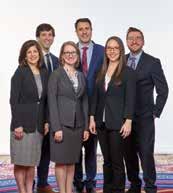
On Shabbat Chanukah in 1993, I celebrated my bat mitzvah and gave a speech about my haftorah, centered around the verse, “not by might, not by power, but by spirit.” At the time, I discussed the fact that I had led a group of concerned citizens in my community to speak out against a racist ballroom dancing school that had operated in our city for generations. Though we were a small group taking on a longstanding business, known and cherished by many, we were successful in forcing them to change their discriminatory policies and be more inclusive. They had money, power, and influence, but we had strong values of justice propelling us forward.
This experience and the lessons I learned as a 12-yearold have carried me forward into a career as a professional activist and changemaker. In my role as CEO of Jewish Women’s Fund of Atlanta, a small but mighty organization taking on systemic issues of gender inequity and inequality, I have seen many parallels to my earliest days as a community organizer. Change cannot happen overnight, but, as we continue chipping away and disrupting systems, I know we will eventually look back and realize how far we have come. One step at a time, eyes on the prize: justice and equality.
This is the message of Chanukah, how a small group of committed people can make a difference, even when facing a giant army or seemingly immovable obstacle. I was born three weeks late, so my birthday was never even supposed to be on Chanukah. And yet, it’s hard to imagine a more fitting haftorah portion for me.
Rachel Wasserman is CEO of Jewish Women’s Fund of Atlanta.
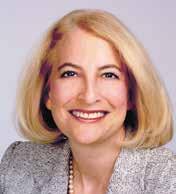
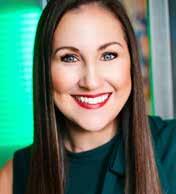
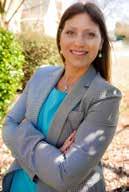

History books will tell you that Chanukah is the time-honored commemoration of the victory of the Maccabees over King Antiochus and his Greek army. It’s the story of a small band of men, led by Judah Maccabee, who defeated one of the mightiest armies on earth in a battle that represents freedom and independence for the Jewish people.
Beginning each year on the 25th day of the month of Kislev, Jews around the world dedicate eight days to celebrate the miracle of finding a single supply of oil which miraculously lasted and lit the menorah for eight joyful days. Kislev is also known as “the month of dreams” and as a time of hope and positivity.
Chanukah is ultimately a story of bravery and courage (gevura). It’s a story of standing up for what’s right and just; of standing strong in the face of threats, challenges, and difficulties. Every year, Chanukah is a reminder that, despite the dilemmas and hardships we encounter, we can all bring light into the world.
Leaving the history books behind, in modern-day homes, the Chanukah of today is a celebration of pure joy: swirling with latkes, jelly doughnuts (sufganiyot), chocolate gelt and an abundance of presents and good cheer. Our children play games and spin the dreidel, whose letters remind us “Nes Gadol Haya Sham,” or, “A great miracle happened there.” Speak with your children about the menorah miracle and create new traditions for your family to mark this special holiday.
May this Chanukah usher in a year of peace and tranquility where no one stands against us, and anti-Semitism is forever erased. May each of us be a bright beacon of light, filling the world with rays of hope, harmony, and tranquility. Happy Chanukah.
Werbin is the president of SRI Travel, a journalist and the publisher and co-founder of Travelgirl Magazine.
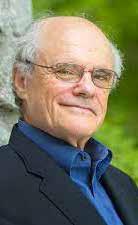

There couldn’t be a better time for our Jewish community to “shine our light bold and bright!” Please don’t be afraid to show the world that you are Jewish and proud this year. Shine your chanukiah in your window and share pictures of your candles burning brightly. It is more important than ever before to show the world that the Jewish people are full of love and light. Wishing everyone a very happy Chanukah!

Melissa is the founder and director of Audiology at Peachtree Hearing.
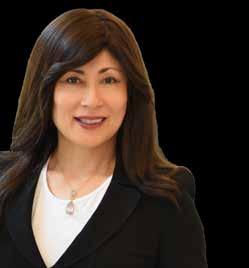


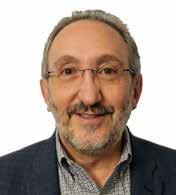
Chanukah is also known by the name “Hag ha-Urim,” the Festival of Light. Yet, despite that name, we Jews have not yet taken to bedecking our homes in strings of lights like our Christian neighbors often do. At least, not in large numbers. For us, the light we share is the simple glow of the candles in our hanukiah.
The rabbis teach us in the Talmud that we are to put the hanukiah in the window for the purpose of “parsumei nisa,” advertising or proclaiming the miracle that took place in the time of the Maccabees. And in words that are increasingly relevant in our day, the Talmud continues: “in a time of danger, place the hanukiah on your table and that is sufficient.”
These days, the Jewish community increasingly feels as if we are living in such a “time of danger” as described by the Talmud. Kanye, the growing demonization of Israel, and the harassment of Jewish students on college campuses are constant reminders. So, in today’s climate of growing antisemitism, that simple, spiritual act of lighting our hanukiah is not only an act of Jewish pride, but perhaps even an act of defiance!
The light of the hanukiah is profoundly needed today as we feel darkness creeping into our lives at so many turns. Jewish organizations struggle to understand the “why” of antisemitism, believing that if we could just educate people and show them our values, then perhaps they wouldn’t hate us.

So why does this small people command such attention? I think it is because we stand out. Wherever you look you see Jewish people standing out front. We are not bystanders. Even Volodymir Zekensky is Jewish. (And if you were to have told your grandparents or great-grandparents decades ago that the president of Ukraine would be a Jew, they would have said you’re absolutely out of your mind.)
Despite the sense of vulnerability, studies have clearly shown that Jews remain highly regarded among American group identities. It’s not as if we’re suddenly alone, isolated, and friendless. The Jewish community has lived its values as champions of social justice and have been friends and supporters to other beleaguered communities in America over the decades. Real friendship works both ways…and, thankfully, we still see that it often does.
While we work tirelessly to perpetuate those values, Chanukkah reminds us that we cannot forget the three-legged stool that the Jewish world has always stood upon, namely God, Torah, and Israel. How we light THAT flame is going to be the key to OUR survival as a people.
So let us light our hanukiah and show our Jewish pride. Let us practice our faith and celebrate our traditions with the same passion and zeal with which our neighbors



Vibrant community is closer than you think at Heartis Buckhead, where our Vibrant Life® program means there’s always fun to be had. Plus, our Elevate® dining options mean residents enjoy nutritious meals every day without sacrificing flavor.

Visit heartisbuckhead.com or call (404) 724-5528 to schedule a tour today!

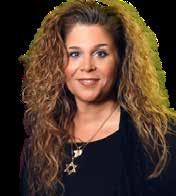
Shine Your Light Bold and Bright!

Jewish communities around the world are facing terrible antisemitic hate. It is has gotten so popular that public figures are being more open than we have seen in decades about their hateful views and opinions of our Jewish heritage.
Recently, we were all taken by surprise when rapper Kanye West, now also known as Ye, posted antisemitic tropes on his social media accounts, shared antisemitic conspiracy theories with Fox News host Tucker Carlson, and later, on social media, threatened violence against Jews. Then, on his latest appearance on the InfoWars talk show, hosted by provocateur Alex Jones, West, alongside white supremacist Nick Fuentes, said people should “stop dissing the Nazis” and exalted Adolf Hitler.
Yet, we were dismayed on Feb. 16, 2022, when at a middle school in Marietta, several middle school students wore swastikas on their sleeves and displayed Nazi salutes at school.
It’s public figures that are in the mainstream media and like Kayne West, “Ye”, Roger Waters and you don’t even want to know about the popular video games that depict Nazis and antisemitic tropes.
Just last month in Cobb County, individuals associated with the Goyim Defense League distributed antisemitic propaganda in residential areas, and during November 2022, in Brookhaven, two businesses were vandalized with antisemitic graffiti. The graffiti consisted of the statements “Jews Kill Blacks,” “Jews enslave Black lives,” and other antisemitic slurs were found.
Our kids and others in our community get confused by the popularity of hatred against our community. We are the chosen people of Biblical text, which, over the centuries, has caused jealousy and hatred since the being of our people. Yet, we are known for our abilities in the fields of medicine, finance, law, arts and culture. I believe that our success is more about our culture and traditions than it is our DNA.
We need to show the nation the story of the Maccabees that has been passed down through the ages. We are not a people to fear, but a people full of leaders, teachers, healers, and problem solvers. The strength in our weekly Shabbat time with our families, and the meaningful prayers proclaimed as we light the candles, is our bond. The miracle of Chanukah is an opportunity for our Jewish community to shine our light bold and bright for all to see the miracle of our people as we continue to get through every challenge with love and patience. For our love will forever turn the darkness into light.
I know it is Chanukah, but I would like to start my submission with a lyric from the song “Through Heaven’s Eyes,” which is in my favorite Passover movie, “The Prince of Egypt”:
A single thread in a tapestry Though its color brightly shines Can never see its purpose In the pattern of the grand design
I think it is important to shine our individual lights so that our community light can shine bolder and brighter. A single person can shine, but a community together can shine brighter than the sun.
Eight small ways to shine your light to the community, one for each night of Chanukah:

1: Give a genuine compliment.
2: Give a smile.
3: Volunteer your time.
4: Donate items you no longer have use for to someone who can use them.
5: Be a listening ear to someone who needs to talk.
6: Share your talents with the community.
7: Pay for the person behind you at Starbucks…if you can afford to do so.
8: Send cards or presents to a children’s hospital or retirement home.
You might think a single compliment, sending a card, or simply listening to someone isn’t shining your light, but, in the big picture, you are shining your light bright within the community. A compliment gives someone who might have been having a hard day a reason to smile. A card sent to a retirement home could brighten a senior’s day. Even simply listening to someone can really help their mental health, sometimes people desperately just need to talk to a listening ear. You, doing these small things, along with your neighbor, friend, and coworker doing these things, shines a big, bold, bright light in our community.
Editor & Publisher magazine recently helped me shine my light by honoring me as one of their 2022 creative visionaries. I hope that my bright smile from this award shines as I design the paper for the community and help contribute to the Best Jewish Newspaper in America!

Happy Chanukah and don’t ever stop shining your lights.


I remember back in high school when we were assigned Elie Wiesel’s autobiographical novel, “Night,” for our literature class. I needn’t go into detail about the book that so many, if not all, of us as Jews have read; the darkness and atrocities Wiesel witnessed and endured are part of our painful, collective history. But I read his powerful story during a time when books weren’t banned, history wasn’t being erased, and the mantra “Never Forget” seemed sacrosanct. Today, Jews are living in tumultuous times again, and it is not a far leap to worry that history may one day repeat itself.
Never during my lifetime have I witnessed the level of overt antisemitism that we are experiencing right now. A recent report by the Anti-Defamation League cited 2021 as being the highest year on record for documented instances of violence and harassment against American Jews. The past few years have included a resurgence of neo-Naziism; ever-growing denial about the Holocaust; attacks on synagogues; white nationalists marching with torches; swastikas across school campuses; celebrities who openly glorify Jew hatred on social media; biased media representation; and politicians who remain silently complicit in the face of vile, antisemitic rhetoric.
Amidst this growing darkness, I find inspiration from another book of Wiesel’s, his late-life memoir, “Open Heart,” where he concludes that “even in darkness it is possible to create light and encourage compassion.” Now, more than ever, it is critical that we, as Jews, make our voices heard in order to create that light. Stand up and speak out about hate. Educate others about harmful stereotypes and disinformation. Call out those who seek to perpetuate antisemitic beliefs and use dangerous language. Demand elected officials take a stand publicly when such incidents occur. Advocate for stronger policies to protect Jews. And wear your Star of David with pride!
As we light our Chanukah candles this year, may they be a beacon of hope for a more peaceful future. While I find encouragement in the late Wiesel’s words and faith, I also have faith in the next generation ready to lead us and stand up for what is right. I look to our first National Youth Poet Laureate, the inspiring Amanda Gorman, and her stirring words that shine not only for Jews, but for all of us: “There is always light. If only we’re brave enough to see it. If only we’re brave enough to be it.”
This year, Chanukah is unlike any in recent memory. For myself, it’s not necessarily about the Festival of Lights, spinning dreidels or eating latkes. It’s not about remembering the miracle of the oil lasting for eight nights thousands of years ago. It’s about remembering the miracle that the Jewish people are still alive today and that our community is stronger than ever, even in the face of rising antisemitism.
We will not cower to ignorant brutes! We will not wither in the face of pure evil!
In defiance, in unity and in strength, we will shine our light, bolder and brighter than ever! We have been here for thousands of years and we ain’t going anywhere anytime soon.
This Chanukah, do what you must to be bolder and brighter. Light your menorah with a flamethrower. Hang a disco ball at your latke party. Be Jewish. Super-Jewish So Jewish that even Kanye can’t deny our virtue (or take credit for it).
Happy Chanukah to the entire Jewish community, and an even happier Chanukah to the ones who are trying to stand in our way.
Sasha Heller is the copy editor and web editor for the Atlanta Jewish Times.
What a year it’s been! There is so much to be thankful for and proud of. Professionally, I am part of the Best Jewish Newspaper in the country, according to the American Jewish Press Association.
Our editor and managing publisher, Kaylene Ladinsky, was recognized as Marquis Who’s Who, a respected publication that selects professionals from countless global industries for their leadership roles and community involvement; and our creative director, Lilli Jennison, was honored by Editor & Publisher Magazine as part of the publication’s Creative Visionaries of 2022 for her exemplary work in print production design and layout.
I am so proud to be part of such a dedicated and creative team and am excited to see what the new year brings. Personally, my children have completed their college education and are well on their way to finding their own personal growth and path. I am thankful and blessed to have a job that I love, healthy, independent children and a loving husband with whom I’ve been with for 30 years! It’s been a fantastic year all around and I am looking forward to continued success and happiness in 2023. Wishing you all health and joy in the new year!
By Elizabeth LangfelderThis time of year, many different holidays are celebrated. All have meaning to each of us in different ways. Not growing up Jewish, my family celebrated Christmas in a religious way, embracing the holiday and all it offers, focusing on the closeness of family, warmth of friends, and blessings from G-d. Not to mention a bit of “Charlie Brown” and “A Miracle on 34th Street” thrown in for fun.
As an adult, I began to understand Judaism and chose to raise my children Jewish with the help from my family and my synagogue. This brought new celebrations and customs into my life that I warmly welcomed. Collecting menorahs to display and light, embracing family and honoring G-d is what matters to me and my family. I also make latkes but am known to use the air fryer instead of deep-frying if served more than one night.
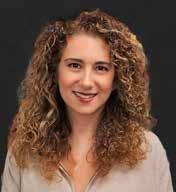
Celebrating any holiday or holy day should be encouraged and embraced provided it’s done in a respectful way. Our constantly changing world is always bringing challenges to our faith, beliefs, and perspectives. Welcome the light of the menorah to brighten your home and ignite your spirit. It’s my wish for all of us to find abundance of joy, strong feelings of love and patience in our daily lives so we can share it throughout our world. Happy Chanukah to all!
Chanukah has always been a special time of year for me. While not the holiest of days, it symbolizes celebration and family togetherness. I’m excited to be celebrating this year with my new work family at the AJT and with all of you.
As a child, Chanukah was always one of my favorite holidays. My sister and I would take turns lighting the menorah and delight in whatever goodies our parents generously gifted to us each night. My favorite night was always the one we spent with our extended family: grandparents, aunts, uncles, and cousins all feasting on latkes, spinning dreidels, and singing Chanukah songs. It is a gift now to be able to carry on that tradition with the next generation and know they will do the same.
At a time when our country is experiencing a rise in antisemitism, the importance of embracing our faith and our community during this holiday, and always, cannot be understated. I feel this responsibility deeply and is why it’s so important for our Jewish community to “Shine Our Light Bold and Bright”. Wishing you all a Happy Chanukah.
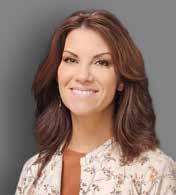
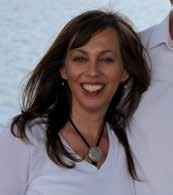
It is so important for our Jewish community to Shine our Light Bold and Bright right now because of the political atmosphere. There is so much hatred in the world towards Judaism. We, as Jews, need to educate others about our religion and culture.
When my children were younger, we lived outside Charleston, S.C. There were not many choices for preschools in our suburban town. I remember, very clearly, wanting to bring Chanukah gelt to educate my older daughter’s preschool class. Instead of acceptance by the director, I still remember so clearly, I explained to the director what gelt was…chocolate candy covered with Hebrew letters. Her response was, in a very harsh way, “absolutely not.”


I should have pushed harder and explained, however, I was young, naive, and did not want to fight. This is one of the many reasons I persuaded my husband to move out of the Charleston area. It is ironic, though, that my son is now a freshman at the College of Charleston.
In our current culture, other religions besides Judaism are the majority. We, as Jews, need to educate other citizens that there are other religions besides Catholicism and others. It is very apparent, especially during the December holiday season.
Personally, I am extremely proud of my religion. I admire people in our community who can showcase their love for their religion, in an apparent way. When I lived in the Tristate area, I had no fear. However, living in the South, I am fearful. I need to get over my apprehension.


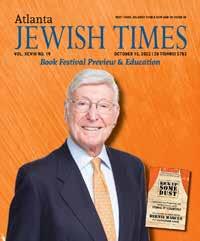
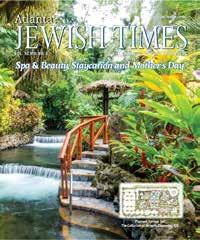

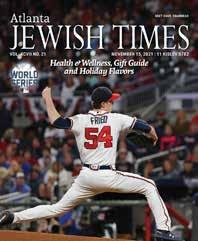
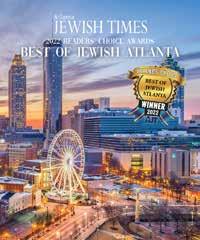

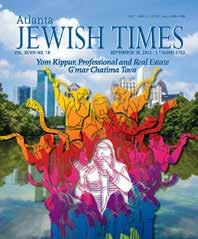


Chanukah gift givers who are looking for selections from some of the greatest names in American entertainment have several recent, outstanding choices to pick from this year. What makes offerings from Barbra Streisand, Steven Spielberg, and Bob Dylan even more appealing is that they can be paired with videos that are available on streaming sites or DVDs.
Streisand, who celebrated her 80th birthday in April, has reached deep in her vault of recorded performances to come up with her very first effort for Columbia Records. The disc, “Live at the Bon Soir,” is from her appearances at the Bon Soir night spot in Greenwich Village in Lower Manhattan, soon after she signed with the record label. There are 24 tracks taken from a week-long series of recordings done in early November 1962, most of which have been previously unreleased. Columbia moved their portable recording machines into the intimate confines of the club to try to capture some of the magic the then 20-year-old singer was creating for audiences there.
Streisand had recently become a sensation on Broadway in her debut as Miss Marmelstein in “I Can Get It For You Wholesale.” Columbia had paid her a substantial signing bonus of $20,000, or about $185,000 in today’s money. They quickly realized that Streisand’s talent was not yet polished enough for a recording of live performances and the week of tapes was stored away in their vaults. But these tracks, with an assist from recording engineer Jochem van der Saag, bring us a close up look at a talent just starting to blossom.
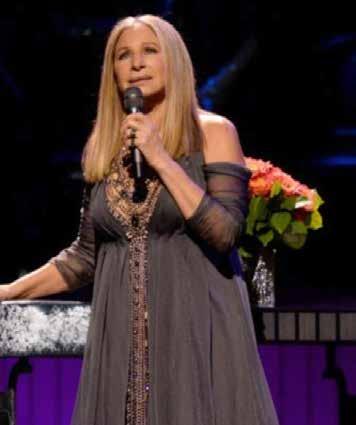
Three months after the Bon Soir sessions, in late February 1963, Columbia released “The Barbra Streisand Album,” produced in a New York recording studio. It won Grammy Awards for Album of the Year and Best Female Vocal Performance. The disc is still very much in print and would provide a nice complement to the Bon Soir recordings of the birth of a show business phenomenon almost exactly 60 years ago. For a video that attempts to recapture some of those years, try “One Night Only,” a Streisand performance from Sept. 26, 2009, at New York’s Village Vanguard. Netflix is also streaming a
concert she performed in Miami in 2017.
During the early 1960s another Jewish American singer named Robert Zimmerman was having an equally stunning early career in New York.
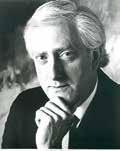
Zimmerman, who grew up in Hibbing, Minn., an iron ore mining town, changed his name to Bob Dylan and helped launch a revolution that is still being felt in the world of music.
Dylan is still touring at the age of 81, after more than 3,000 performances. He is booked for another 200 performances each year through 2024. During his free time on the road over the last 12 years he has been working on a new book. The Nobel laureate for literature, who was honored for his songwriting legacy in 2016, has written a work with a title that befits such a prestigious honor. It is “The Phi-
losophy of Modern Song,” which, despite its title, makes no pretense about connecting the evolution of contemporary music to anything as ordered and theoretical as a philosophy.

This is something much more specific. It is a book of essays, organized around 66 songs, mostly by Americans, that Dylan has loved over the years. There’s a play list of all the songs on Ap-
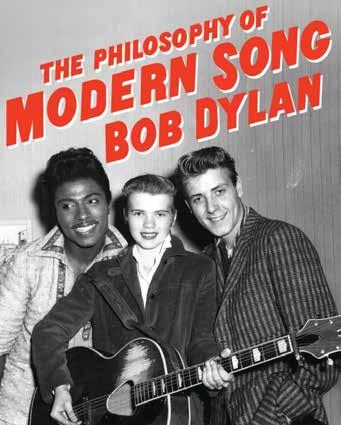
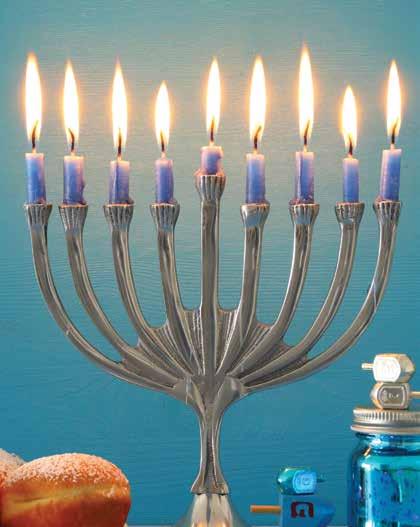
ple Music and Spotify.
He has obviously spent his long years on the road listening deeply and closely to recordings of other musicians. Among them are mid-20th century classics by Bing Crosby, Judy Garland, and Rosemary Clooney, as well as lesserknown artists like Jimmy Wages and Sonny Burgess.
There’s even a section about the Ukrainian Jewish tailor Nuda Kotlyarenko, who came to this country, became Nudie Cohn, and made outrageous tailored clothing for some of the biggest names in show business. He created the gold suit Elvis Presley wore on one of his most famous album covers, as well as some of the more extravagant capes he wore during his performances at the International Hotel in Las Vegas. Dylan reminds us that Nudie frequently showed up on the stage of the Ryman Auditorium at Nashville’s Grand Ole Opry with a “10-gallon yarmulke.”
A complementary pairing for the Dylan book is D.A. Pennebaker’s cinéma verité documentary that followed Bob Dylan during a three-week concert tour of England in 1965. It is one of the best music documentaries ever made and it can be streamed or rented on at least a dozen sites online.
If you were thinking of spending some screen time in a theater, you will be
hard-pressed during this holiday to find a film that surpasses “The Fabelmans.” It is Steven Spielberg’s masterful, semiautobiographical account of growing up Jewish and his budding love affair with the movies.

There’s been no shortage of publicity for the film. From a “60 Minutes” profile by Leslie Stahl to a cover story in the current issue of Time Magazine, Spielberg has been beating the drum for his most personal creation. It’s arguably his most Jewish one, notwithstanding his Holocaust classic, “Schindler’s List,” which was, after all, as much about the evolution of a righteous gentile than it was about those Jews who owed their lives to him.
Sadly, this latest Spielberg offering has yet to find much of an audience. Its debut during the recent Thanksgiving holiday brought in a paltry $3.1 million over five days. To complement this fictionalized account of his youth, have a look at Susan Lacy’s fascinating HBO documentary, “Spielberg” from 2017, which can be purchased, rented, or streamed on 17 sites. You can also read about him in Molly Haskell’s “Jewish Lives” biography from the Yale University Press.
In the spring of 2023, this AJT writer will discuss “Spielberg at 75,” in a fourpart series for The Temple in Midtown. ì

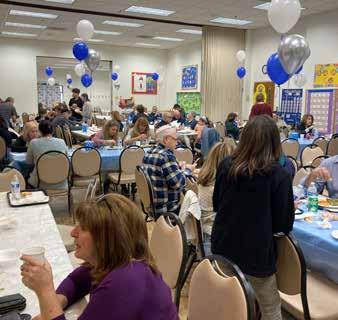
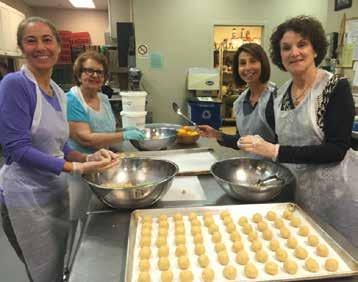 By Bob Bahr
By Bob Bahr
For the first time since the pandemic began almost three years ago, Congregation Or VeShalom’s annual Chanukah bazaar was back in its usual place, filling the synagogue’s large social hall and spilling over into the entrance and hallways of the domed structure on North Druid Hills Road. Since the mid-1970s, the sisterhood of the Sephardic synagogue has made the event, which was held this year on Dec. 4, an important part of keeping the historic congregation alive and prospering.

The president of the sisterhood, Angie Weiland, grew up in the synagogue where her family has been members for generations. Her father, Victor Maslia, was president of the congregation and a leader in the community for many years. Her mother, Lenore, was, like herself, the president of the sisterhood. For Weiland, the annual event is not only an important fundraiser, but a way of keeping the historic synagogue community, which goes back over a hundred years, together.
“We have the same people we might only see, you know, five times during the year. But on the day of the bazaar, they know what their job is for that day. A lot of people have had the same jobs, the same job for 20 or 25 years or more. And everyone shows up, and everyone in the congregation helps with it. It’s amazing.”
A main feature of the bazaar is the food, which is all prepared in the synagogue’s kitchen. Every Tuesday, members of the sisterhood, and an occasional male member of the congregation, get together to bake. They often make bourekas, the Sephardic savory pies, similar to Spanish empanadas, that were a feature of everyday life in the Eastern Mediterranean, where many of the members’ families originated.
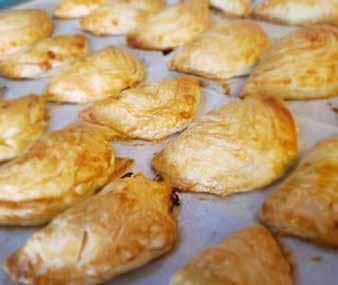
The well-known food writer Joan Nathan four years ago profiled the so-called “boureka Tuesdays” of Congregation Or VeShalom for the New York Times. A film about the group was screened at a recent Atlanta Jewish Film Festival.
Thousands of the pastries made from a dough of white lily flour and mazola corn oil are baked each year and frozen. They’re snapped up by visitors to the bazaar, along with the cookies, baklava, quajada de spinaca, a kugel-like casserole, and other foods that are all made with such loving care in the synagogue kitchen.
A spiral bound book, “The Sephardic Cooks,” which was compiled more than 50 years ago of traditional recipes handed down by the grandmothers and great-
grandmothers of today’s members, is a perennial best seller at the synagogue.
Although in years past, it was considered a given that marriages in the synagogue community were almost solely between Sephardic families, today, many couples, like the Weilands, are between those who are Sephardic and Ashkenazic.
The synagogue’s rabbi, Josh Hearshen, is the first spiritual leader who is Ashkenazic, but he claims to be a quick study. Since coming to the synagogue two years ago, he has managed to keep many of the Sephardic religious and cultural traditions while welcoming new members from a variety of backgrounds. In the past year, which has been a difficult one for many synagogues still recovering from the health crisis, the synagogue has enjoyed impressive growth. About 40 new families have joined a community
that now numbers around 350 members.
While Rabbi Hearshen admits that COVID has made synagogue life something of a roller coaster ride, he sees the success of this year’s bazaar as a sign of good times ahead.
Less than a mile away from the synagogue building, he can see the billiondollar campus of Children’s Healthcare of Atlanta rising. The immense Arthur M. Blank Children’s Hospital, with its 1.5 million square feet of pediatric facilities, is beginning to take shape.
Rabbi Hearshen has started a capital campaign that will help fund a new chapel building and new staff. There are plans to hire a Sephardic cantor to complement the congregation’s Sephardic religious services. But while the congregation is beginning to change in some ways, it is Hearshen’s hope that what he sees as the great strength
of the community, remains.
“We excel at being a synagogue that still remains like a family. We really know one another. When we walk in here, like for this bazaar, we’re excited and even ecstatic to be together with one another. And yet we are very welcoming to outsiders, who are newcomers like myself. It’s an honor for me to lead a synagogue that truly cares.”
Still the sisterhood president, Angie Weiland, has her worries, as the community changes and the cohesiveness of the congregation is challenged by new social and economic patterns.
“It’s very difficult. We rely on our core members, who have been members forever and ever. But we have changed. We’ve had to. We all adapt. It is very important for us to keep together. Otherwise, we won’t have any Sephardic community at all.” ì
End-of-year giving is about much more than rushing to meet a December 31 deadline. It’s about having a solid philanthropic investment plan. Atlanta Jewish Foundation is here to help you create one. You can turn cash, real estate, or other investments into powerful charitable gifts through a donor-advised fund (DAF)—your charitable “checkbook.” Don’t have a DAF? We’ll get you started! We can partner with you and your financial advisor to create a charitable
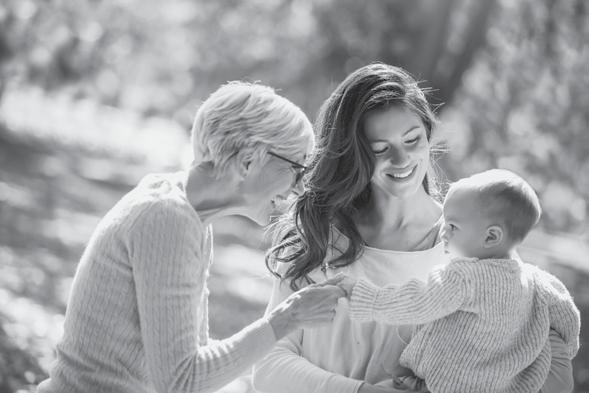
There’s a new chef in town, Shoshana Nissimov, formerly Susan Kaplan, who is targeting the Jewish community. She grew up in Toco Hills, attended Torah Day School of Atlanta and Yeshiva Atlanta High School. Since her mother grew up in Alabama, and her father in Savannah, her childhood was full of matzo ball soup, biscuits and grits, gefilte fish, and chicken and dumplings.
Now operating as Chef Shoshana, she declared, “I work one-on-one with my clients to create individualized menus and atmosphere. I am excited to provide the unique combination of traditional American Southern and Israeli cuisines for the Atlanta Jewish community.”
Witnessing her love for food preparation, Nissimov’s father encouraged her to enroll in a culinary arts program at Gwin-
nett Technical College. Nissimov recalled, “On a bit of a whim, I decided to go for it. I enjoyed that program tremendously, though it also came with the realization that the fast-paced kitchen environment was more than likely not the right place for me.”
She then soon married husband, Shahar, who grew up in Beit Dagan, Israel, and operates Key Tov Locksmith. Then, the real
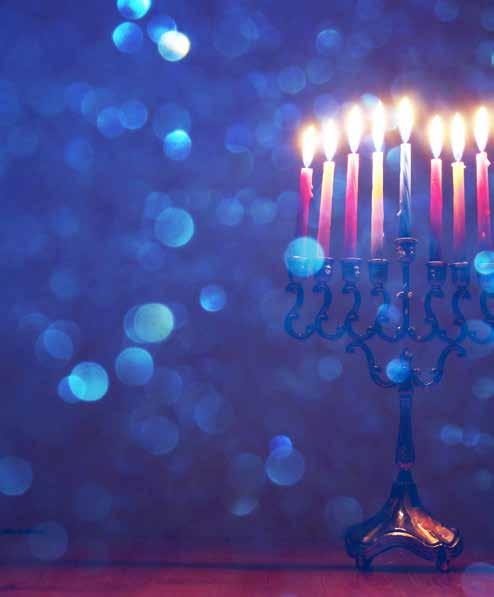
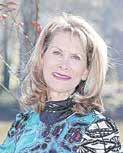
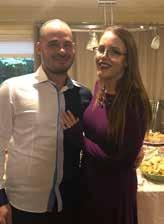
sparks flew. “He ignited in me a love for Mediterranean food and taught me how to make dishes like Moroccan fish, chicken livers and kubbeh selek.”
Previously, Nissimov worked for several years in restaurant management at Formaggio Mio, a local kosher-dairy, Italian-style restaurant on Briarcliff Road. During her time there, she was responsible for updating the menu and hosting private events such as the Valentine’s Dinner for Two in 2020. As the pandemic started to plateau, with the encouragement of friends and family, she decided to launch Chef Shoshanna Private Chef Services, specializing in sourcing topquality kosher ingredients and catering to a variety of diets, from Chalav Yisroel to gluten-free.
She shops ingredients from local Israeli markets, farmer’s markets, and kosher delis. Nissimov stated, “It is my goal to provide quality kosher food at a reasonable price. That is why my Shabbat menus typically fall under $100 for fish, an entree and two salads for 5-6 people.”
She also dives all-in for catering events like the End of Summer BBQ at Beth Jacob Synagogue for over 400 people, the largest she has catered to date. She added, “I love to get creative with my clients to provide a personalized experience. I can provide a Mashgiach or kosher certification for events, serve ware, and other services like music and atmosphere.”

Nissimov’s website is complete with options of varieties of tantalizing ways to mix and match. Her Sephardic Shabbat offers hand-rolled fish balls in a kickin’ sauce,
blackened salmon steaks in creamy dill sauce, chicken afunat, chuck steak in tomato sauce with beans, rice, lentils, roasted cauliflower, grilled chatzil (eggplant) and mushroom burekas. Salads galore start at $4.99 each: parsley and peanuts, avocado and red onion, Moroccan spicy carrots, Italian coleslaw with corn, fried eggplant, confit of banana peppers, babaganoush and more.
Still mouthwatering with choices, there’s shwarma plus Southern selections: beef and beans, chili with corn and homemade cornbread, chicken pot pie, fried chicken, and breakfast parfait. Most items can last in the freezer for up to two months.

Then, there’s the Italian menu, starting with cheese lasagna and mushroom Alfredo pasta and garlic bread. With her eye on reasonable prices, the biweekly meal plan with meals over four days is $103.52 and features eight meals.
Nissimov leaves us with her Kaplan family recipe for Southern cheesy latkes.
“This one stumped me. I’ve been eating and making latkes for years! It wasn’t until last year that I tasted some of my friend’s and they were amazing! Her secret? Adding shredded cheese to the mix before frying. Why didn’t I ever think of that? Top with sour cream, salsa, and a dab of hot sauce, the good ole’ Southern way.”
Note that Chef Shoshana does not have AKC certification, but will arrange proper supervision for the client’s needs.
Reach Chef Shoshana at 404-295-3455 or chef.shoshana@gmail.com and find menu updates on Facebook and Instagram. ì







We received 56 submissions to this year’s Chanukah art contest. We were blown away by the colorful, unique interpretations of the holiday. Artists range in age from 4 to 82. In this special section we spotlight the winners and 20 editors' choice images. All of the submissions will be available to view online. The cover image, “The Rainbow Hannukiah,” was created by 7-year-old Daniel Weinstein. Our Grand Prize winner, Kyle Solomon, is 22-years-old. We had two age groups: adult (15 +) and children (14 and under), with first second and third place winners in each age group. 66-year-old Ruben Haller won first place in the adult category with her piece, "A Beary Happy Chanukah," and 13-year-old Madeleine Pryor won first place in the child category with her piece, " Sufganiyot." Winners will recieve gift cards from our contest sponsor, Binders Art Supplies and Frames.
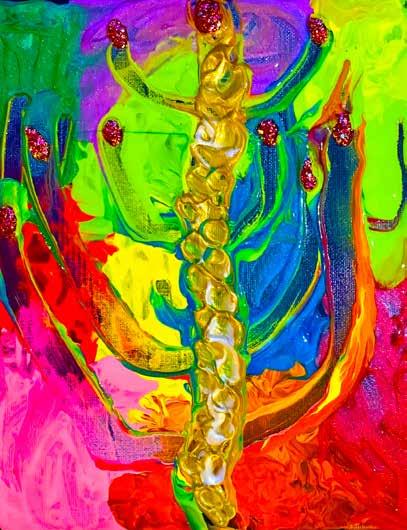
We look forward to seeing and sharing your art again in our next contest in April for Passover!








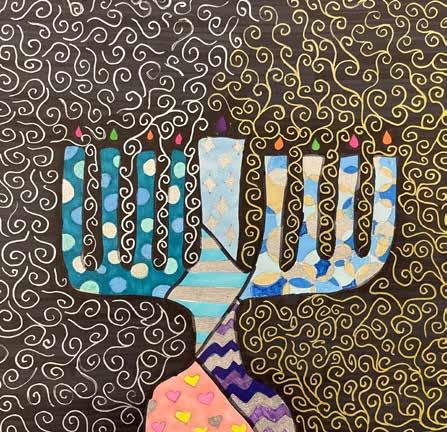



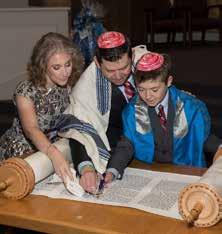
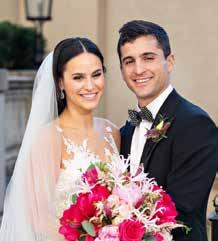

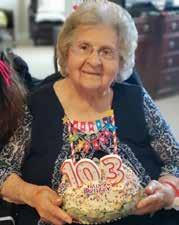
City: Atlanta, GA
Age: 8
Chanukah in Style
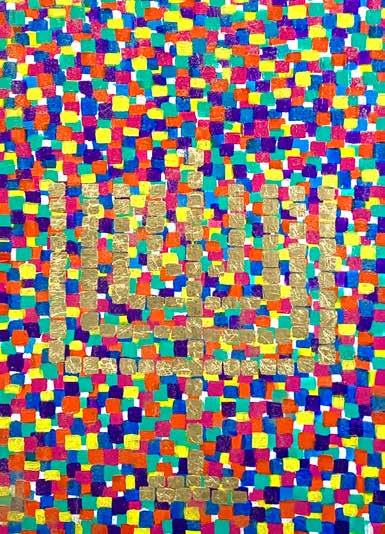

City: Roswell, GA Age: 70
Chanukah, Oh Chanukah
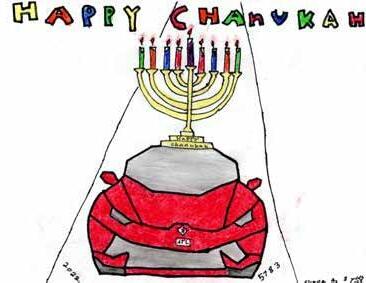
City: Atlanta, GA Age: 9
Chanukah Times
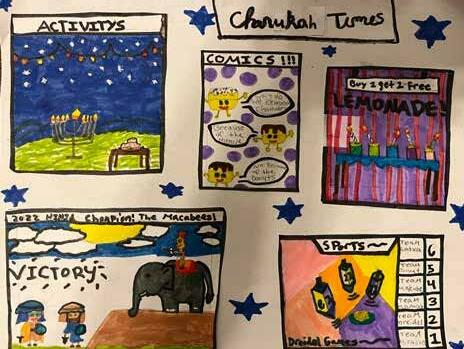
City: Atlanta, GA Age: 40 Golden Menorah
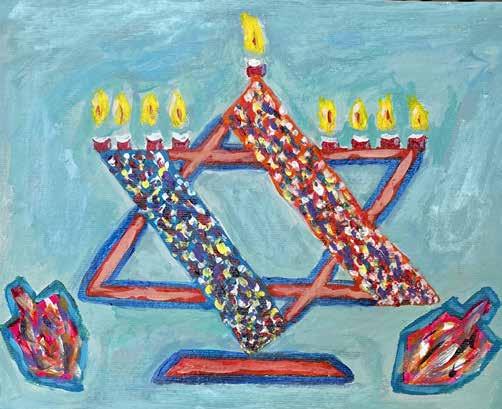
City: Atlanta, GA Age: 12
The Colorful Menorah
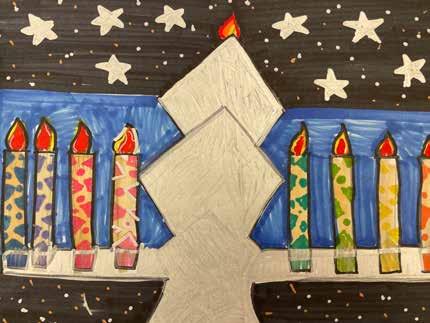
City: Marietta, GA Age: 11
Light Up This World

City: Marietta, GA Age: 10
The Friends of Chanukah

City: Dunwoody, GA Age: 7
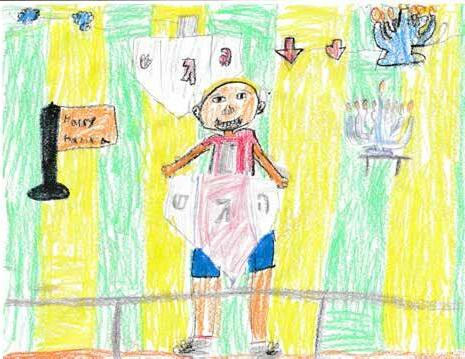
Chanukkah Celebration
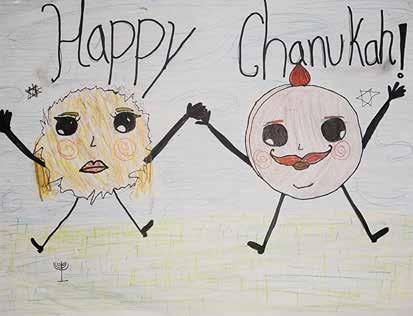
Mattie Katz
City: Atlanta, GA
Age: 10
Superhero Chanukah

City: Atlanta, GA
Age: 14
The Dreidel
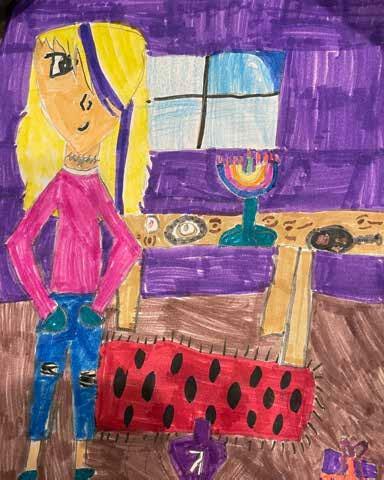

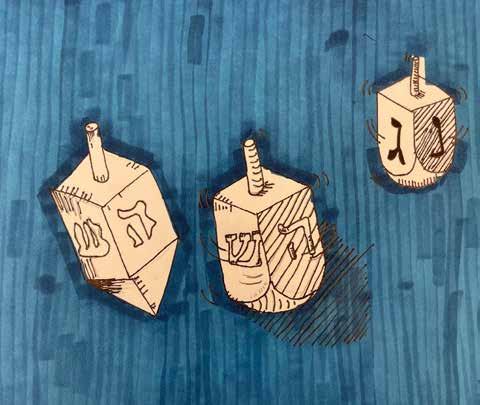
City: Dunwoody, GA
Age: 9
Channie’s Chanukah

City: Atlanta, GA Age: 7 Happy Chanukah!

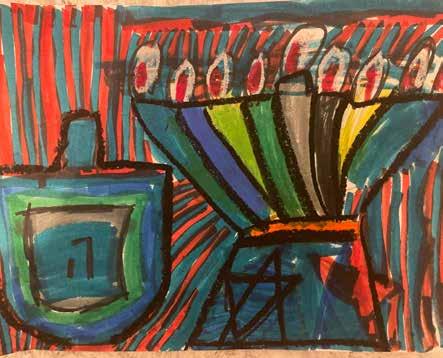
City: Atlanta, GA Age: 9
Hanukkah Cube
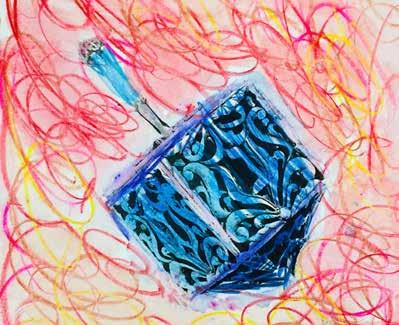


City: Duluth, GA Age: 37 Peace Love and Latkes
City: Atlanta, GA Age: 6 Spinning Dreidel








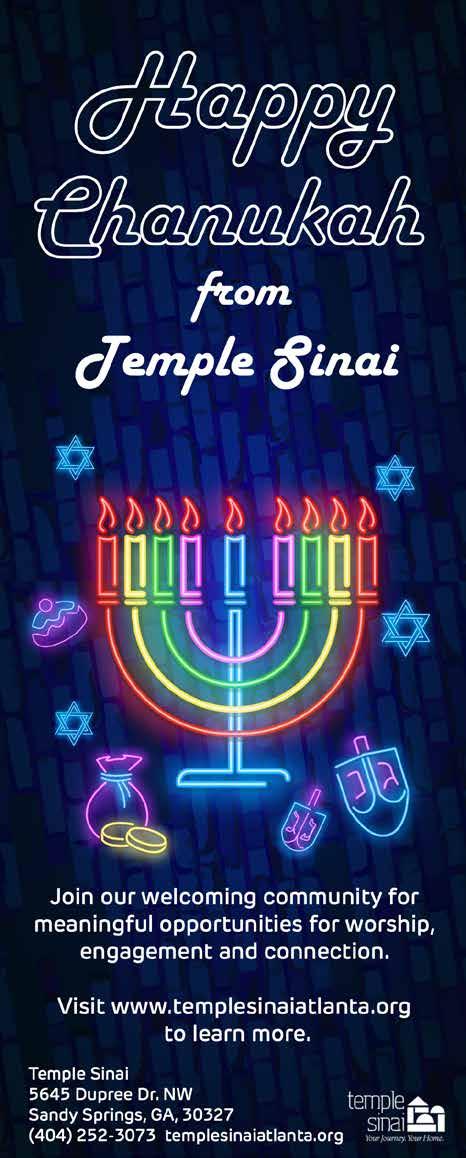

City: Atlanta, GA Age: 9 Matisse-inspired Chanukah
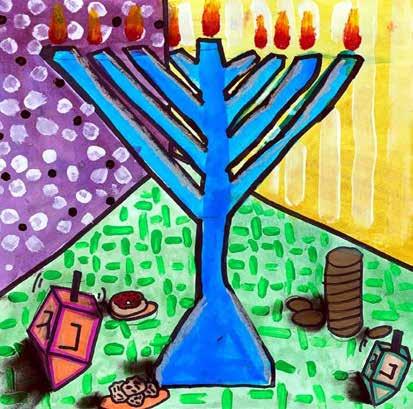
City: Long Beach, CA Age: 78 Menorah

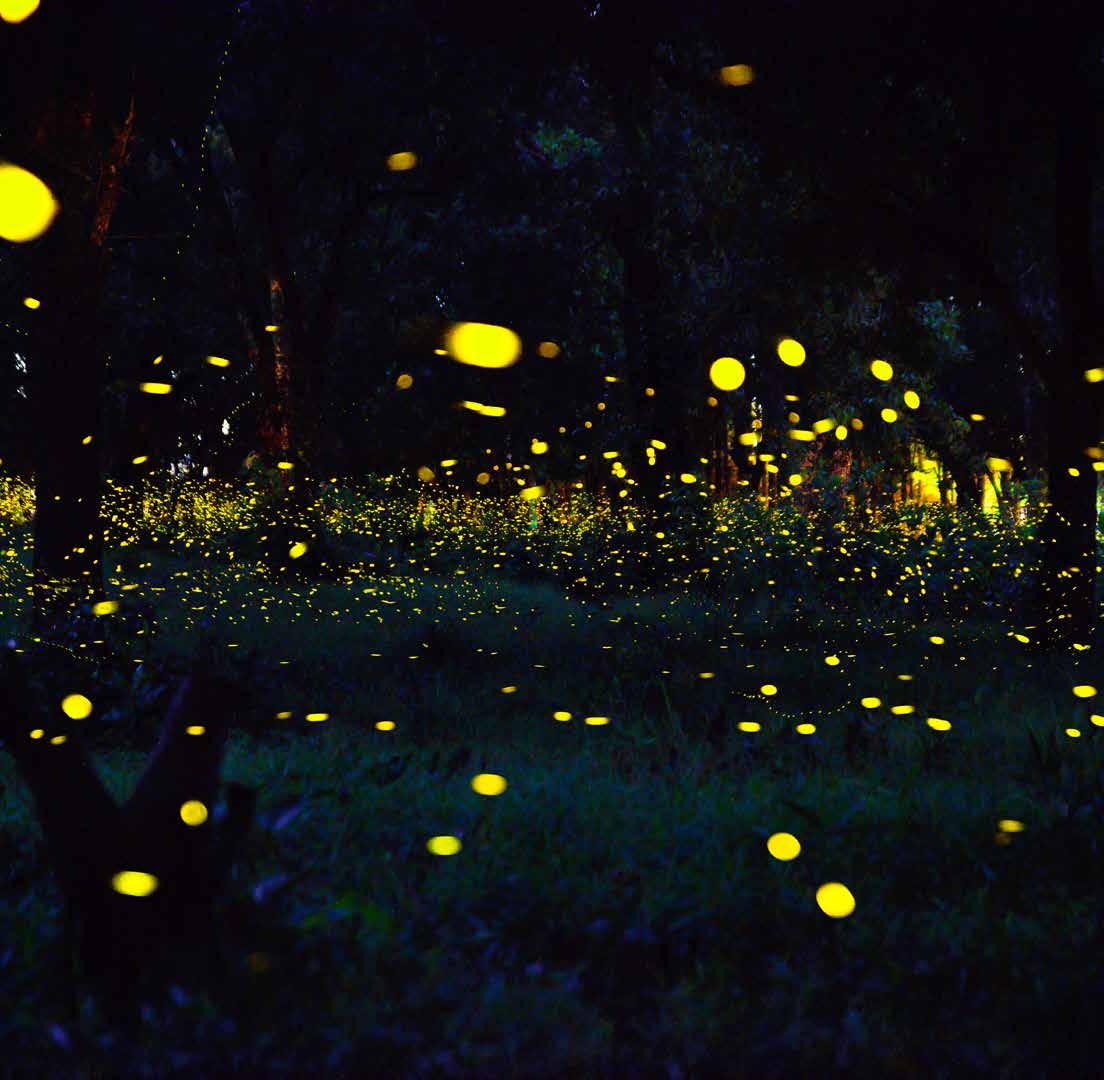

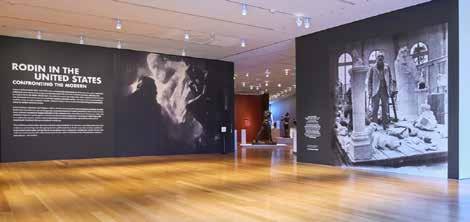 By Bob Bahr
By Bob Bahr
The great French sculptor Auguste Rodin produced some of the most popular artistic works of modern art. His bronze sculpture of “The Thinker,” in which a man is captured in a moment of deep contemplation, is among the most reproduced works of the last 160 years. Likewise, his study of “The Kiss” in which a couple is sharing an intense romantic embrace seems to define, for many, the nature of passion itself.
Both of these iconic works, which are now part of a major exhibition at Atlanta’s High Museum of Art, might have had a different history, if it were not for the work of two important American Jewish art collectors.
Philadelphia businessman Jules Mastbaum and Wall Street trader B. Gerald Cantor are important figures in the fascinating story of Rodin’s popularity in America. In the exhibit, “Rodin in the United States: Confronting the Modern,” the High’s director, Rand Suffolk, pointed out that the exhibit is about how an appreciation of the French sculptor developed in this country.
“This exhibition takes the audience on a journey as Rodin’s reputation builds, declines, and rises again. It’s a fascinating story, illustrated by many of Rodin’s most striking and beautiful works,” Suffolk said.
The interest in Rodin over the years owes much to Cantor and Mastbaum, both of whom did much to establish and perpetuate Rodin’s legacy in America.
In the 1920s, the early movie theater millionaire, Mastbaum, and his wife, Etta,
not only purchased a large Rodin collection, but built one of the most important museums in the country devoted to a single artist. His Rodin Museum, on Philadelphia’s Benjamin Franklin Parkway, gave America a lavish showplace for the works that the couple had fallen in love with when they visited Paris in 1924, seven years after Rodin’s death.
Most significantly, they underwrote the first bronze casting of Rodin’s greatest masterpiece, his “Gates of Hell.” It is in the form of a monumental pair of doors, standing 18 feet high and 11 feet wide. Rodin spent almost 25 years creating them.
Today, separate castings of the work adorn both the Mastbaum museum, that is now a part of the Philadelphia Museum of Art, and the Musee Rodin in Paris, that is run by the French government. In fact, according to the High Museum’s curator of European art, Claudia Einecke, Etta Mastbaum was the first to establish an official collection of Rodin’s work outside France.
“It is really amazing that she managed to do that,” Einecke said, “because, at that time, in the 1920s, the Musee Rodin in Paris had all the authority over his work. The museum was established by the government after Rodin willed his collection to France. It was the Mastbaums who negotiated, I assume with the French government, to get the authority to create another Rodin museum in the U.S.”
Unfortunately, Jules Mastbaum died suddenly and did not live to see his museum open. The official dedication occurred on Nov. 29, 1929, a month after the stock
market collapse that fueled the Great Depression.
Ironically, it was the rise in the stock market years later that shaped the career of the other important Jewish promoter of Rodin’s work, B. Gerald Cantor. In the postWorld War II era, his firm, Cantor Fitzgerald, became one of the leading dealers in government securities.
He devoted much of his fortune and his later life to helping to promote the interest in Rodin during the second half of the 20th century. According to art expert Laure de Margerie, who spoke at the High Museum on Dec. 8, Rodin has the ability to strongly stir our emotions.
“It’s sometimes difficult to understand,” de Margerie commented, “but there is this feeling of intensity and might that makes you feel you are in the presence of genius. It is as though there is something there that is superhuman, in a way.”
Cantor was so moved by Rodin’s sculpture that, over the years, he amassed the largest private collection of the artist’s

creations. Through his foundation, many have been donated to more than 70 museums, including the Iris and B. Gerald Cantor Center for the Visual Arts at Stanford University.
Like Mastbaum, Cantor sponsored numerous bronze castings of the great artist’s works, including a massive set of the "Gates of Hell" doors, which he presented to Stanford. Sculptures from both the Mastbaum and Cantor collections are included in the show at the High Museum.
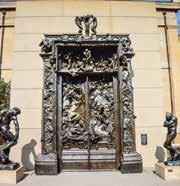
Sadly, tragedy is also associated with Cantor’s legacy. In 2001, five years after his passing, the offices of Cantor Fitzgerald, located at the top of the World Trade Center, were engulfed in flames after the attack on 9/11. All 658 employees working in the office that day lost their lives.
Notably, the High Museum’s own important work by Rodin, “The Shade” was a gift by the French government in memory of the 106 Atlanta patrons of the arts who died in a plane crash outside Paris in 1962. ì






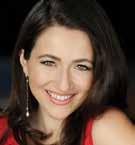

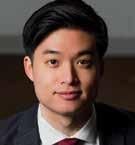
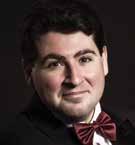

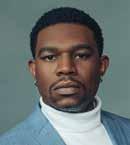
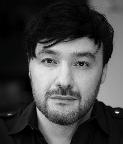
TBT Tikvah Tots – 10 to 11 a.m. Bring your little one for play time at TBT! Up to age 5. Get more information at http://bit.ly/3EcyGc2.
Eight Nights, Eight Lights. A Pre-Chanukah Experience – 7 to 9 p.m. Get into the Chanukah spirit at Chabad of Dunwoody’s pre-Chanukah Wine and Cheese tasting event! Hear inspiration from Rabbi Ari Sollish, noted author and lecturer, who will deliver a talk on the significance of the lights of Chanuka according to Jewish mysticism. RSVP at http://bit.ly/3u02fYL.
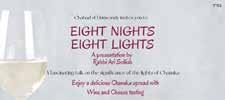
SOJOURN’s Drawing from the Well – 12 to 1 p.m. Drawing from the Well is SOJOURN’s inclusive weekly meetup for LGBTQ+ Jews and allies. Participants gather in community to discuss and connect around resources from Torah Queeries, Mussar teachings, holidays, and happenings in the world. Learn more at https://bit.ly/3Dn6Qbv.
Community Shabbaton- Shabbat Hakhel – 9:15 a.m. Join Chabad Intown and the Intown Jewish Academy for Shabbaton and Scholars in Residence. Find out more at https://bit. ly/3F1YOpu.
Arab-Israeli Conflict: 1945-1949, an Israel@75 Webinar - 1 to 2 p.m. From the end of World War II to the end of the 1948-49 war, Arabs, Zionists, Palestinians, Britain, the U.S. and the U.N. made critical decisions that shaped the Arab Israeli conflict for the next 75 years. Find the webinar link by visiting https://bit.ly/3izQ4PP.

Emotional Intelligence: What Is It and How Do I Get Some? – 1:30 to 2:30 p.m. Under the guidance of leadership development expert Alyssa Dickman, and Jewish Federation of Greater Atlanta learn about the EQ-I model and how leading with emotional intelligence can help you bring out the best in yourself and others. RSVP at http:// bit.ly/3hXR1kC.

Community Shabbaton- Shabbat Hakhel - 6 p.m. Join Chabad Intown and the Intown Jewish Academy for Shabbaton and Scholars in Residence. Find out more at https://bit. ly/3F1YOpu.
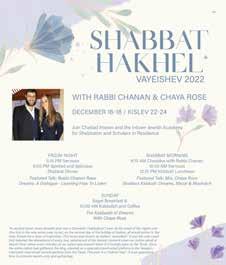
Tot Shabbat and Kiddush Lunch - 11 a.m. Join Congregation Beth Shalom for an interactive Tot Shabbat and sing, play and engage in fun activities, followed by a wonderful Shabbat Kiddush lunch together. Find out more at http://bit.ly/3PMct7u.
Vodka, Latke & Game Night – 7:30 p.m. Beth Shalom will provide some games, light refreshments, vodka, and latkes. Bring friends, spouse, adult children, and games! RSVP at http:// bit.ly/3Vblbz4.

Parents’ Night Out – 6:30 to 9:30 p.m. Congregation Or Ve Shalom watch the kids while you go out! Kids will enjoy a STEAM program led by Ally Habif, OVS member, STEAM educator, and owner of Challenge Island Sandy Springs, Dunwoody, Buckhead, and Brookhaven. Pizza will be served. Sign up at http://bit.ly/3AAdJWs.

Vodka and Latkes Dance – 7:30 to 10 p.m. Vodka & Latkes Dance featuring Atlanta Fever Entertainment. Dance the night away to great tunes and enjoy heavy hors d’oeuvres, latkes and vodka! Join Congregation Etz Chaim in the Hammer-Tritt Social Hall. Sign up at http://bit.ly/3tR5fX2.

Community Shabbaton- Shabbat Hakhel – 10 a.m. Join Chabad Intown and the Intown Jewish Academy for Shabbaton and Scholars in Residence. Find out more at https://bit. ly/3F1YOpu.
Torah Reading: Vayeishev
Friday, December 16, (Kislev 22, 5783) Light candles at 5:13 p.m. Saturday, December 17, (Kislev 23, 5783) Shabbat ends at 6:12 p.m.
Torah Reading: Mikeitz Friday, December 23, (Kislev 29, 5783) Light candles at 5:16 p.m. Saturday, December 24, (Kislev 30, 5783) Shabbat ends at 6:15 p.m.
Chanukah Music Class - 10:30 a.m. Join PJ Library for a special Hanukkah Singalong featuring a special music class teacher! Songs, crafts, and soufganiyot will make for a wonderful Chanukah celebration. Register at https://bit. ly/3FtL6Np.

Chanukah Story Time @ Wee Bee Baby Boutique – 11 a.m. to 12 p.m. It’s Chanukah tonight! Get in the spirit, eat some Chanukah treats, read a few books with the Mitzvah House about the festival of lights, and celebrate at Wee Bee Baby Boutique in Chamblee. RSVP at http://bit.ly/3gsAeFV.
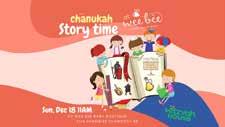
Hadassah Atlanta Chai Society Installation Luncheon – 11:30 a.m. to 1:30 p.m. Get ready for a “Chai” ‘ole time! With a Chanukah Twist! Hadassah Greater Atlanta invites you to our Chai Society Luncheon, Board installation & Chanukah Gift Exchange. Learn more at https://bit.ly/3FgAO3i.
Science of Light: Chanukah Celebration - 2 to 4 p.m. Celebrate the Festival of Lights by learning all about the Science of Lights with the MJCCA! This unique and engaging program will offer educational and fun STEM activities for both preschoolers and older children to get in the Chanukah spirit! RSVP at http://bit.ly/3EtBr7M.

Chanukah Lights of Unity Grand Menorah Lighting at the Forum - 4 to 5 p.m. Join the Chabad Enrichment Center of Gwinnett at the Forum. There will be The Atlanta Jewish Boys Choir, Ruby the Clown, Chanukah Treats, and Special Guest: Mr. Les Brown Renowned Motivational Speaker. RSVP at https://bit.ly/3H6Ouz2.
Chanukah Celebration - Gainesville Square – 4:30 to 5:30 p.m. Join Chabad Jewish Center of Hall County for a Chanukah celebration as we light the menorah for the first time at Historic Downtown Gainesville. Learn more at https://bit.ly/3BcIWPX.
Menorah Lighting at Avalon – 5 to 7 p.m. Join Chabad of North Fulton for a Chanukah celebration this holiday season! Help light up the night! Guests are invited to the Boulevard to kick off the first night of Chanukah with a traditional Menorah lighting ceremony. Get more information at http://bit. ly/3Gy0pFV.
GLT Hanukkah Glow Party– 5 to 7 p.m. Enjoy candle lighting, music, party, pasta and latkes, drinks, games and more with Gesher. Learn more by visiting http://bit.ly/3AuFijZ.


Menorah
“Winter Wonderland” Chanukah Community Party – 2 to 4 p.m. Join Congregation Etz Chaim, Temple Beth Tikvah, Temple Kehillat Chaim, and Temple Kol Emeth for the annual East Cobb/Roswell Chanukah Community Celebration. We will serve Chanukah treats, have crafts, hot chocolate, friends, fun, and SNOW! Register at http://bit.ly/3Os9SjZ.
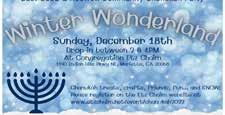
Chanukah in the Park - 4 to 5:30 p.m. Join 18Doors and other Jewish organizations in Atlanta for a delightful in-person celebration on the first night of Chanukah in the Park! Bring your loved ones, a hanukkiah (menorah), 2 candles (one candle for the first night plus the shamash, or helper, candle), foil (to put under your hanukkiah), a lighter and a picnic dinner, which we’ll all enjoy together after the candle lighting. Register at http://bit. ly/3VBcePH.
Va Hi Menorah Lighting (Highland Park) – 5 to 6 p.m. Join Chabad of Intown for a Chanukah Celebration! Enjoy music, live entertainment, prepackaged Chanukah treats, dreidels, music and more with the wider VaHi community at Chabad Intown’s annual Virginia Highland Menorah Lighting! Register at http://bit.ly/3EtXETq.
East Cobb Jewish Community Menorah Lighting – 5 to 6 p.m. Happy Chanukah from Congregation Ez Chaim and the entire East Cobb Jewish Community! Find out more at https://bit. ly/3ulcXsH.
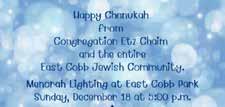
East Cobb - 5:30 to 6:30 p.m. Join Avenue East Cobb and Chabad of Cobb to celebrate the first night of Chanukah with a traditional Menorah lighting ceremony and celebration. Head over to Avenue East Cobb’s front lot beginning at 5:30 p.m. for family-friendly activities, delicious Chanukah treats, and more. Visit http://bit.ly/3ERduc5 to learn more.
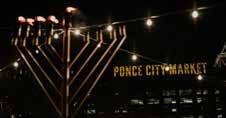

Chanukah Klezmer Festival @ Brook Run Park Amphitheatre – 5:30 to 7:30 p.m. The best way to start a very joyous Chanukah 22 is with a Klezmer Concert at the Brook Run Park Amphitheater. Beloved klezmer rockers Local 42 from Athens will sing the night away with a live and wonderful band. Get more information at http:// bit.ly/3GAeOkN.
Sparks of Light – 5:30 to 7:30 p.m. Join Ahavath Achim Synagogue for our annual Chanukah party, Sparks of Light! Bring your own chanukiah, and we’ll welcome Chanukah by singing and lighting the first candle together. Register at http://bit.ly/3Vhvvpj.

Chanukah Party – 5:45 p.m. Join Dor Tamid for a First Light, First Night Celebration. Enjoy a delicious dinner with latkes and sufganiyot. Play in a Dreidel Tournament of Champions! RSVP at http://bit.ly/3hRqhSG.
Family Estrangement Support Group –4 to 5 p.m. Being estranged from loved ones brings mixed and complicated emotions. This JFCS virtual group is intended for those experiencing longstanding estrangements from family members. Group meetings will focus on processing and supporting one another. Register at https://bit. ly/3AGISHZ.

Outdoor Menorah Lighting Ceremony- Suwanee City Hall - 7 p.m. Join the Chabad Enrichment Center of Gwinnett for lighting of the menorah, Chanukah gifts, and joyous Chanukah songs. RSVP at https://bit. ly/3EXAXXX.

Roswell Chanukah Celebration – 5 p.m. Join Chabad of North Fulton in the heart of Roswell for a public Menorah lighting. There will children's activities, delicious donuts, chocolate gelt, hot drinks, and more! Visit https://bit. ly/3B7nXh4 to learn more.
Uncoupling: Divorce Support Group in Atlanta - 5:30 to 7 p.m. A bi-monthly group from JF&CS providing support and resources, and a safe place to process and share experiences related to divorce and separation. Open to men and women of mixed ages. Register at http://bit.ly/3XpwuFG.
Minecraft Winter Break Camp - 1:30 to 3:30 p.m. PJ Library Atlanta is partnering with Lost Tribe to provide Minecraft programs that are engaging, interactive, collaborative, and innovative Jewish programming. Kids aged 8-12 gather in a safe, virtual setting facilitated by a Lost Tribe Minecraft Counselor. Register at http://bit. ly/3AzAv0C.

Menorah Lighting Celebration @ Dunwoody Village – 5:30 to 6:30 p.m. Celebrate with the Mitzvah House for a Chanukah celebration! Enjoy a singalong with Rabbi G from the MJCC, chocolate gelt, music, traditional songs, Chanukah treats, dreidels, activities for the kids, and more. Learn more by visiting http://bit.ly/3USsBYi.

Virtual Interviewing Workshop – 10-11 a.m. Learn how to better prepare for an interview, understand the different types of interviews and answer common interview questions. This JF&CS workshop will address how to tackle difficult interviewing moments as well as help you gain strategies on the do’s and don’ts of salary negotiation. Register at http://bit.ly/3OsbABV.
Chanukah on the BeltLine – 5:45 to 7 p.m. Bring all things that glow and join us on the BeltLine for a fun and festive community walk and celebration as we light up the night and sing Chanukah songs with Congregation Bet Haverim’s very own Brad Davidorf. Learn more at https://bit.ly/3Y7yGlV.


Mega Chanukah Event at the Battery Atlanta - 6 p.m. This is a one-of-a-kind unity event for the Atlanta Jewish Community you don’t want to miss with Chabad of Smyrna - Vinings! Event highlights, the largest Chanukah laser show - Bloopers from the Braves - Giant Menorah lighting - Face paint & Balloon artists - Photo booths - DJ - Kosher food for Sale and much more! Visit https://bit.ly/3ujE1bK to learn more.

Chanukah Celebration at Halcyon – 5 to 7 p.m. Meet Chabad of Forsyth and Congregation Beth Israel in the Village Green for the lighting of the Menorah, gelt (chocolate coins), latkes, games, giveaways, and music. Learn more at http://bit.ly/3EpwxJ7.
Atlantic Station Menorah Lighting – 6 to 7: 15 p.m. Join Chabad Intown for a Chanukah Celebration! (Event will take place in the Atlantic Green). RSVP at http://bit.ly/3gsE7dZ.
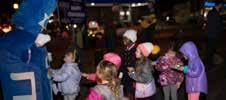
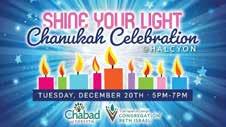
Virtual Support Group: Experiencing Infertility – 7 to 8:15 p.m. Join the Jewish Fertility Foundation for anyone experiencing infertility. Registration is required at least 12 hours in advance by visiting http://bit.ly/3ES3oYq.
Chanukah Bakeshop @ Cinnaholic Dunwoody – 5 to 6 p.m. Celebrate Chanukah the delicious way with a kids’ baking class! Bakers will shape their very own Chanukah cookies and frost and top their Cinnaholic cinnamon rolls. RSVP at http://bit.ly/3U4HqGc.

Chanukah Celebration at the JCC – 5 to 6 p.m. Light up the JCC with Rabbi Brian Glusman to celebrate Chanukah! Enjoy a menorah lighting, Chanukah songs, activities, crafts and free hot chocolate and doughnuts. Join us outside in the MJCCA courtyard (weather permitting)! Get more information at http://bit.ly/3GwYEc5.
Chanukah with the Gladiators - 7 p.m. Celebrate Chanukah with Atlanta Gladiators. Atlanta Gladiators vs. South Carolina Stingrays. There will be a special menorah lighting ceremony during intermission! Visit https:// bit.ly/3B6SZ9c to purchase your Gladiator tickets.

Milton Menorah Lighting – 5 p.m. Celebrate the fourth night of Chanukah with Chabad of North Fulton at the annual Milton Menorah Lighting where we’ll have a beautiful Menorah lighting, fun activities for the kids and light refreshments too! Get more information at https://bit.ly/3XVnF6N.
Ponce City Market Menorah Lighting – 6 to 7:15 p.m. Join Ponce City Market and Chabad Intown for a traditional menorah lighting ceremony on the Yard beginning at 6 pm. Attendees will celebrate the Festival of Lights with an evening of food and drinks, activities for the kids and music. RSVP at http:// bit.ly/3AzR6S9.

Chanukah & Solstice Chant – 6 to 8:30 p.m. Join with CBH chant leaders for an evening of meditative and celebratory chant as we embrace Chanukkah and Solstice. Bring a menorah and candles! We’ll light candles, chant, and nosh together (you are invited to bring latkes/sufganiot (doughnuts) or other dairy or veggie snack). Learn more at https://bit.ly/3FyLxq1.

Menorah Lightning on the Marietta Square - 6:30 p.m. Join Congregation Ner Tamid for a Menorah Lighting on the Glover Park Stage led by Rabbi Joseph Prass. There will be Hannukah music, free hot chocolate, donuts, door prizes, and lots of chocolate gelt. Learn more at http://bit.ly/3V0920q.
Kung Pao Kosher Comedy’s 30th Anniversary - 9 p.m. Kung Pao Kosher Comedy, which is an institution in San Francisco, has been answering the age-old question, “What are Jews supposed to do on Christmas?” since its inception in 1993. Purchase tickets virtually at http://bit.ly/3ABuPDc
Be A 2022 Pinch Hitter on December 25th! – 7 a.m. to 7 p.m. Do a mitzvah and join us as a volunteer! Pinch Hitter Program provides volunteers to work in non-medical positions in area hospitals and assisted living places on Christmas Day to give employees the day off to spend with their families. Register to volunteer at http://bit. ly/3ikO5yK.

Brain Health Bootcamp - 1 to 3 p.m. Virtual Brain Health Bootcamp every Tuesday will combine gentle physical exercise, including yoga and exercises to help reduce stress and anxiety, along with a full hour of brain exercises done in a non-stress and engaging way of learning. For more information visit https://bit.ly/3sr94RP.
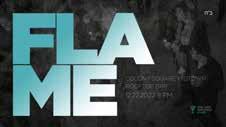
Jewish Women’s Torah and Tea – 7:45 to 8:45 p.m. Join the Jewish Women’s Circle of Decatur for a weekly discussion on the Parsha and contemporary Jewish issues. Find out more with the Chabad of Decatur at https://bit. ly/3T8oR4B.
Outdoor Menorah Lighting Ceremony - Lawrenceville City Hall - 7 p.m. Join Chabad Enrichment Center of Gwinnett for lighting of the Menorah, Chanukah gifts, and joyous Chanukah songs. RSVP at https://bit. ly/3H4YHvW.

Minecraft Winter Break Camp - 1:30 to 3:30 p.m. PJ Library Atlanta is partnering with Lost Tribe to provide Minecraft programs that are engaging, interactive, collaborative, and innovative Jewish programming. Kids aged 8-12 gather in a safe, virtual setting facilitated by a Lost Tribe Minecraft Counselor. Register at http://bit. ly/3AzAv0C.
Decatur Menorah Lighting – 6 to 7:15 p.m. Join Chabad Intown in Celebrating Chanukah at our annual Menorah Lighting in Decatur Square! Enjoy music, entertainment, Dreidels, doughnuts, hot latkes, crafts for the kids and more! RSVP at http://bit.ly/3EMnAtJ
Bagel Ball – 8 p.m. Single, taken or looking to connect with friends in town for the holidays? Join your 21 and older friends. Reserve tickets at http://bit. ly/3OBocqv.

Family Fun Day on Christmas Day at the MJCCA - 10 a.m. to 2 p.m. Join us for a FAMILY FUN DAY on Dec. 25 for fun with your whole family! The MJCCA will be open for open play in our gyms, inflatable bounce houses, gaga pit, arts & crafts projects, community service projects, movies in our theater at 10:15 a.m. and 12:15 p.m., food for purchase and so much more! Learn more at http://bit.ly/3i2QnT1
JF&CS Family Volunteer Day – 2 to 4 p.m. It’s Winter break. Bored at Home? Need something to do? End the year with a fun, family service day! JF&CS needs some holiday helpers to come assist with these projects. Register at https://bit.ly/3OXMkUa.

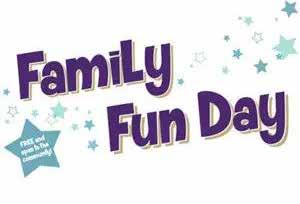
Young Professional Chanukah Party – 8 p.m. Kick-off the night with a Grand Menorah Lighting Ceremony followed by an epic afterparty with hundreds of young adults! Purchase tickets at https://bit.ly/3ups18O.
Kung Pao Kosher Comedy’s 30th Anniversary - 9 p.m. Kung Pao Kosher Comedy, which is an institution in San Francisco, has been answering the age-old question, “What are Jews supposed to do on Christmas?” since its inception in 1993. Purchase tickets virtually at http://bit.ly/3ABuPDc.
Chanukah Party 2022 – 5 to 8 p.m. Come join us at Or Ve Shalom to celebrate with a candle lighting, fried chicken dinner, Hanukkah treats, a movie, and more! Purchase tickets at http:// bit.ly/3OpP9NA.
Downtown Alpharetta Menorah – 5 p.m. Join Chabad of North Fulton for a Menorah Lighting in downtown Alpharetta. Learn more at http://bit. ly/3GK5LxX.
Jewish Spirituality and Mysticism - 8 p.m. A weekly class on Jewish spirituality, mysticism and how to apply it to your personal growth in a meaningful way taught by Rabby Hirshy. Visit https://bit.ly/3suZDkg for more information.
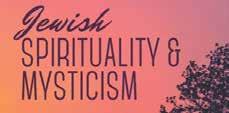
Drink and Dreidel - 10 p.m. The menorah will be lit! Chabad Young Professionals are too! Who could refuse latkes and donuts? As we drink and dreidel, there is an open bar and a special cocktail menu as well. Purchase tickets at http://bit.ly/3gwUrut.

Kung Pao Kosher Comedy’s 30th Anniversary - 9 p.m. Kung Pao Kosher Comedy, which is an institution in San Francisco, has been answering the age-old question, “What are Jews supposed to do on Christmas?” since its inception in 1993. Purchase tickets virtually at http://bit.ly/3ABuPDc.
SOJOURN’s Drawing from the Well – 12 to 1 p.m. Drawing from the Well is SOJOURN’s inclusive weekly meetup for LGBTQ+ Jews and allies. Participants gather in community to discuss and connect around resources from Torah Queeries, Mussar teachings, holidays and happenings in the world. Learn more at https://bit.ly/3Dn6Qbv.

In search of the perfect latke and an understanding of this Chanukah holiday delicacy, we asked two rabbis and a pair of seasoned cooks for the inside scoop. We thank them “a-latke”!
What’s the history of the tradition of eating latkes on Chanukah?
According to Rabbi Joshua Heller, senior rabbi of Congregation B’nai Torah, “Latkes are among the most commonly consumed Chanukah foods. I’ve heard the story that the oil is to remember the oil of the Chanukah miracle, and potatoes were the simple food eaten by the Maccabees. The first time a Jew met a potato was the 1500s, and latkes as we eat them today are a very late add to the Chanukah tradition. The Shulchan Aruch (a classic Jewish law code of the 1500s) cites cheese as the most important Chanukah food, in remembrance of Judith, the heroine of a book that did not make it into the bible.”
Tell us about the real heroine behind the story of the latke.
Rabbi Heller: As the ancient story tells us, Babylonian king Nebuchadnezzar sent his general Holofernes to besiege the Jewish city of Bethulia. Judith, described as a beautiful young widow, saved her people by presenting herself to Holofernes, in order to slay him herself. While the story was originally set in earlier times, later traditions placed it as the precursor to the Chanukah story and added that cheese was on the menu of Holofernes’ last meal. To remember this story, Spanish and Italian Jews made cheese pancakes on Chanukah. By the time the custom of fried food reached Poland, potatoes were the most available fry-able ingredient, and many American Jews of northern European descent now see the latke as the traditional food. As you enjoy your latkes, let the oil remind you of the Chanukah miracle and the potatoes remind you of the creativity of our European ancestors, but be sure to add cheese or sour cream, to remember Judith, an oft-forgotten heroine of the season.”
Rabbi Micah Lapidus, director of Jewish and Hebrew Studies at The Davis Academy, can you share any insight on the meaning of the word “latke”?
Rabbi Lapidus: A latke is a pancake and the word itself comes to us via Yiddish, likely from a Russian word meaning “pancake.” Yiddish is a language which was used by Jews in central and eastern Europe for several centuries before the Holocaust. It was originally a German dialect with words from Hebrew and several modern languages. Every child who doesn’t have dietary restrictions should certainly try as many latkes as they can with different toppings, whether traditional or innovative, as it’s a special delicacy that reminds us, not only of the story of Chanukah, but of the rich history of so many of our ancestors who lived in Europe, spoke Yiddish, and bequeathed us this delicacy, countless others, and in so many ways, impacted the expressions of Judaism that we find in the world today.
And now the secret recipes! Leah Schapira, a well-known kosher cookbook author and co-author of “Dinner Done” (Artscroll), can you share with us your inside secrets? Schapira: I’m a purist and prefer potatoes and no mash-ups or flavors or different vegetables. I care more about the grate, and it must be half with a fine grate and half shredded. Food spells love. I love latkes and my mother and grandmother made fresh latkes every Chanukah. I prefer Yukon gold potatoes. I keep it to potatoes, egg, salt, and pepper plus a kosher Tai Sweet Chile Sauce (instead of applesauce).
What if we prepare the frozen latkes? Is that taboo? Dare we confess?

Schapira: My mother buys frozen cookie dough and bakes cookies for the grandchildren which they absolutely love. She tells everyone it’s her famous cookies, though we know it’s a store-bought version. Simple is good and whatever works. The key is gathering together around the table, celebrating Jewish holidays, and adding your own stories and traditions. You can find my “Secret Latke Recipe” at my community website where we bring Jewish women together with simple weekly recipes, and other ideas. www.Betweenscarpools.com
And lastly, we asked Sephardic cook Suzanne Hanein for her best kept latke secrets.
Hanein: My family is from Egypt and for Chanukah, we made “bimuelos,” fried little donut holes dripping in honey (sold at the Or VeShalom Chanukah Bazaar). I discovered potato latkes when I married an Ashkenazi man and seeing what a mess it was to grate potatoes and prepare them, I discovered shredded hash browns called “Simply Potatoes” at the grocery’s cheese section and frozen shredded hash browns in the frozen vegetable section. For every 20-ounce package, I use two eggs, 1/4 cup flour, salt, and pepper. Mix everything together well, form and fry. You can try air frying and for gluten-free family members, substitute gluten-free flour. For vegans, use either the vegan egg substitute or one tablespoon ground flax seed and mix it with three tablespoons water for each egg.
Wishing you and your family a happy Chanukah and long live the latke!
 By Robyn Spizman Gerson
Robyn Spizman is a New York Times award-winning author and seasoned media personality. www.robynspizman.com
By Robyn Spizman Gerson
Robyn Spizman is a New York Times award-winning author and seasoned media personality. www.robynspizman.com
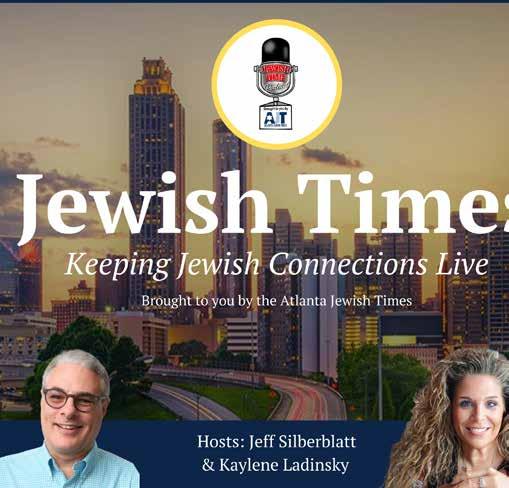


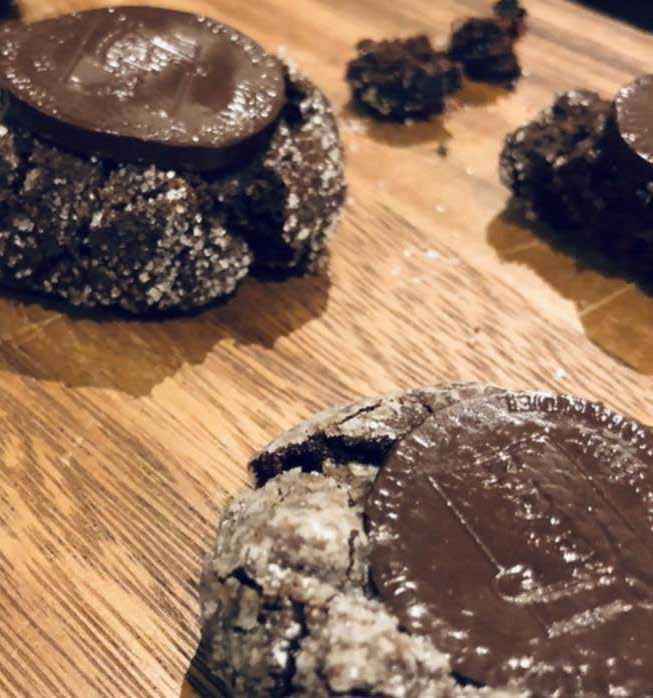
I love this recipe because there is olive oil in it and that was used for the nes of Chanukah! (You can always swap it with other oils.) Yields 3-4 dozen.
Ingredients (10)
2 cups flour
1 cup cocoa powder
2 teaspoons baking powder
1/2 teaspoon kosher salt
2/3 cup olive oil
2 cups sugar
2 eggs
2 teaspoons vanilla extract
2 teaspoons coffee dissolved in 1/4 cup hot water (optional)
chocolate gelt coins (unwrapped)
Preheat oven to 350 degrees Fahrenheit.
In a bowl, mix together flour, cocoa, baking powder, and salt.
In a second bowl, combine olive oil, sugar, eggs, vanilla, and optional-coffee mixture.
Add dry ingredients to wet. Mix well.
Place ingredients in refrigerator for several hours or overnight.
Roll one tablespoon of chilled dough into ball and place on baking sheet, and repeat.
Bake for 15 minutes.
While cookies are warm (but not too hot that the chocolate gelt will melt) place the chocolate coin on top.
Most importantly, enjoy and eat it with the people you love!
My Kosher Recipe Contest Recipe Submitted by Miriam Gross
Source: Kosher.com

What is Jewish Alzheimer’s Disease?
It’s when you forget everything but the guilt.
n. A person obsessed with taking selfies, usually several every day, which are kept in a folder for viewing, also several times daily.
“Why Mel is a selfie schlemiel is anybody’s guess. Maybe it’s because he knows his punim (face) is instantly forgettable.”
From the Yiddish “schlemiel,” a clumsy and inept fool.

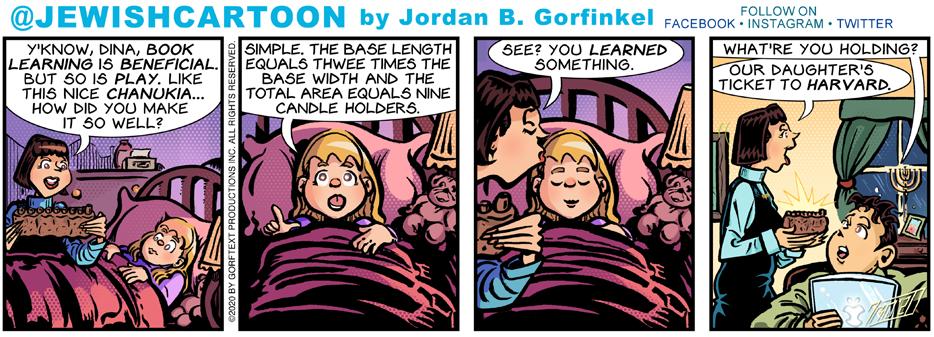

Donald Duck’s nephews, e.g.

Earle D. Balis, 97, of Atlanta died Dec. 9, 2022. Mr. Balis was born in Philadelphia on Aug. 26, 1925. He grew up in Charleston, S.C., and, in 1947, graduated from the University of Georgia.
Mr. Balis served in the Air Force during World War II as a B-25 navigator and in the Korean War as a B-29 pilot. After his service, he had a 30-year career as a captain with Eastern Airlines and retired in 1985. Earle was preceded in death by his wife, Barbara S. Balis, and is survived by his daughter and son-in-law, Lauren B. and Michael P. Dillon, and grandchildren, Jake P. Dillon and Barbara Rose Dillon. In lieu of flowers, contributions may be made to Renegade Paws Rescue. Services were held privately.

Sylvia Levy Benator, 92, of Atlanta, Ga., passed away Monday morning, Nov. 28, 2022. She lived her entire life in Atlanta. She will be greatly missed by her family and friends. She will be remembered as a loving wife, mother, grandmother, sister, and aunt. Sylvia was the daughter of Bahor David and Emily Bardavid Levy and was a lifetime member of Congregation OrVeShalom.
Sylvia was predeceased by her loving husband of 55 years, Max Benator, her brother, Eli Levy, and sister, Sarah Levy. Survivors include her children, Richard Benator (Linda Prieto), Donald (Cynthia) Benator, and Marie Babb; grandchildren, Max Benator of Los Angeles, Calif.; Jonathan (Sarah) Benator; Aaron (Sidra) Benator of Greenville, S.C.; Elliott (Shruti) Benator, Megan Babb (Garrett) Langley and Molly Babb (Parker) Haren. Great-Grandchildren: Zachary Benator, Joshua Benator, Ethan Benator, Luca Benator, Sumner Langley, Maren Langley, and Rhodes Haren; Sylvia is also survived by her brother, Victor Levy.
Graveside services were held 2:30 pm, Wednesday, Nov. 30, at Greenwood Cemetery, 1173 Cascade Road SW, Atlanta, GA 30311 with Rabbi Josh Hearshen officiating. In lieu of flowers, donations may be made to Congregation Or VeShalom, 1681 N. Druid Hills Rd. NE, Atlanta, GA 30319. Arrangements by Dressler’s Jewish Funeral Care, Atlanta (770-451-4999)
Jeffrey Berg, age 72, passed away Dec. 3, 2022. Jeff was born in Buffalo, N.Y., and grew up in Miami, Fla. He moved to Atlanta in 1976, where he met Renee, his wife of 45 years. Jeff was a loving husband and a doting father, grandfather, and uncle. He was a member of Congregation Beth Shalom. Jeff graduated from SUNY at Buffalo with a degree in architecture. One of his most notable jobs was working with the City of Atlanta Department of Park Design. As an avid sports fan, Jeff followed all the Atlanta and Buffalo sports teams. He attended Braves games at every single major league stadium. He loved to travel and take cruises with Renee and was an avid stamp collector. Most of all, he enjoyed spending time with his grandchildren, nieces, nephews, and extended family.
Jeff is survived by his wife, Renee, daughter, Dana Horowitz (Dan), son, Evan Berg (Anjelah), sister, Ellen Samet (Lenny), grandchildren, Emily, Adam, Ariella, and several nieces and nephews. Arrangements by Dressler’s Jewish Funeral Care, 770451-4999.
Joseph Nathan Blau, 74, passed away peacefully in his sleep after a courageous battle with cancer and affiliated ailments. He is survived by his beloved wife of 39 years, Anna Zaibel Blau, and his son, Aaron Saul Blau. He is also survived by his sisters, Hannah Blau, and Rose Rowland, brother-in-law, Seth Rowland, and two nephews, Samuel, and Itzak Rowland.
He had an extended family in Jonatan Mora who he helped raised since the age of 2. The Mora family is mourning his loss deeply, especially Laura Mora who considered him a second father.
The family meant everything to Nathan, as he was known to family and friends. He had the biggest heart and was happiest when helping others and donating much of his time to charitable causes including his beloved synagogue. As an attorney, he provided pro bono legal services to help abused women and children who fled domestic violence, sexual assault, or human trafficking.
Funeral services were held at Greenwood Cemetery on Wednesday, Dec. 7, 2022, at 2:00 p.m. Donations may be made to Congregation Shaarei Shamayim or charity of your choice. Arrangements by Dressler’s Jewish Funeral Care, 770-451-4999.

Richard Bruce Gay, 68, passed away of natural causes on Dec. 1, 2022. He was a loving husband to wife, Nanci, and devoted son to parents, Jack and Lilly Gay, of blessed memory. Richard is also survived by his sisters, Cheryl Shapiro (Stan) and Sandy Sarlin (blessed memory Milt). Richard is also survived by numerous nieces, nephews, and cousins scattered across the United States.
Richard was an Atlanta native son, raised at The Temple, attended Briarcliff High School (class of 1972) and Georgia State University, where he earned a BBA in business accounting. He was also a member of Temple Sinai. Richard worked in numerous financial positions, including the family clothing store, Gays Mens Wear. Upon its closing, Richard became a CPA and retired from Southern Company in 2018.
Richard used his passion for numbers by being the volunteer treasurer for the Hebrew Order of David Shimshon Lodge, where he was honored with the Worthy Brother title this November, Atlanta ORT’s Honey for the Heart program and the Cameron Manor Way Homeowners Association. Richard was beloved by all as he always had time for friends, golf, bowling, and his favorite sports teams, the Georgia Tech Yellow Jackets, New York Yankees and Huerta Berlin Soccer. His dad introduced him to these at a very early age.
Richard will be missed. His loving heart and selfless acts endeared him to many. If so inclined, please honor Richard’s memory with a contribution to HOD-Shimshon (hodshimshon.org), Temple Sinai or the charity of your choosing. Funeral services were held on Dec. 4, 2022, at Crest Lawn Memorial Park. Arrangements by Dressler’s, 770-451-4999.
Shirley “Skippy” Musket Gershonoff, 83 of Atlanta, died Nov. 29, 2022. Born in Grand Rapids, Mich., Skippy lived in Los Angeles, San Francisco, Chicago, and New York, before settling in Atlanta, Ga.


Her early retail career was at fine women’s clothing shops in Beverly Hills and Chicago. She was asked to manage a high-end dress and jewelry shop in New York, and from there, began her jewelry career with a stall in the Diamond District on 47th St. In 1973, she moved to Atlanta to open Skippy Musket & Co, which she operated with her husband, Jerry Gershonoff, until his death in 1997. Skippy was internationally recognized for her jewelry expertise and fashion awareness, traveling to Europe several times a year to purchase unique estate pieces to sell in her store in Atlanta, until her retirement in 2002.
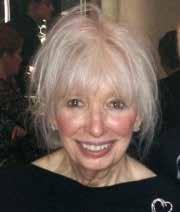



Skippy continued using her skills and sense of design even after retirement, by volunteering at a hospital gift shop in Atlanta. She was a great lover of animals and an avid supporter of the Atlanta Humane Society. She enjoyed the arts, including theater and museums, and loved to travel. Skippy was a warm and compassionate woman, a shining star who will be missed by all who knew her.
Skippy was preceded in death by her first husband, Jerry Gershonoff, and is survived by her beloved partner of 22 years, Joe Rivkin, of Atlanta; brother, Ronald Muskat; niece, Taline Muskat; and nephew, Jerry Muskat-Martin (Olivia), all of Michigan. In lieu of flowers, contributions may be made to the Atlanta Humane Society, 981 Howell Mill Rd., Atlanta, GA 30318. Entombment services were held Friday, Dec. 2, 2022, at Arlington Memorial Park.




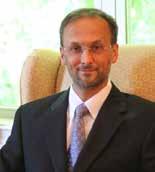
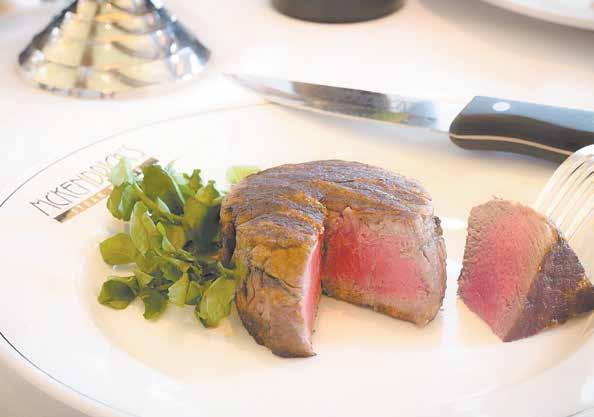

Sarah Goldberg, 99, of Atlanta, Ga., passed away peacefully on Monday, Dec. 5, at her home. Sarah was preceded in death by her loving husband of 67 years, Elliott Goldberg. She is survived by her son, Edward Goldberg; daughter and son-in-law, Marcia, and Bruce Brown; sister, Francis Shapiro; grandchildren, Marc, and Hilary Goldberg, Robin, and Rob Simon, Allison Goldberg, Benjamin, and Morgan Brown, and Geoffrey, and Stephanie Brown; great-grandsons, Eli, and Beau Brown, Jake, and Harrison Goldberg, and Julian Brown; and many nieces and nephews.


She was preceded in death by her daughter-in-law, Susan Jacobson Goldberg. Sarah was born and raised in Atlanta, Ga., attended Agnes Scott College, was a buyer at Rich’s Department store, and did market research. Her favorite job was being Bubbee to her grandchildren and great-grandchildren where she spoiled them with her famous mandel bread.
Her caregivers, Barbara Powers and Jeneva Jones, lovingly attended to her for the past eight years. She was a lifelong member of Ahavath Achim Synagogue and a member of Sisterhood and Hadassah where she dedicated many volunteer hours.
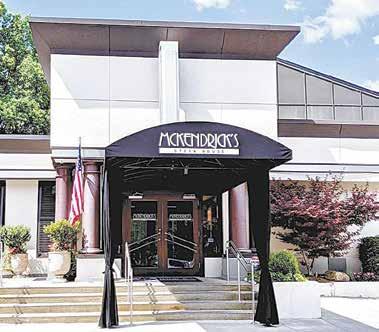
Graveside services were held 10:30 a.m., Wednesday, Dec. 7, at Greenwood Cemetery with Rabbi Laurence Rosenthal officiating. In lieu of flowers, contributions may be made to Ahavath Achim Synagogue, 600 Peachtree Battle Ave, Atlanta, GA 30327, and Rolfe Pancreatic Cancer Foundation, 4255 Honore St, Ste 209, Chicago, IL 60613. Arrangements by Dressler’s Jewish Funeral Care, 770-451-4999.
Paula Barbara (Milner) Rachelefsky passed away unexpectedly on Tuesday, Nov. 22, 2022. She leaves behind three children, Lance of Brookline, Mass., and his wife, Gavin Andrews, Ian of Atlanta, Ga., and Sara of Cumming, Ga., and her husband, Chris Casper, five grandchildren, Stellan, Elsa, Jaxton, Sadie, and Chloe. In addition, she leaves two siblings, Donna and Jan, and her stepmother, Yolanda Milner. She was preceded in death by her loving husband, Dr. Marvin Rachelefsky in July 2021.
Paula was born on Oct. 4, 1949, to Henrietta and Samuel Milner and raised in Coney Island, N.Y. She was a homemaker, educator, and reading specialist. She received her master’s degree in education from the University of Pittsburgh and an undergraduate degree from Brooklyn College. On March 26, 1972, Paula married her high school sweetheart, Marvin, and they raised their three children in Atlanta. Paula and her family have been members at Temple Sinai in Sandy Springs since the 1980s.
Paula loved nothing more than doting on her five grandchildren, going to see the Atlanta Braves play, and a good book. She loved the beach, traveling the world with her family, and was an avid cat lover. She volunteered over the years for literacy programs and looked forward to participating in the annual Atlanta Jewish Film Festival.
The family requests that in lieu of flowers, donations be sent to Temple Sinai www.templesinaiatlanta.org or the National Diabetes Association, www.diabetes. org
A private, graveside service was held Thursday, Dec. 1 at Arlington Memorial Park at 10:30 am.
Edward Schneider passed away on Dec. 2, 2022. He is survived by his wife, Carol, son, Ryan (Jennifer Tourial), daughter, Julie, grandchildren, Lily, Gray, Owen, and Emerson, and brothers, Allen, and Richard (Helen). Ed was preceded in death by his brother, Stephen, parents, David and Rebecca, stepmother, Irene, and half-sister, Kim.
Ed grew up in Brooklyn, N.Y., and graduated from Brooklyn Tech. Ed received his bachelor’s and master’s degrees from the Georgia Institute of Technology, and during this time met Emory University student Carol Forman. To the chagrin of their respective Brooklyn and Miami Beach families, they married on a whirlwind Saturday, June 11, 1966. At 8 that morning, Ed graduated from Georgia Tech. After 9 that night, they wed at Congregation Beth Jacob.
They moved to Texas in 1967, where they started their family. In Fort Worth, Ed earned a graduate degree in management from Texas Christian University and began his career as an engineer with General Dynamics. The young family moved to Wilmington, Del. in 1976 because Ed had been recruited by DuPont, where he worked for nearly 20 years until his retirement in 1994.
Ed and Carol eventually followed their children to Atlanta, returning to the city in which they met, and remained close with and available to their grandchildren and extended families. Ed was a college instructor at Wilmington University. He volunteered his time upon his retirement among numerous endeavors, including SCORE, the nation’s largest network of volunteer expert business mentors, where he helped small businesses get off the ground, and the North Atlanta Men’s Club.

Ed should be remembered as a “good guy,” a lover of old westerns and mysteries, and a sports fanatic for his “local” teams in New York, Philly, and Atlanta. Through the years, he enjoyed poker with his friends and was passionate about his life-long role as a Ramblin’ Wreck from Georgia Tech and a hell of an engineer. But he was most proud of his roles of husband to Carol and their 56-year marriage, father to Ryan and Julie, and grandpa to Lily, Gray, Owen, and Emerson.
Graveside services were held at 3:00 p.m., Dec. 4, at Arlington Memorial Park. If so inclined, in lieu of flowers, please consider donating your time or money to the charity of your choice. Dressler’s Jewish Funeral Care, 770.451.4999

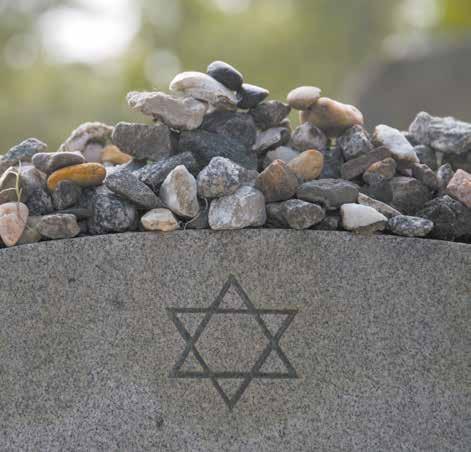


It was my first year of teaching English at Eleanor Roosevelt Junior High School in Manhattan, N.Y. Things were going fine, and I was especially enjoying my ninth-grade class, a mini United Nations of ethnicities and accents. This particular class was clever, always full of creativity and surprises. It was my favorite class.
Chana Shapiro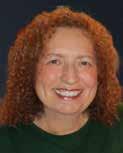
think Christmas gifts will hurt your feelings or insult you. Don’t be sad.” But I still felt awful. It was worse than being dumped by a boyfriend; I had been group-dumped. Resolutely, determined to rise above my misery, I made it through the rest of the afternoon, and when the final bell rang, I walked bravely into the teacher workroom, folded my empty shopping bag, and stuffed it into my backpack.
As I headed out of the workroom, one of my (up until that day) favorite ninth graders, Eduardo Reyes, stopped me. He was accompanied by a lot of my students. Eduardo spoke, while I stood there, stunned.
Winter vacation was suddenly upon us. The kids were excited, of course, and things in school became a little crazy as everyone counted down the days. Our last pre-vacation day was Wednesday, and I was worried that it would be hard to maintain classroom decorum until then.
On Monday, two days before the grand release from school, I was sitting in the teacher workroom with some veteran teachers, who definitely knew the ropes. One of them, my chosen mentor, Hope, advised me, “Don’t worry about classroom management this week. But here’s some advice,” she noted, “Be sure to bring a big shopping bag to school on Wednesday. Most of the kids know you’re Jewish, but they think Chanukah is simply the Jewish Christmas, with presents like they get. Those kids are sure to bring you little Christmas presents, and you’ll need to carry it all home. Get ready for lots of drugstore perfume, address books, and faux jeweled bracelets.”
Thoughts of little gifts danced in my head. Fortunately, I was already a big fan of faux jeweled bracelets.
I took Hope’s advice and brought a sturdy shopping bag and a backpack to school on Wednesday and placed them in the teacher workroom, hoping that all my perfume, address books, and bracelets would fit inside. Strangely, in my classes on Tuesday and Wednesday, even my outgoing ninth graders were unusually subdued, not boisterous and jolly, as I expected them to be before the holiday. I couldn’t figure it out.
A few times during the day, I jealously assessed the bags of gifts the other teachers were storing in the teacher workroom. I, on the other hand, had not received a single gift. I was terribly embarrassed and disappointed. I was crushed. I had assumed that my students liked me, but obviously, I was wrong.
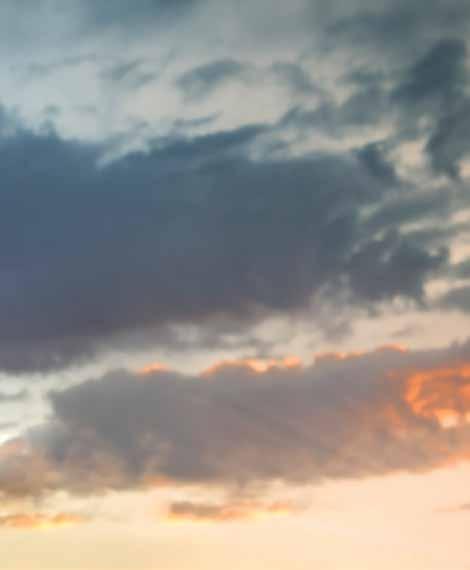

Hope noticed my melancholia and tried to cheer me up.
“Maybe because you’re Jewish, they



“You’re not like the other teachers,” he said, “so we got together to get you something special.” He handed me a large shoebox, with holes punched in the top. “We chipped in and bought you a hamster,” he proclaimed. “We named him Horatio.”
A hamster! I was completely nonplused. Naturally, I cried, and my students were elated. Eduardo told me that the decision had been difficult, and he hoped they made the right choice. I assured the students that they had given me the perfect gift. “Í love hamsters!” I lied. Everyone was overjoyed.
Except my husband, that is. On the way home, I bought a bag of wood shavings and hamster food. That night, because I had not yet bought a cage, I put Horatio to sleep under our bed, in his box. You guessed it: Horatio chewed his way out and was somewhere in the apartment, no doubt gnawing a leg off of one of our chairs. I had never owned a hamster and wasn’t sure if I wanted one now. My husband made this simple, concise declaration: “I refuse to live in an apartment with a loose rodent.”
We finally found Horatio in our foyer, trying to squeeze under the front door. I managed to grab him, and I knew what I had to do. I called my friend, Edith, who lived on the first floor of our building. I hadn’t been sure about keeping Horatio, but I was sure about keeping my husband.
“Okay. We’ll take him!” Edith greed. “We’ll get a cage and one of those wheels that hamsters like.” In five minutes, with Horatio intact in an unchewed box, I was at Edith’s door to make the hamster drop.
Horatio’s life was about to change for the better. Edith’s husband, Howard, doted on him. Horatio soon luxuriated in his lavish new digs, and I had saved my marriage. I checked on Horatio daily during the remainder of winter break, and he was clearly in hamster heaven. When school re-convened in January, my students asked about him. I honestly told them he was very happy. ì





